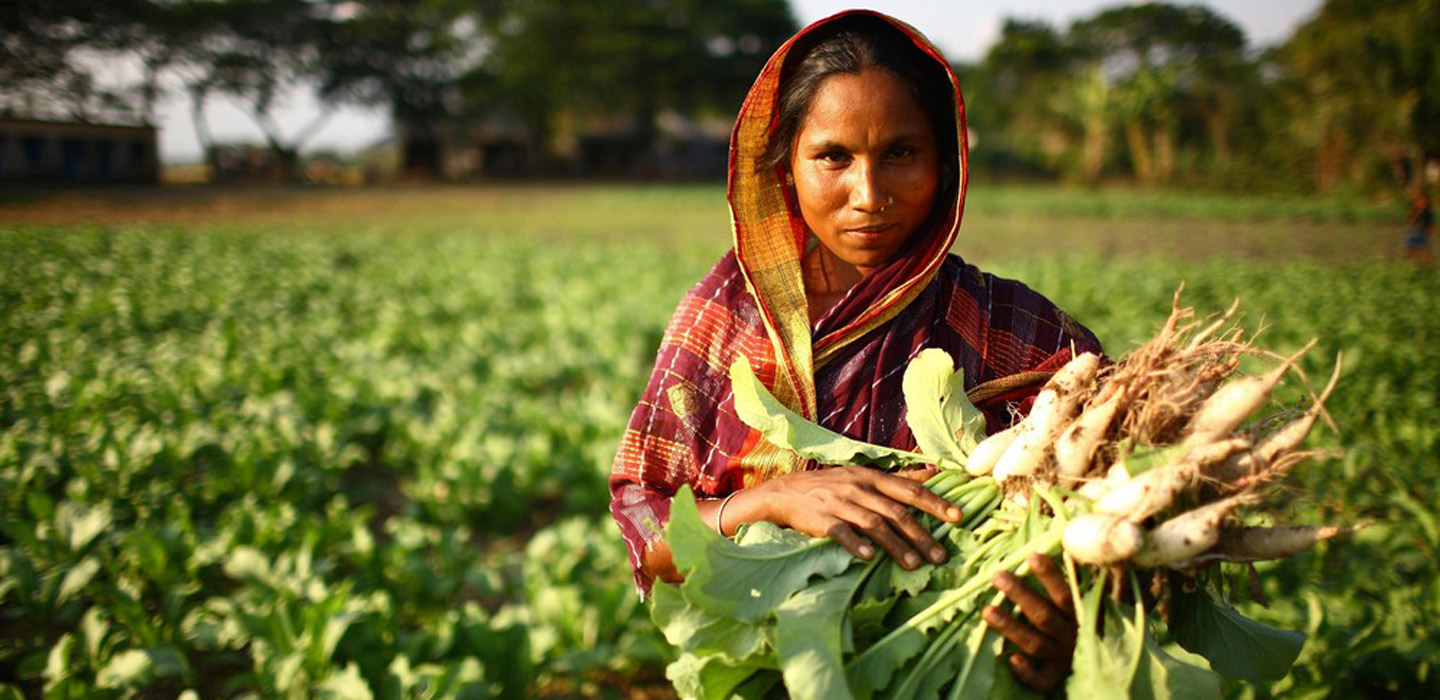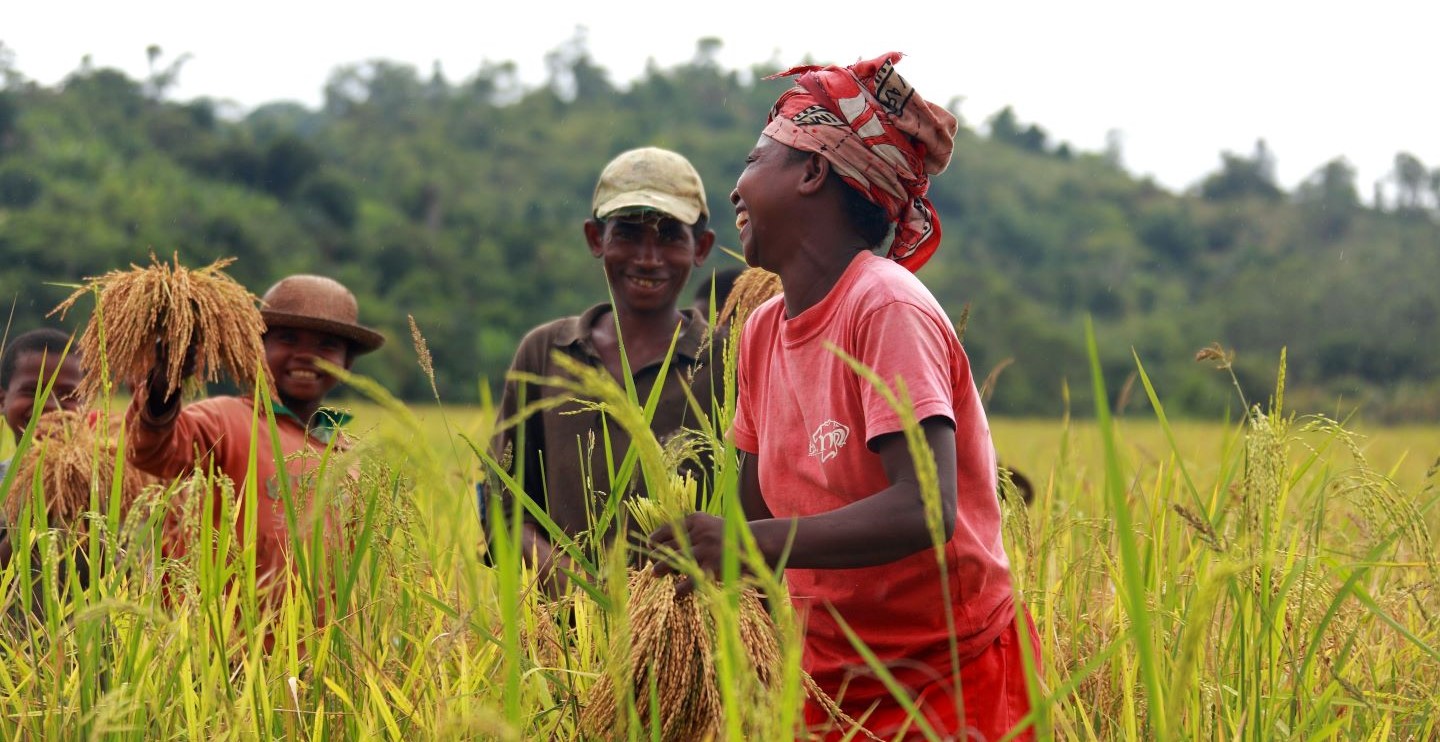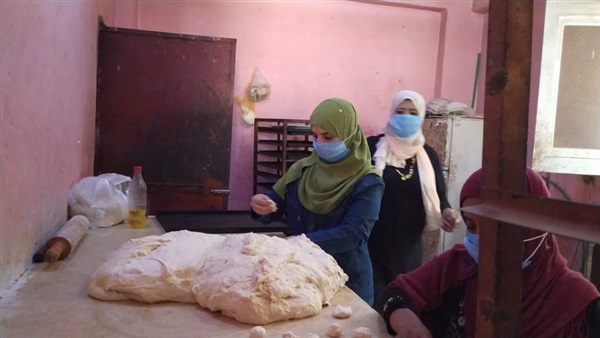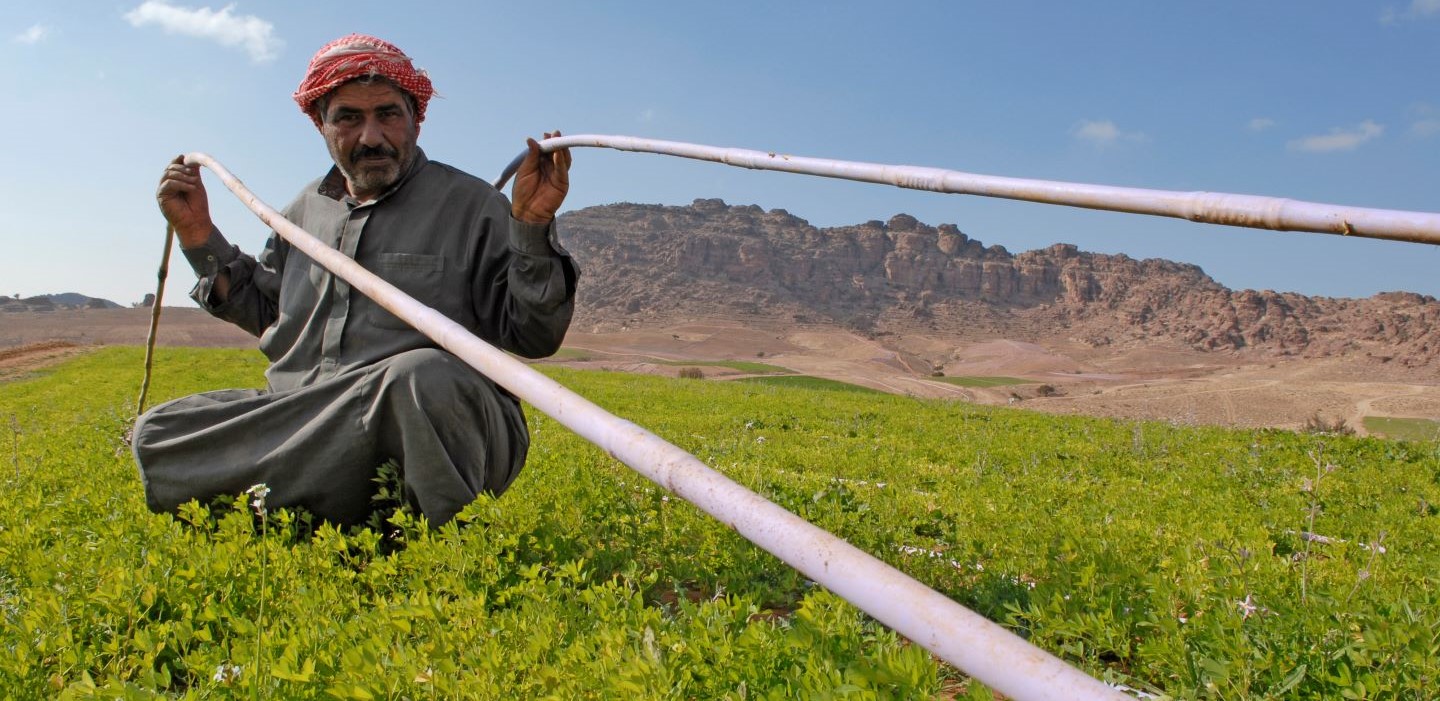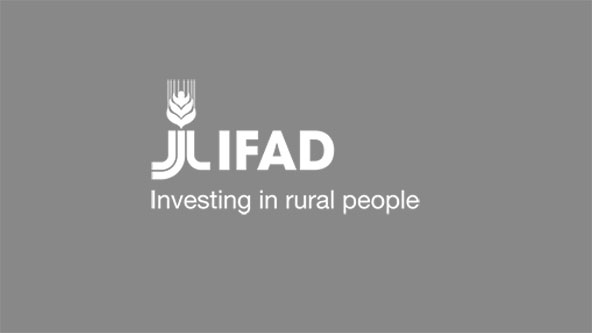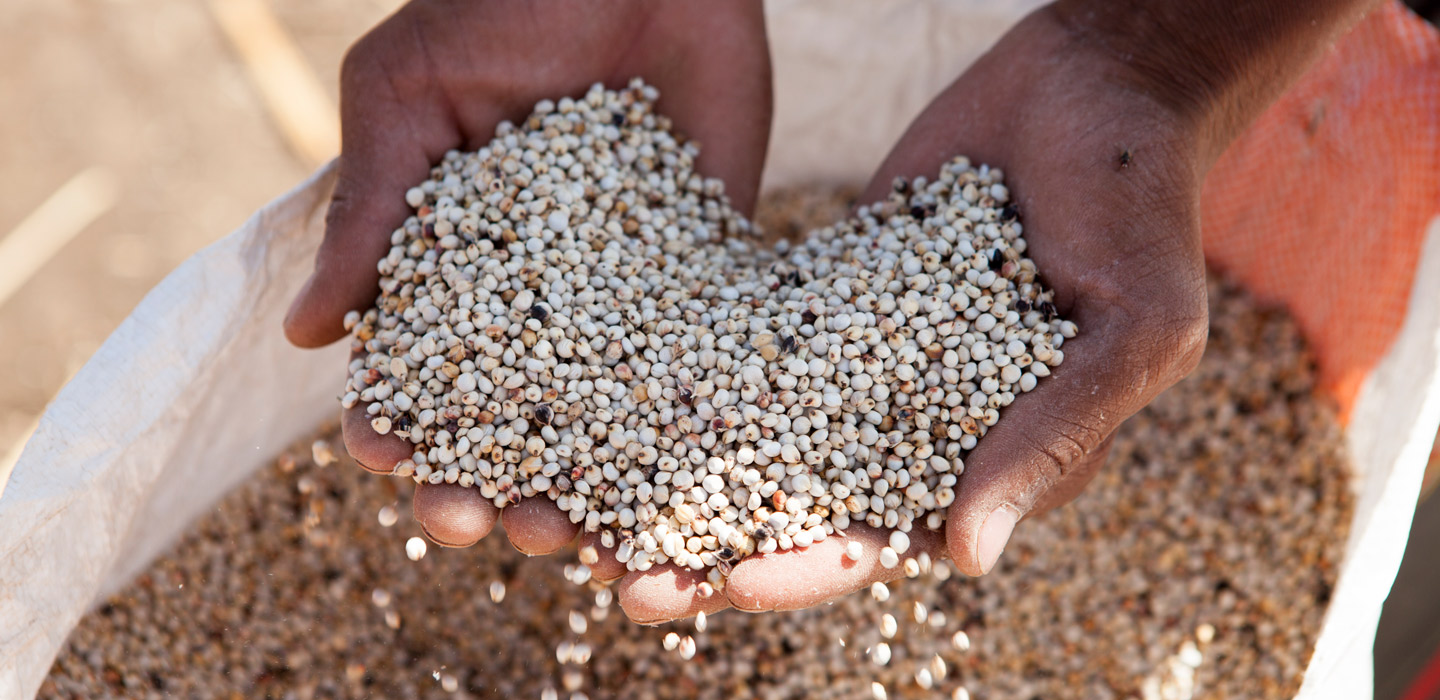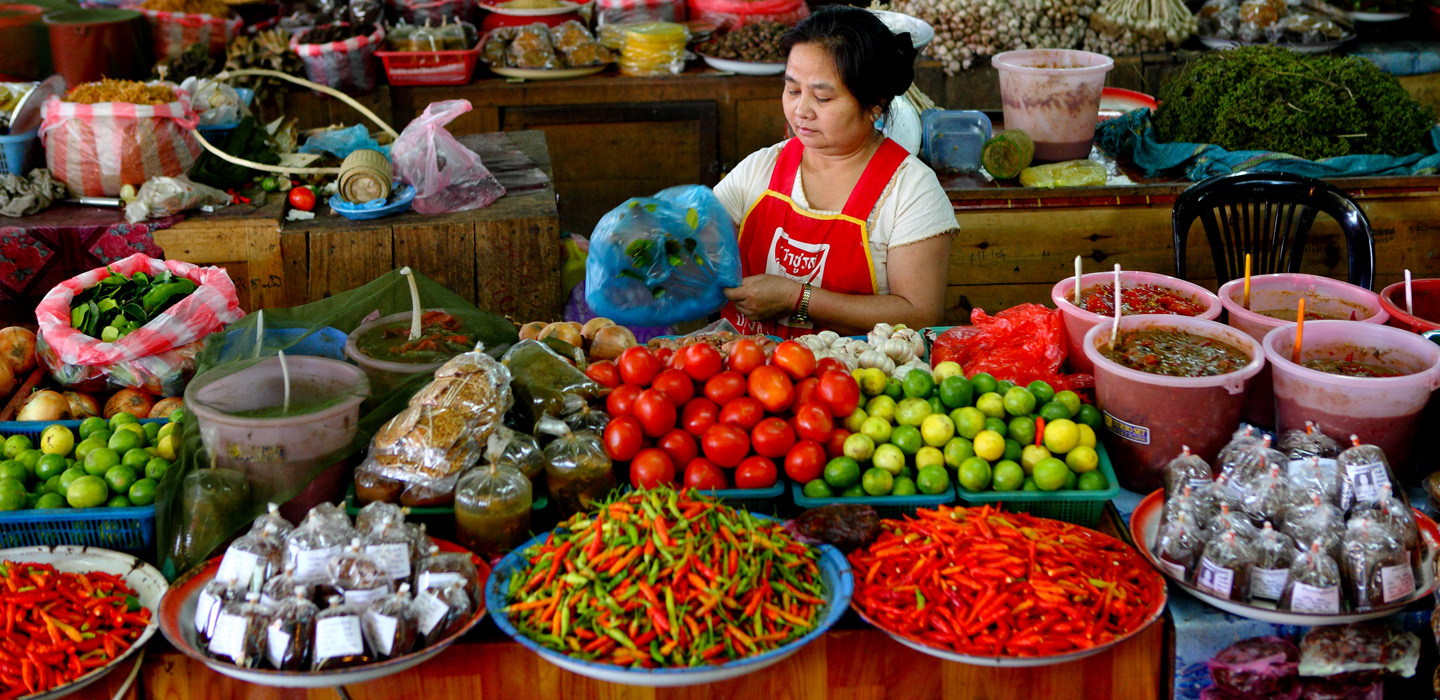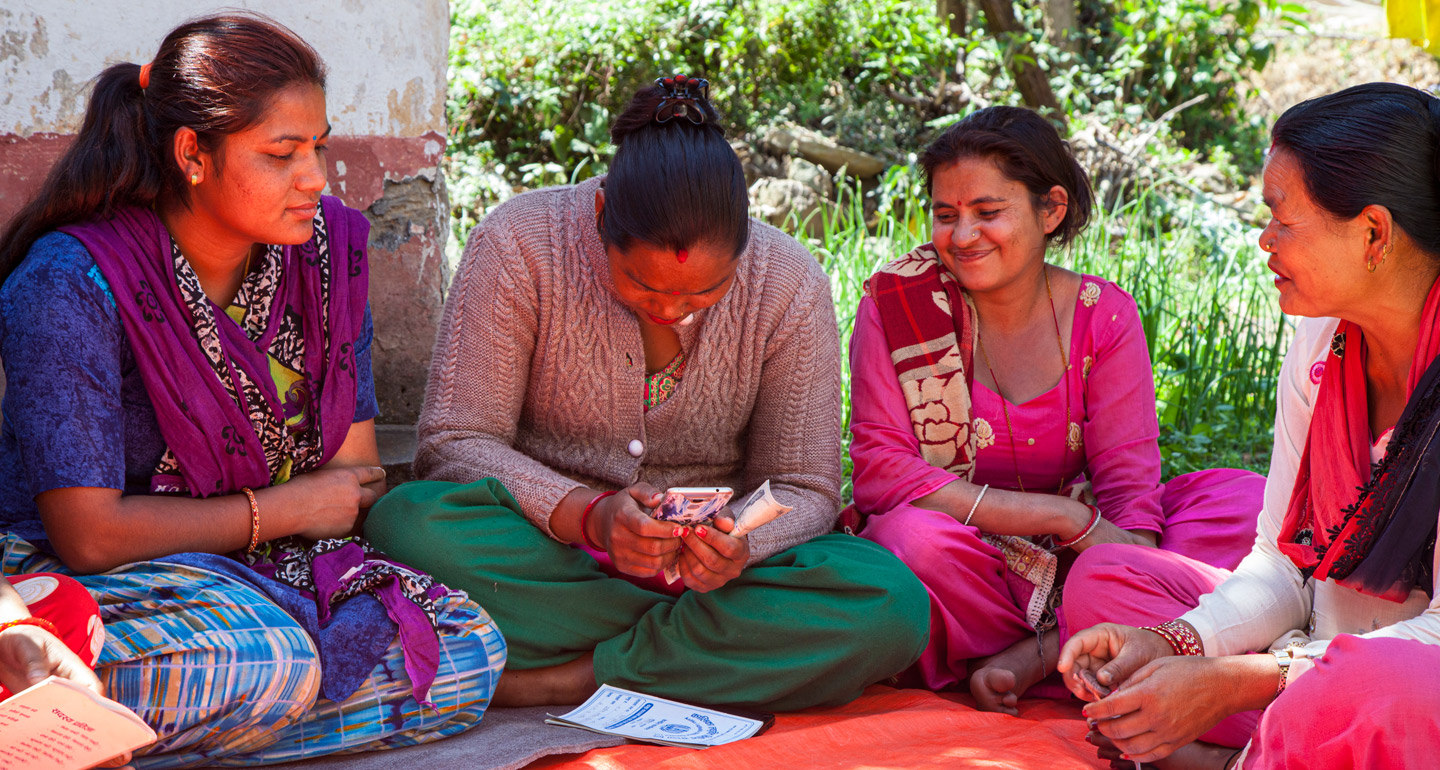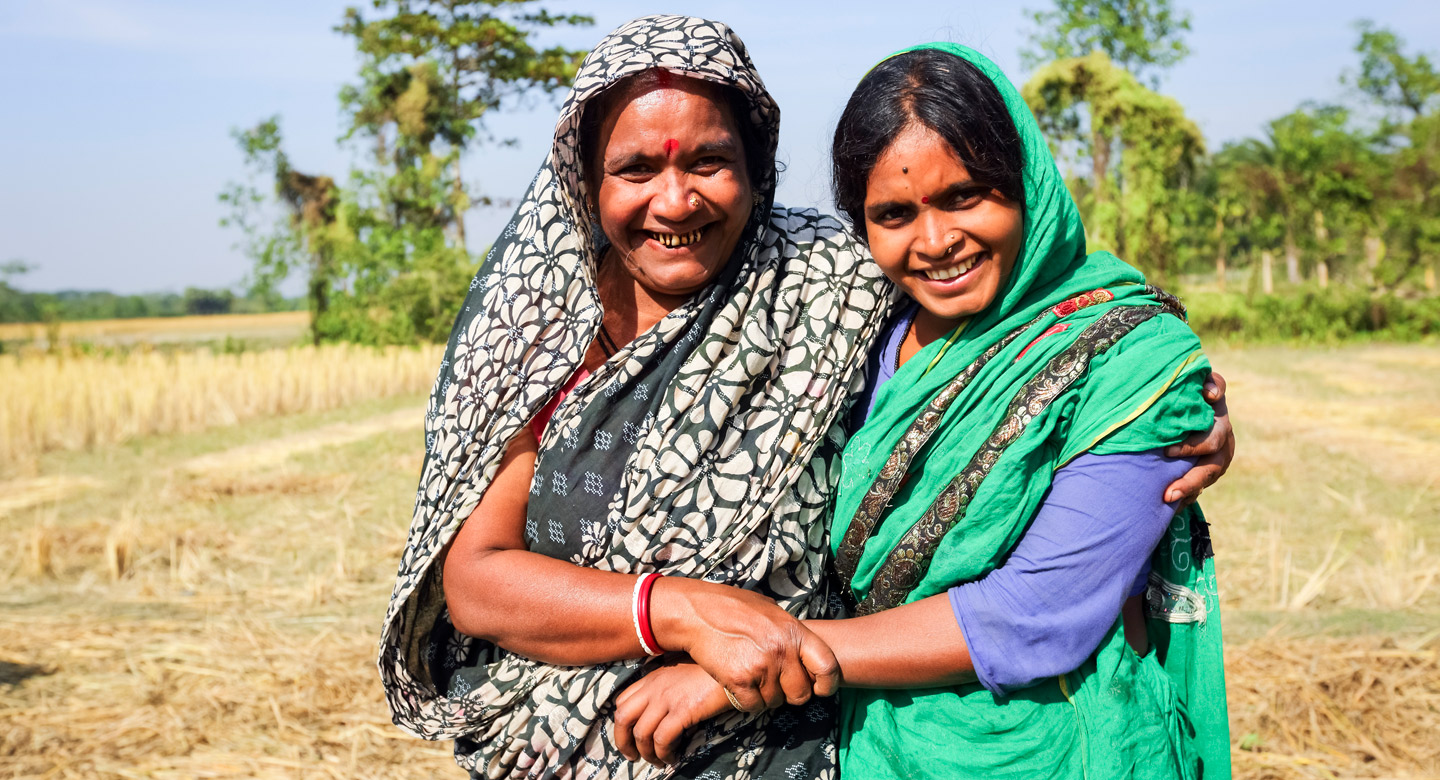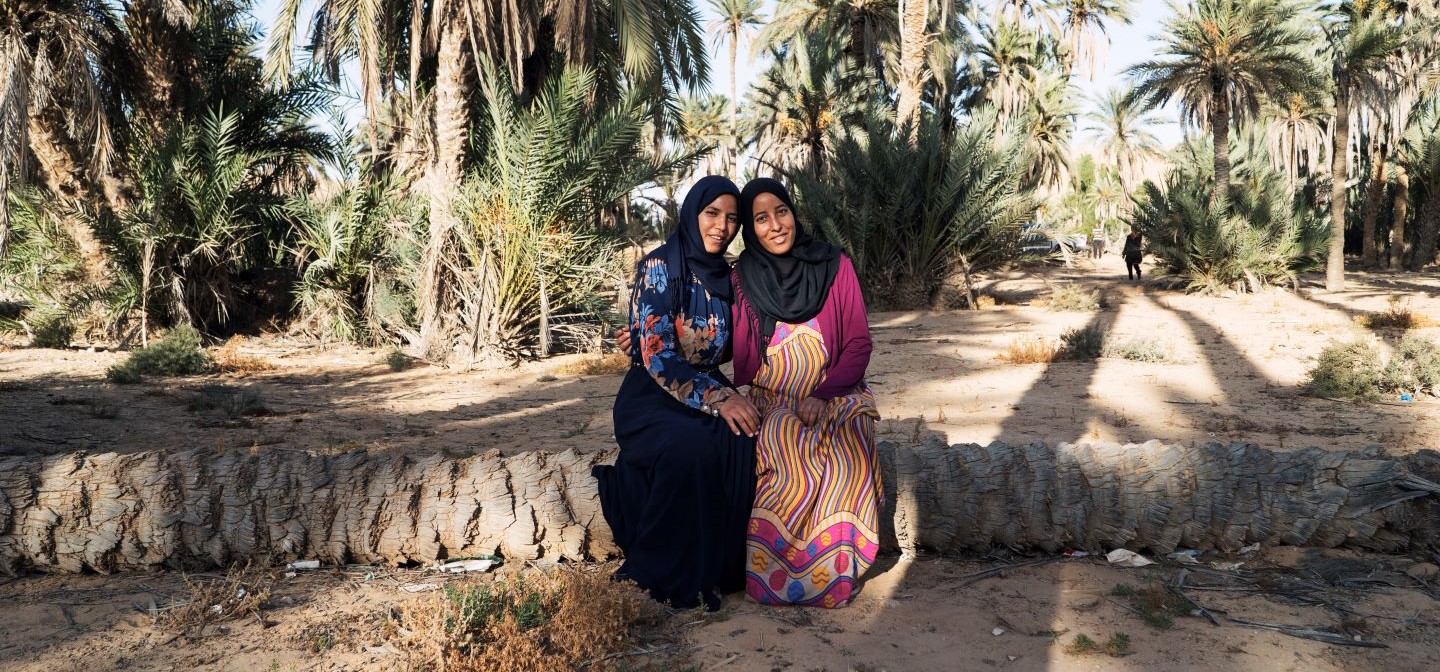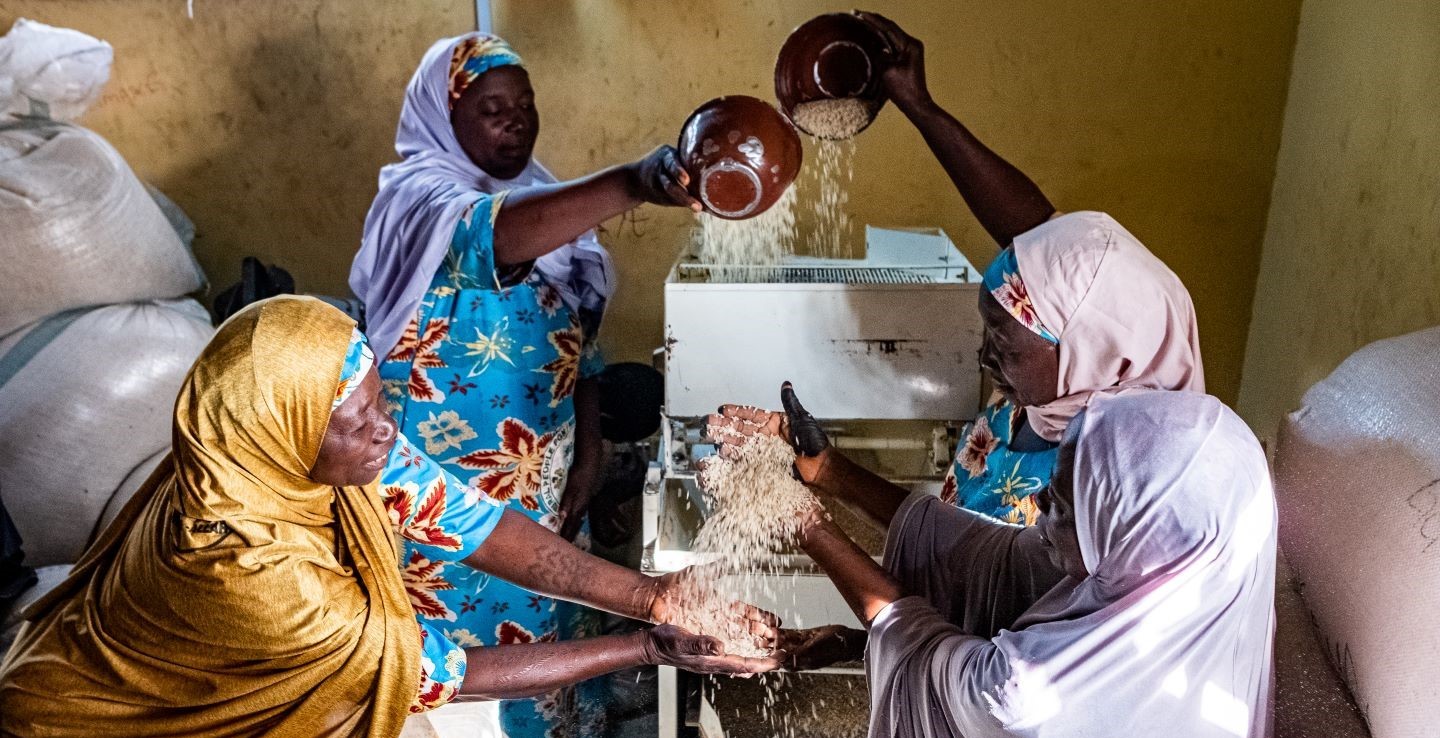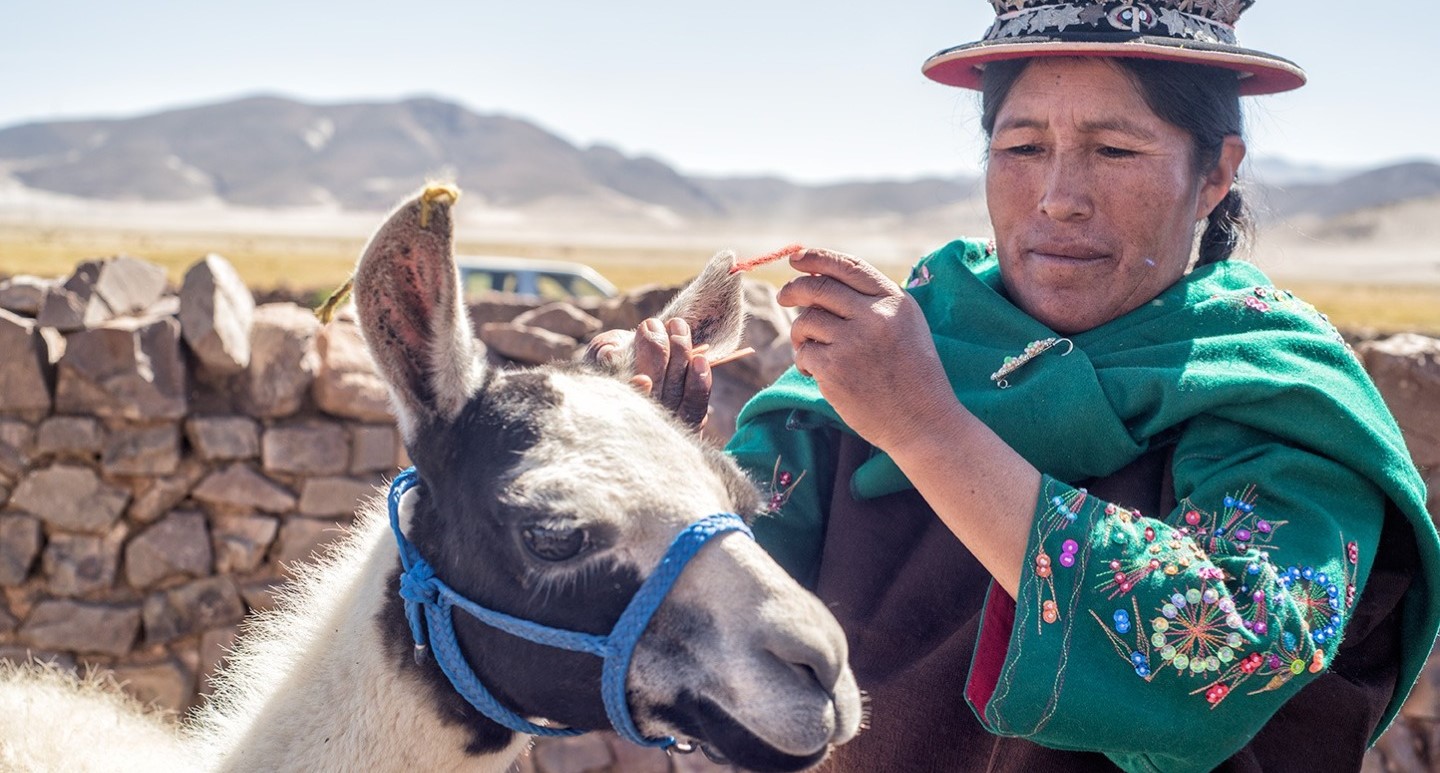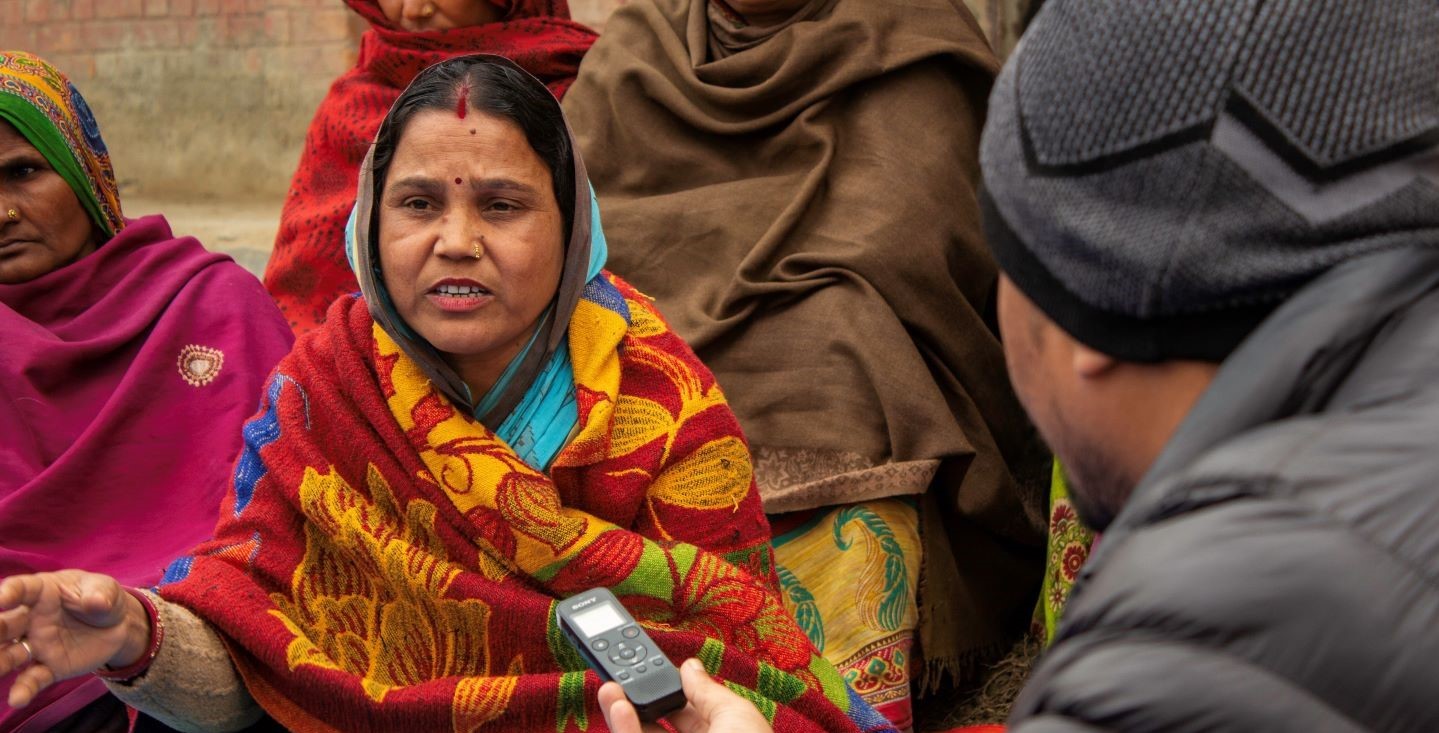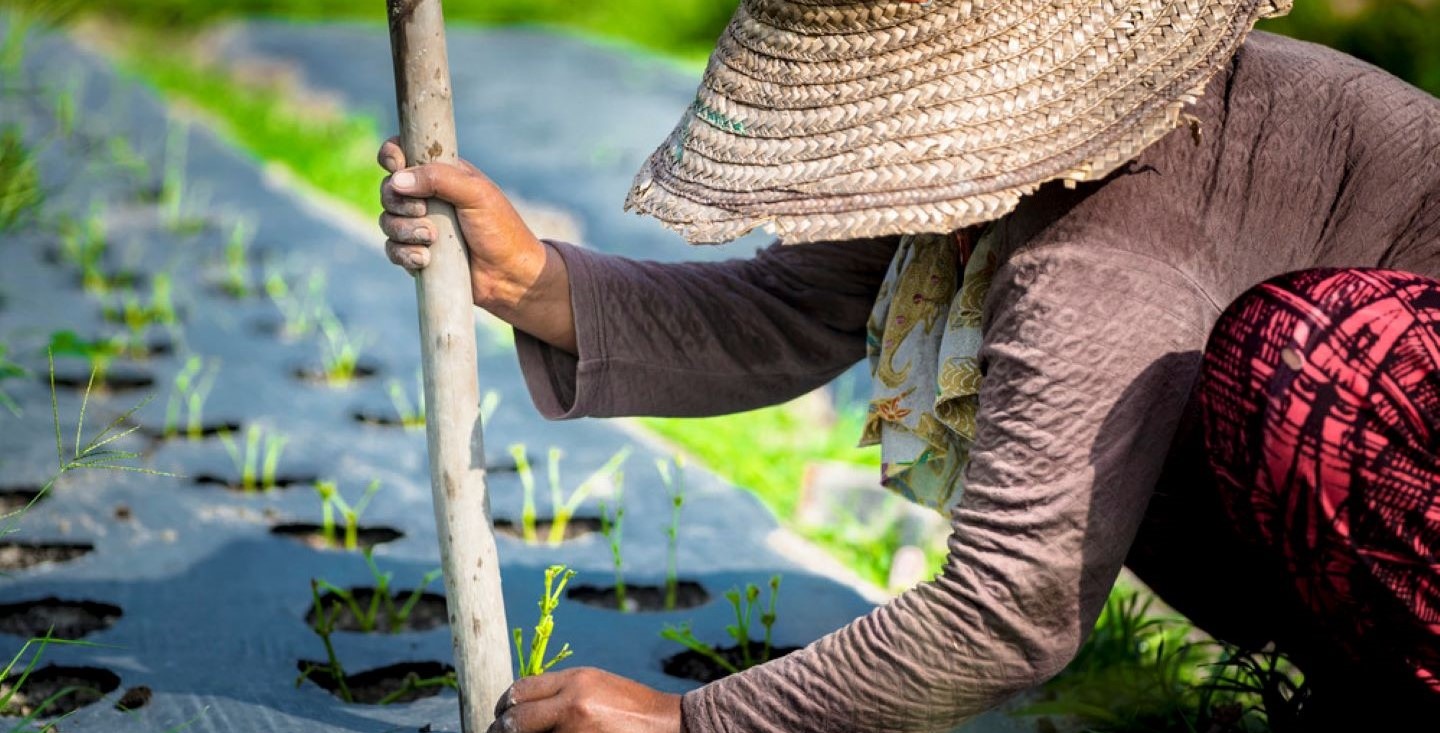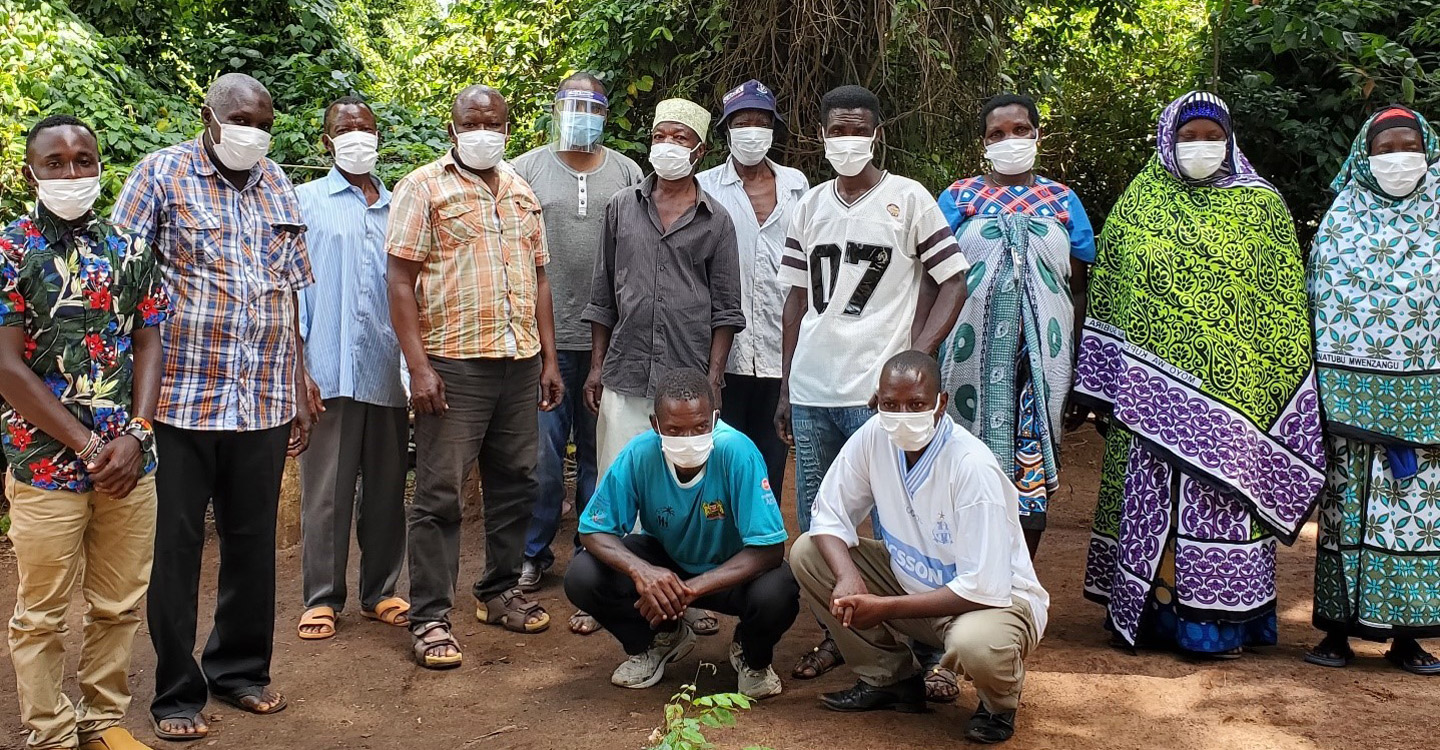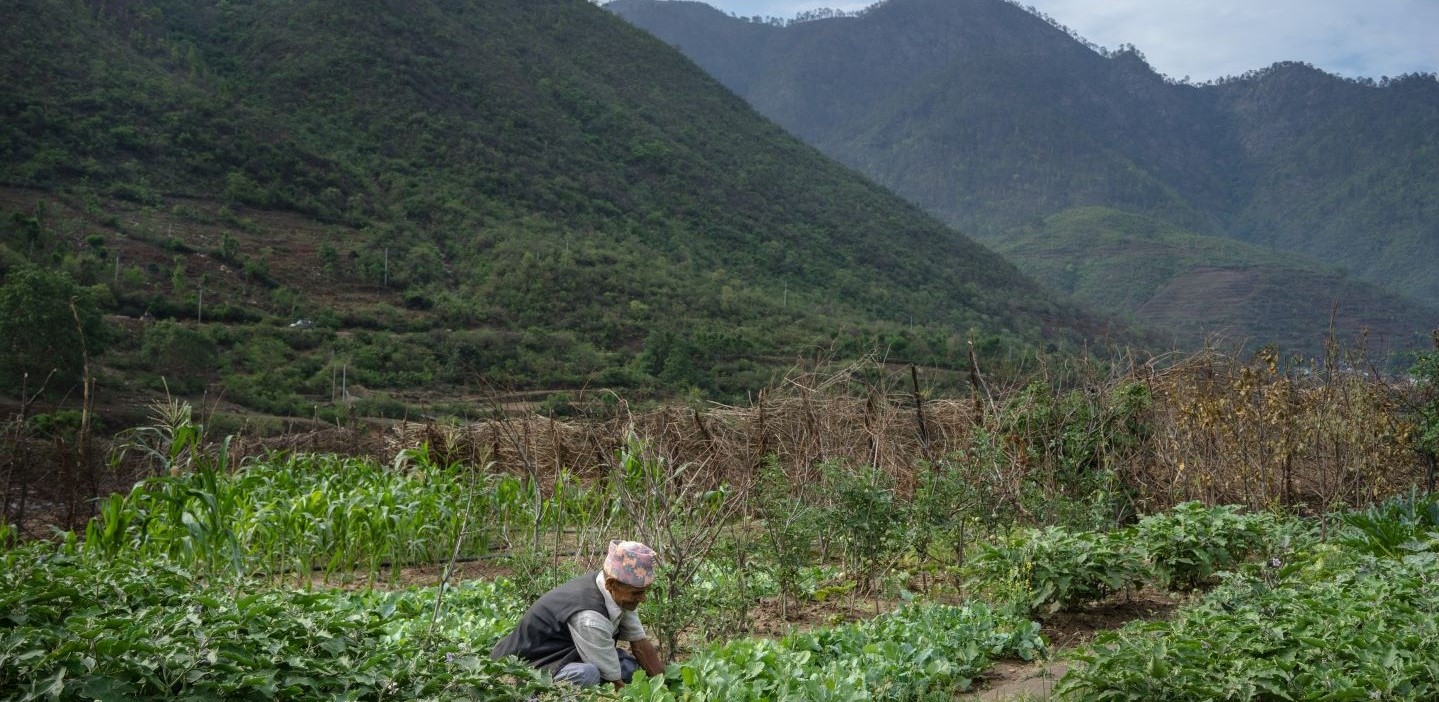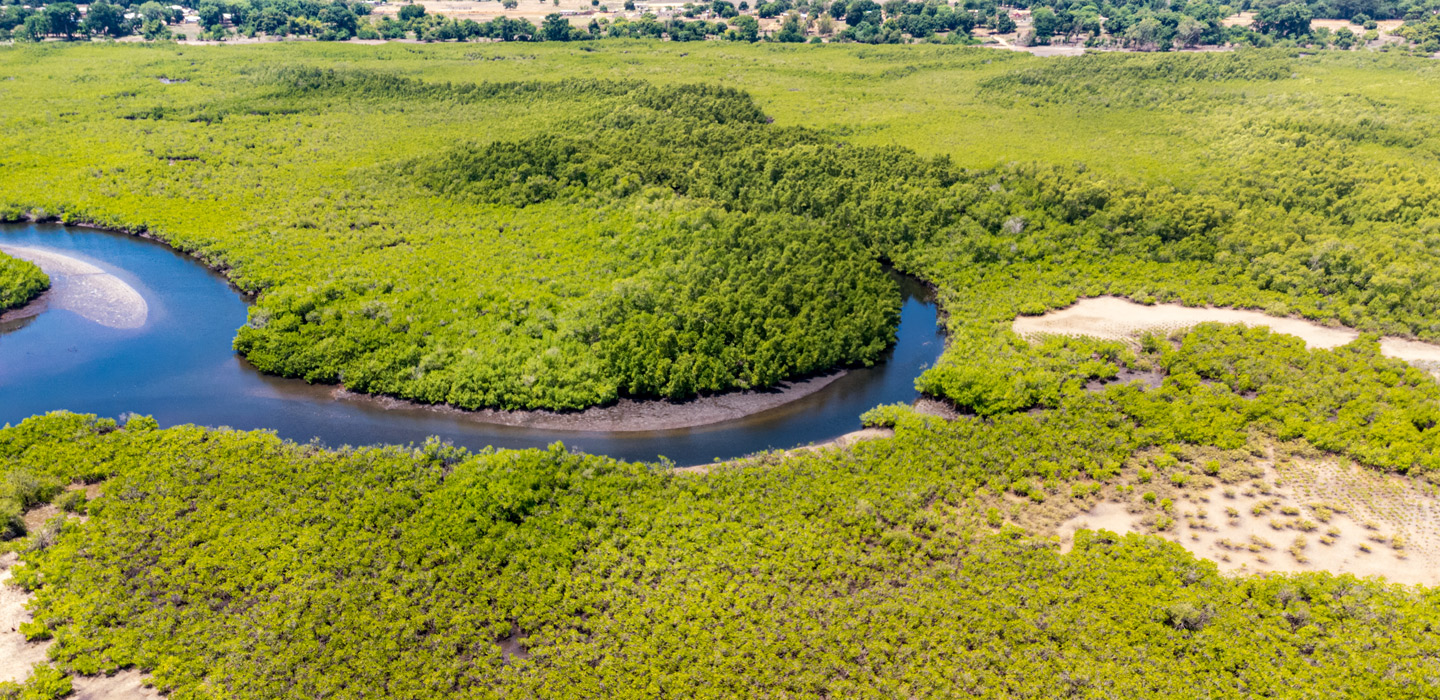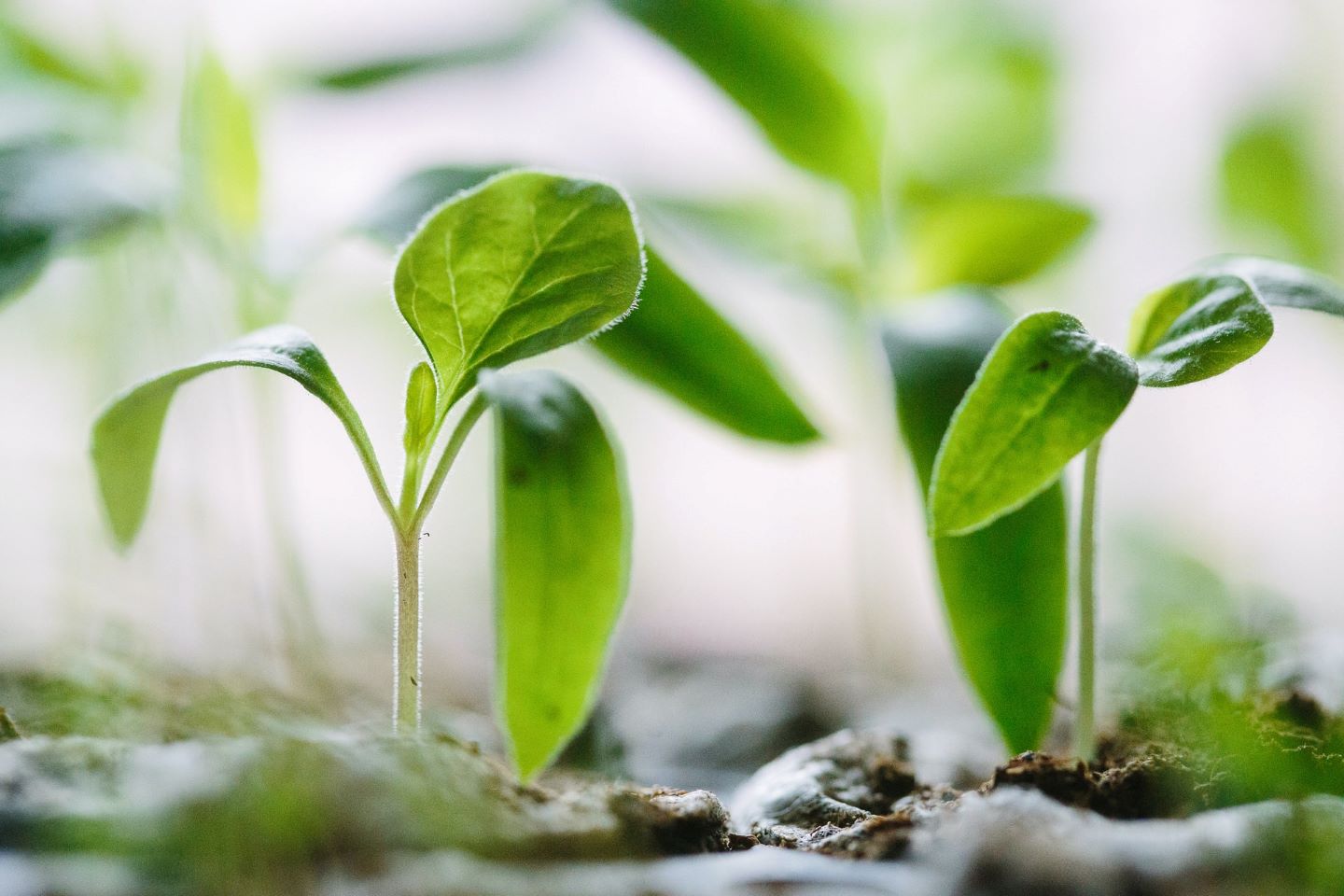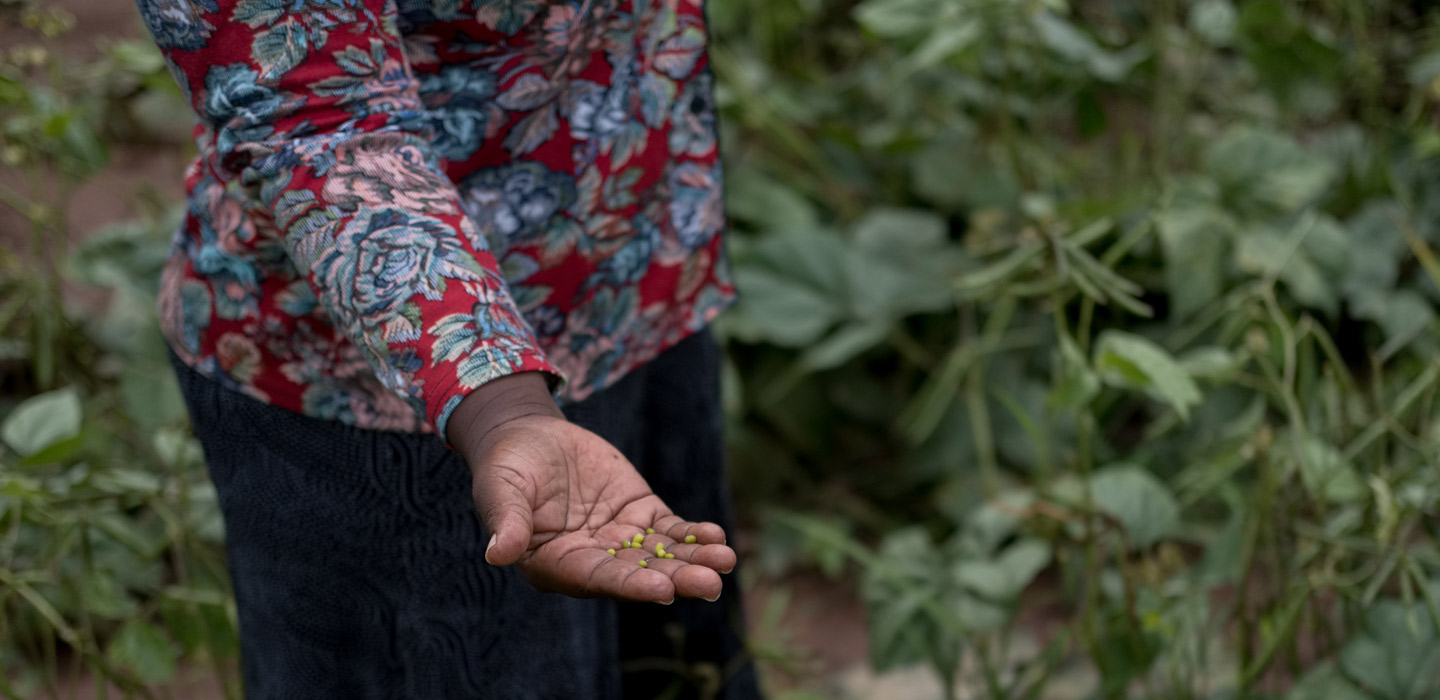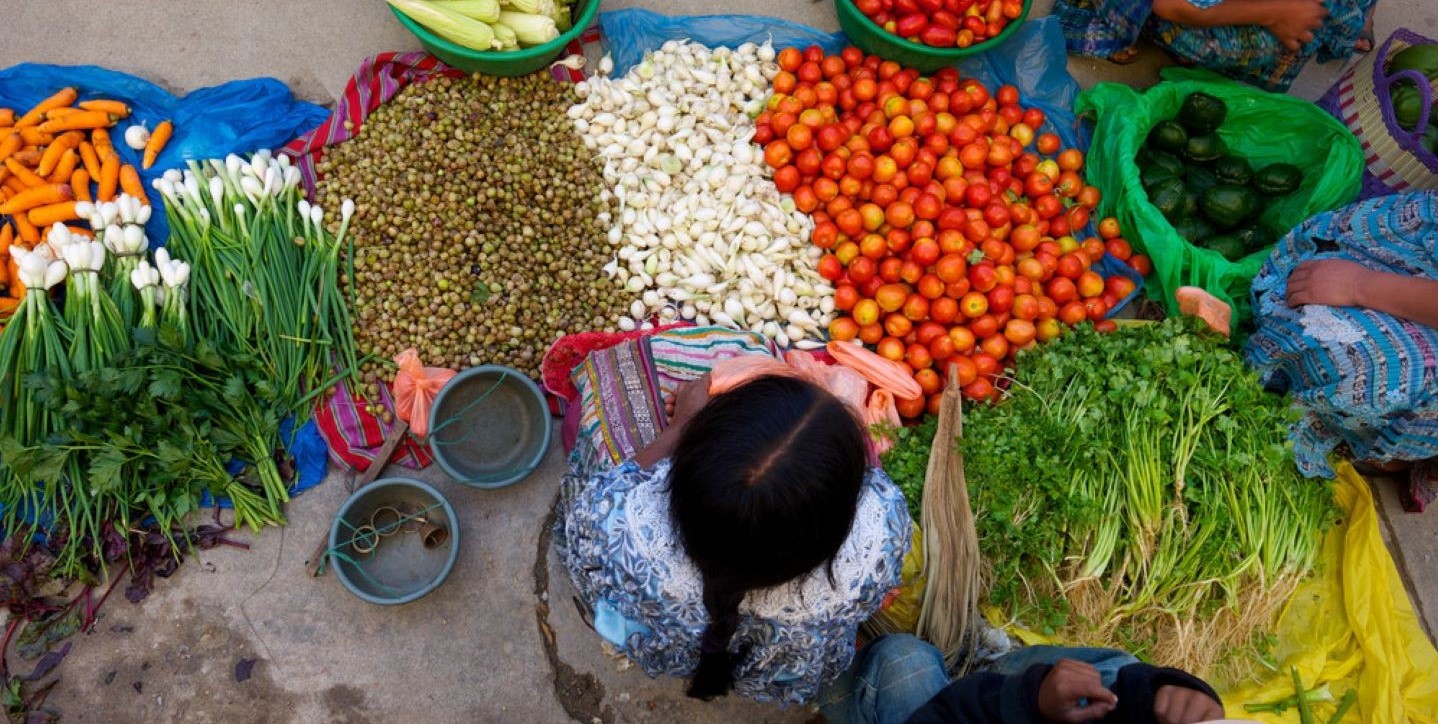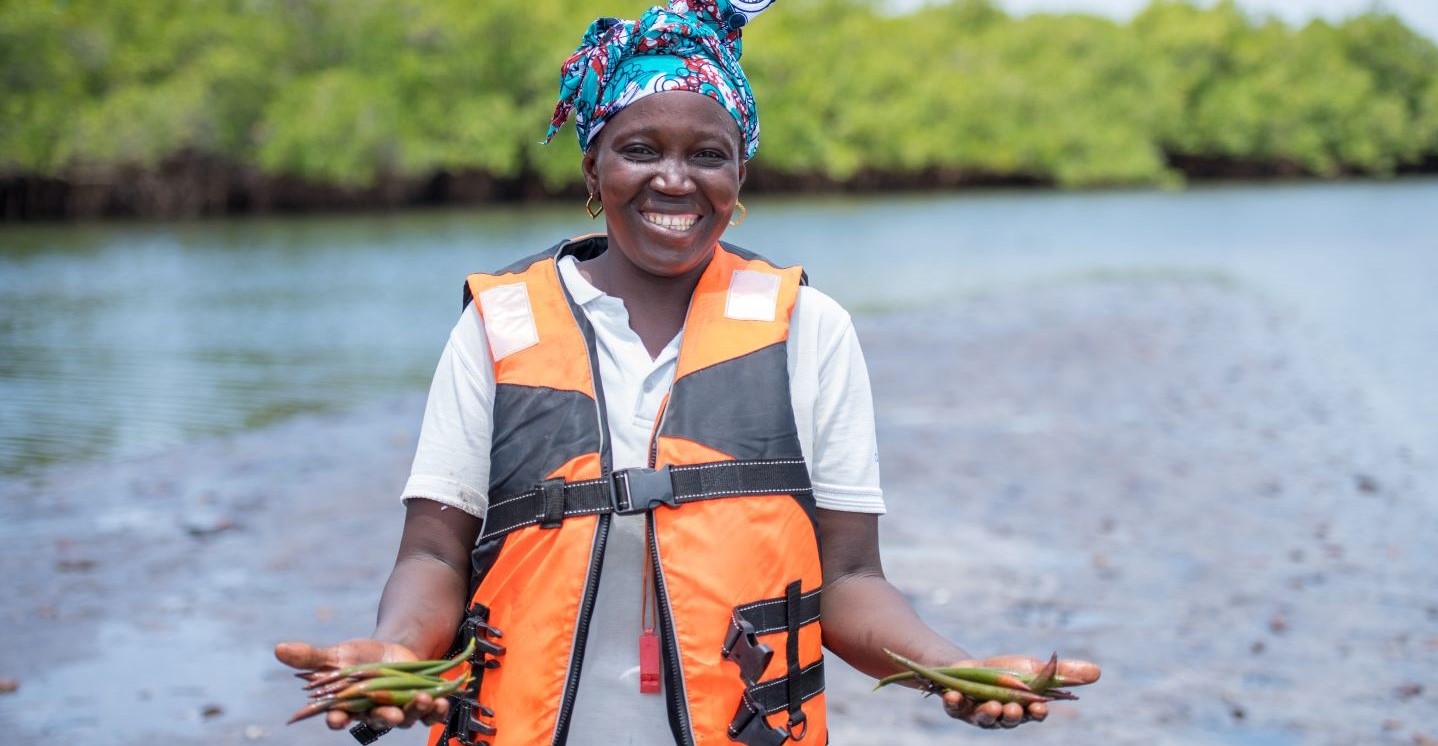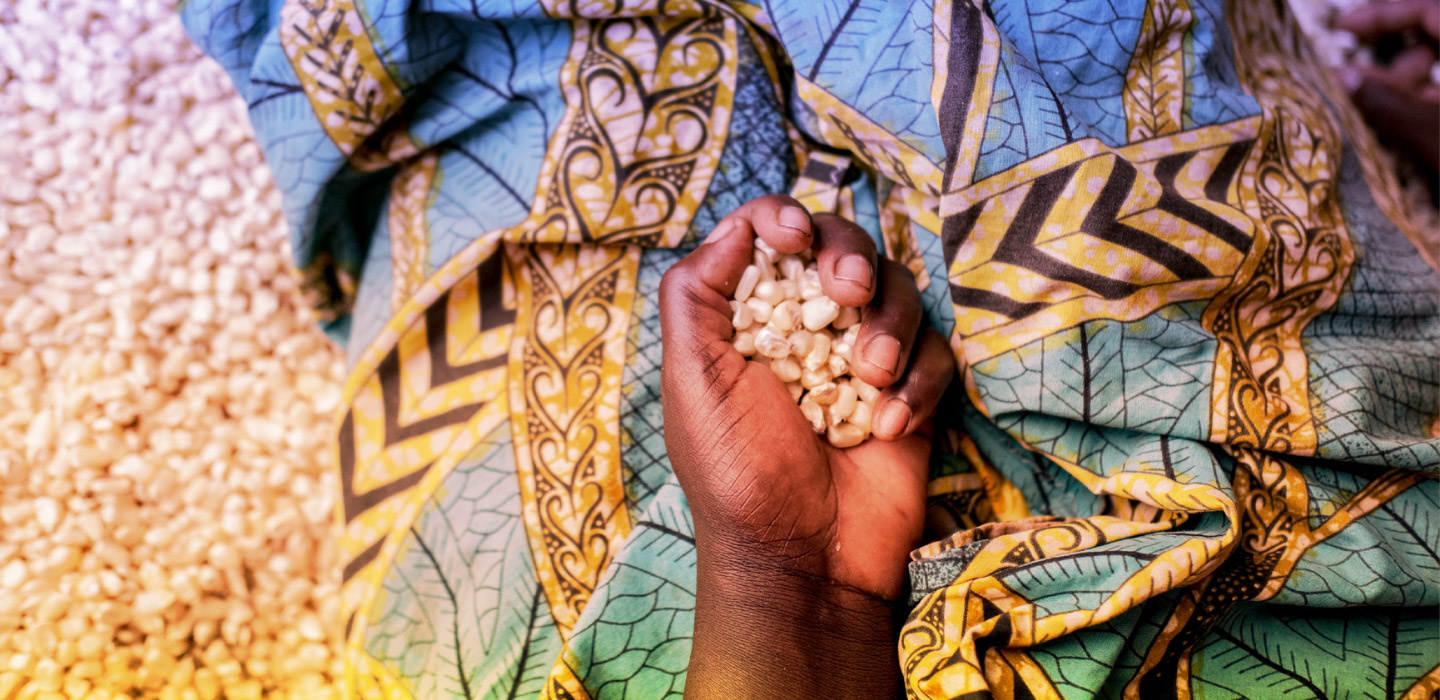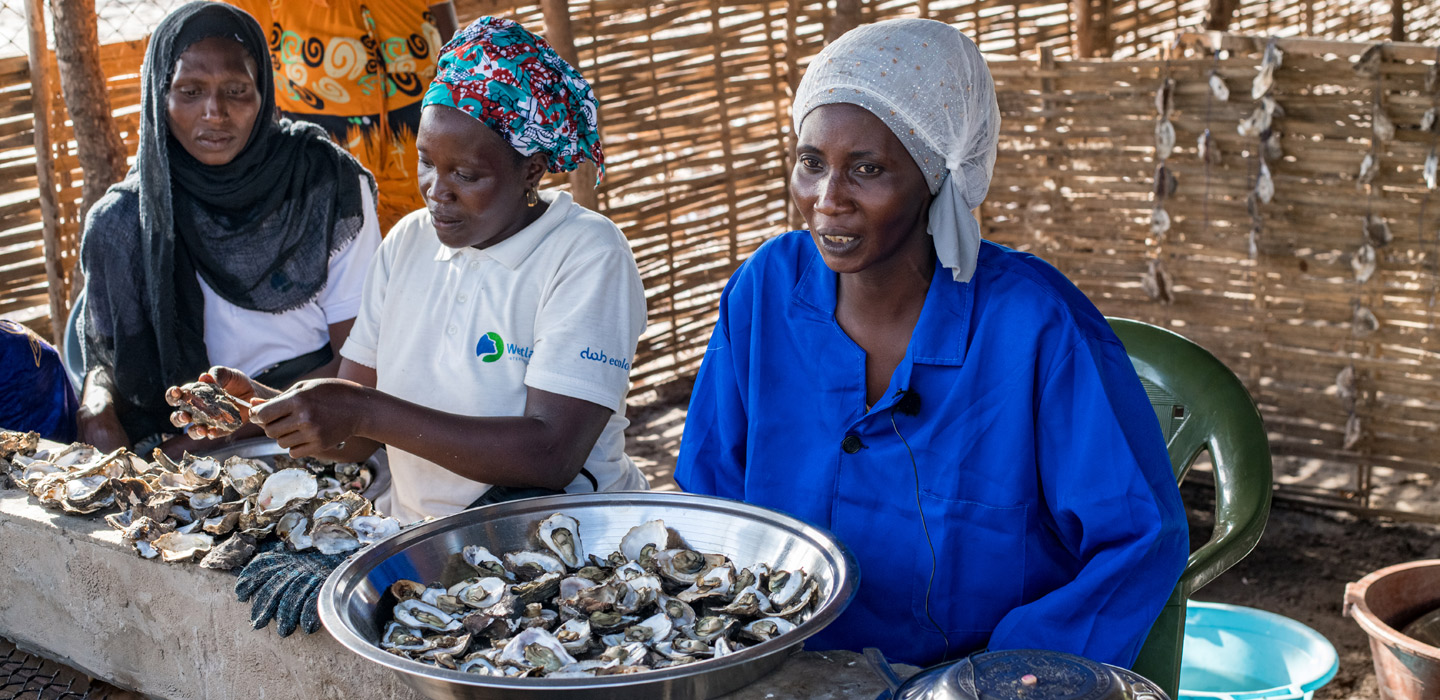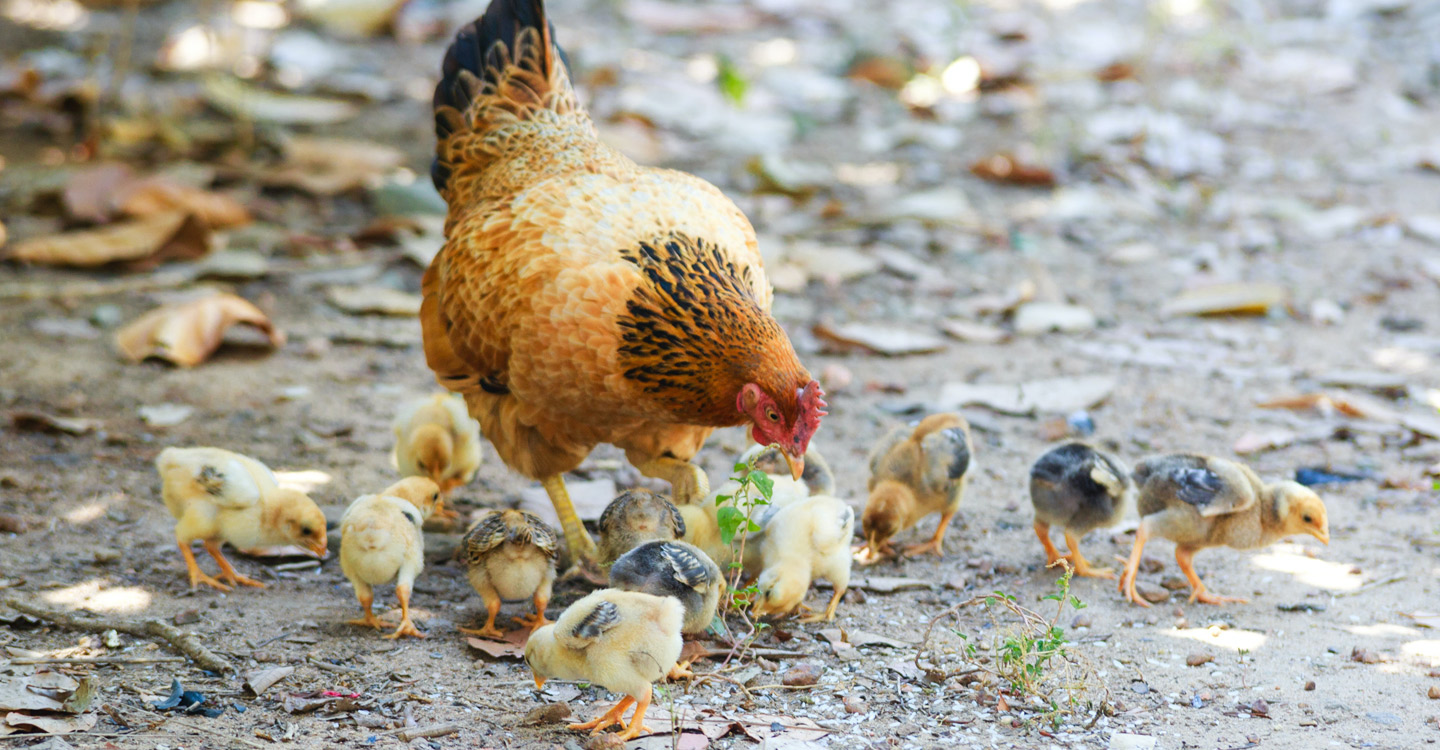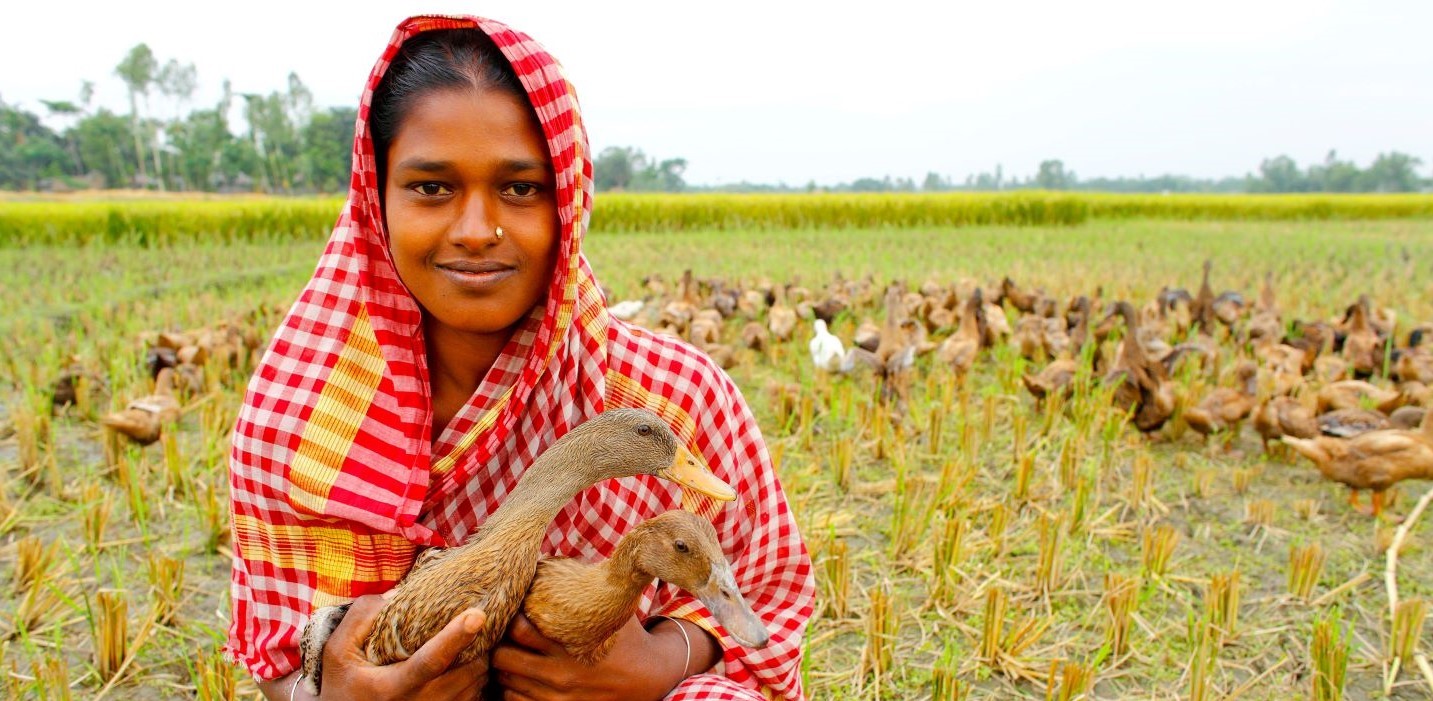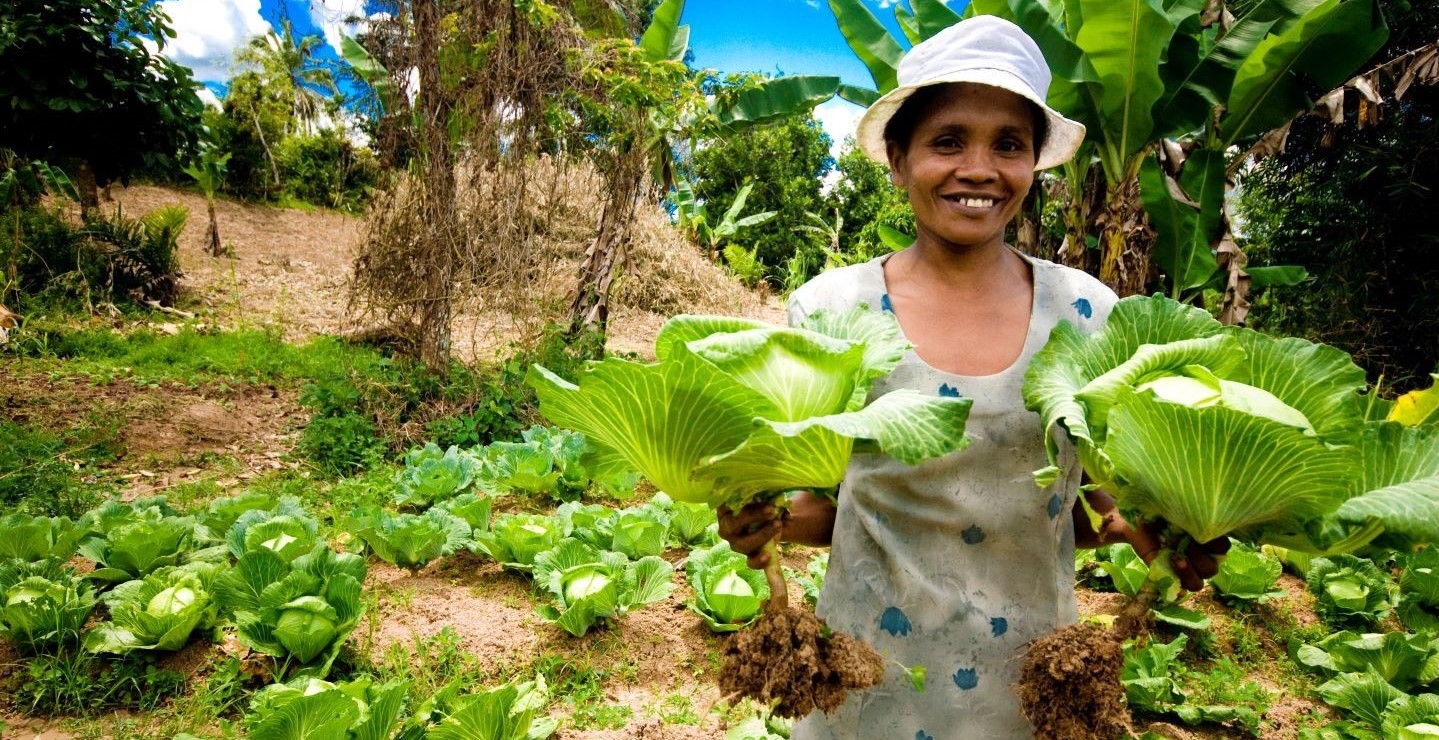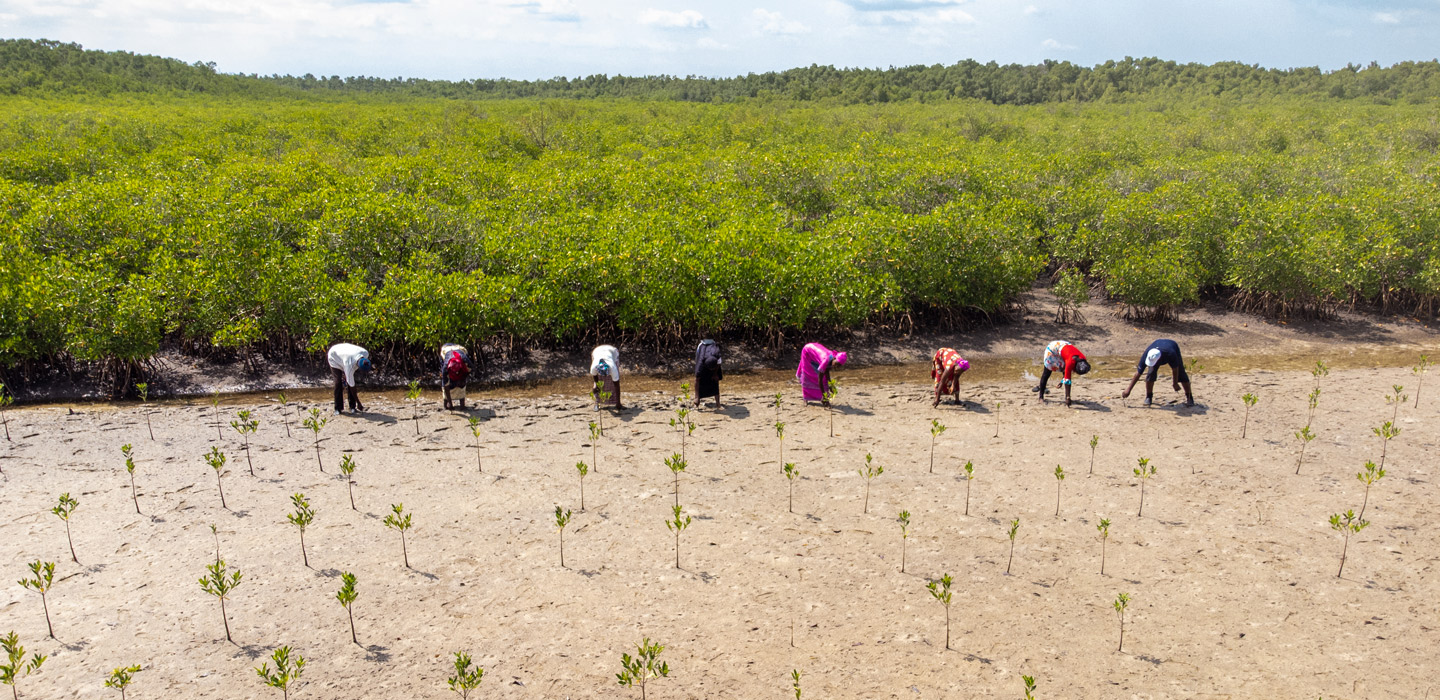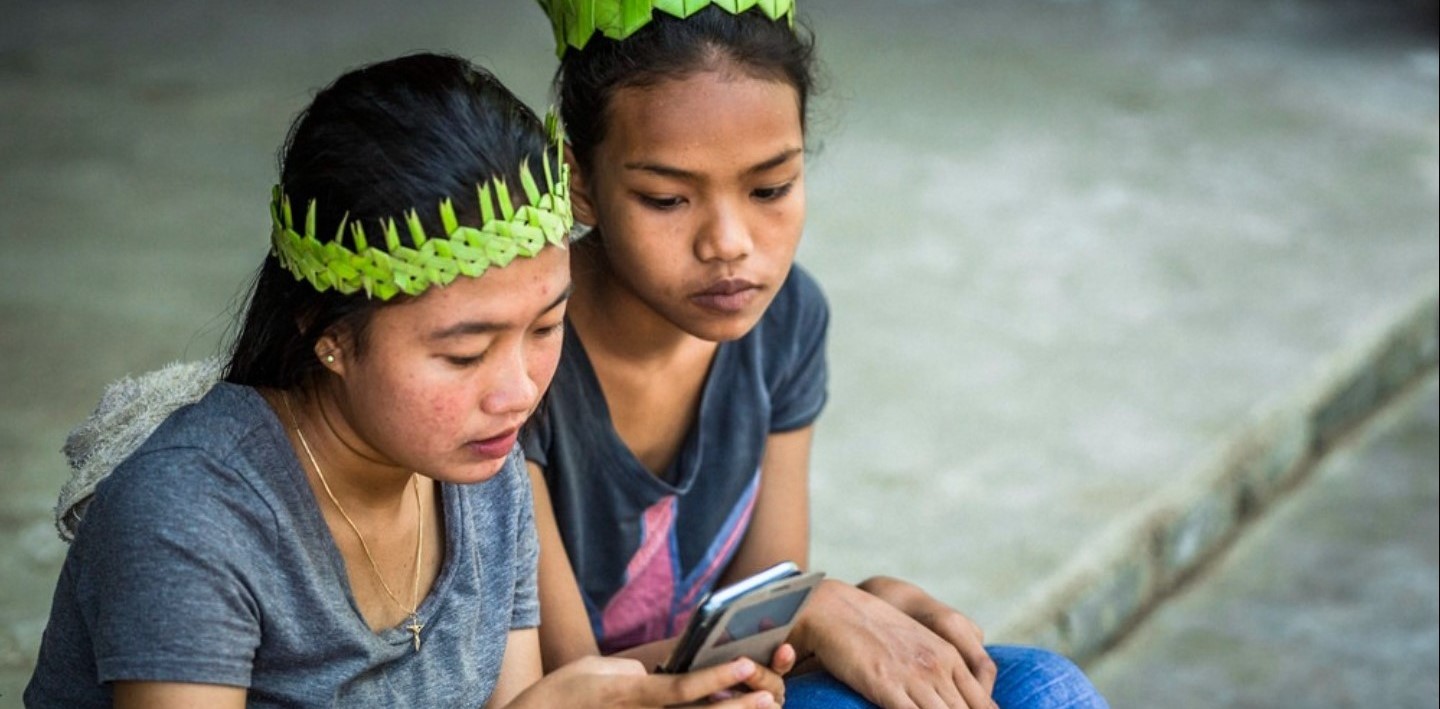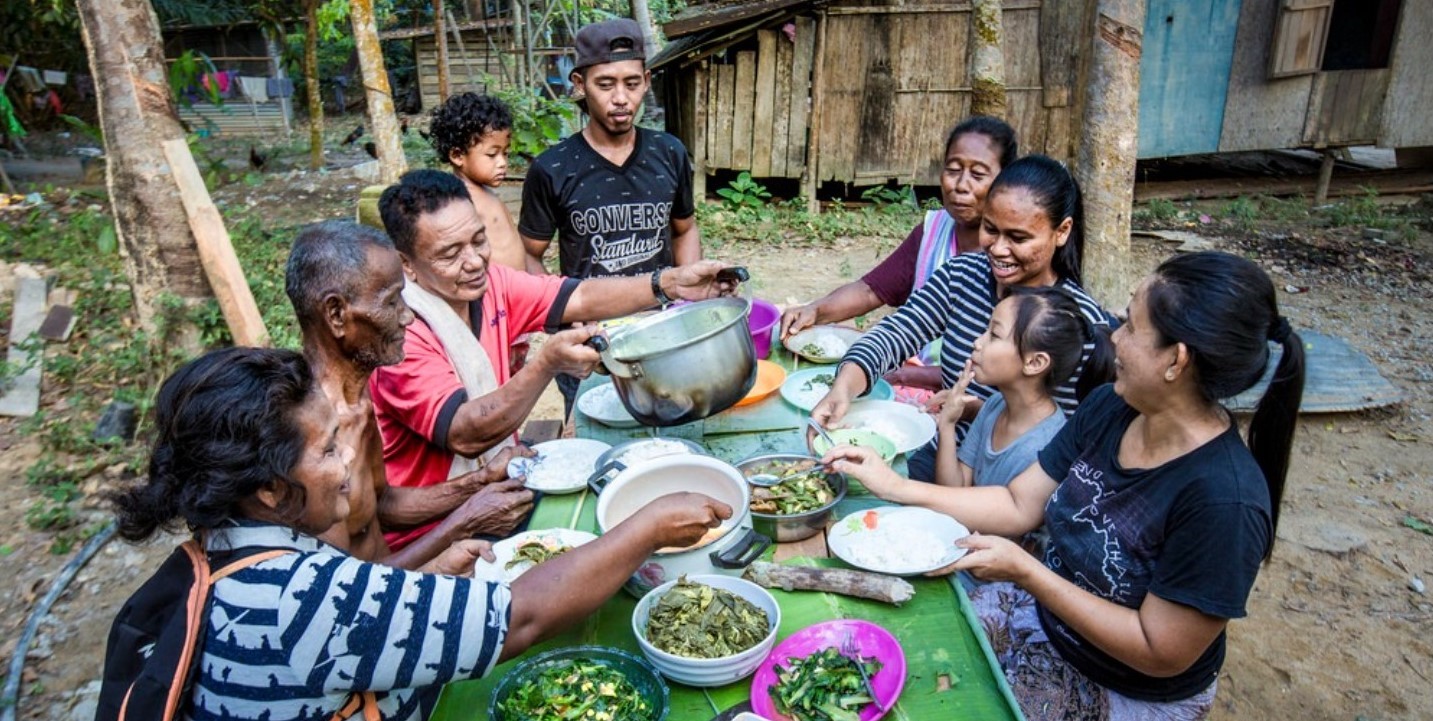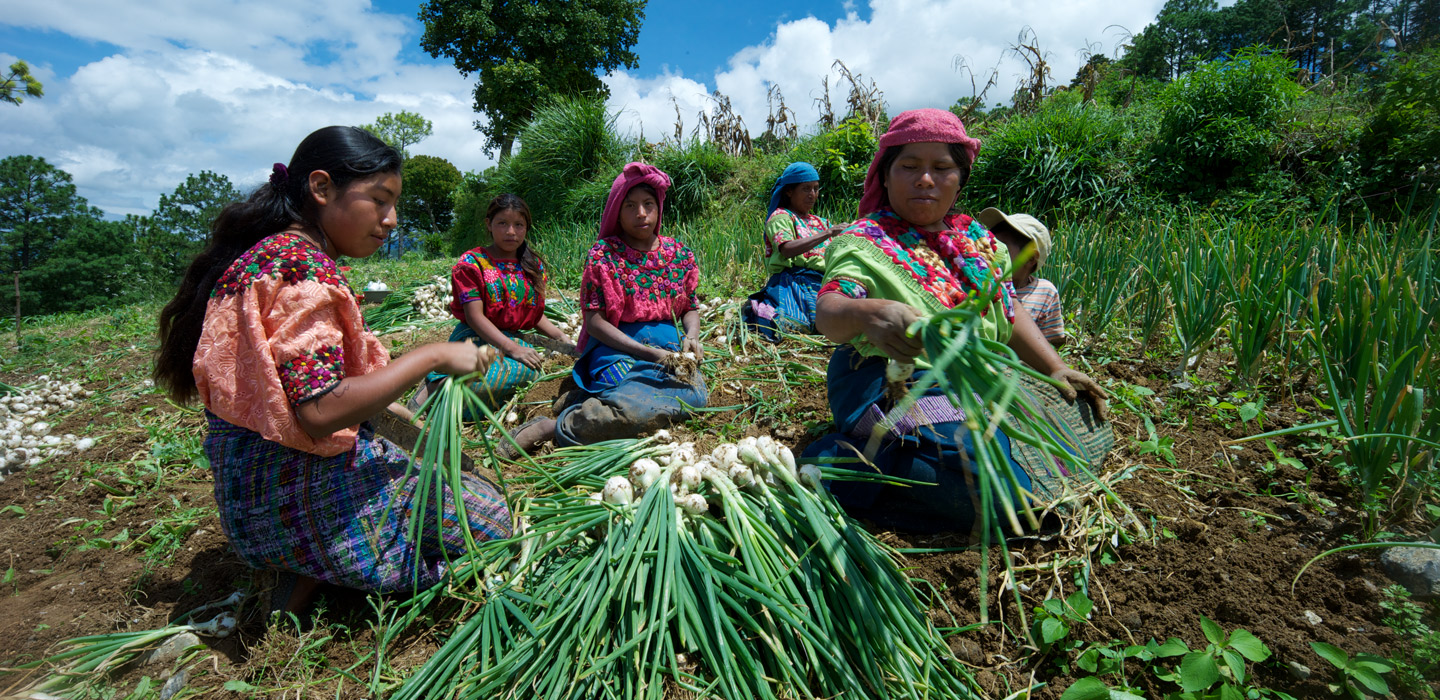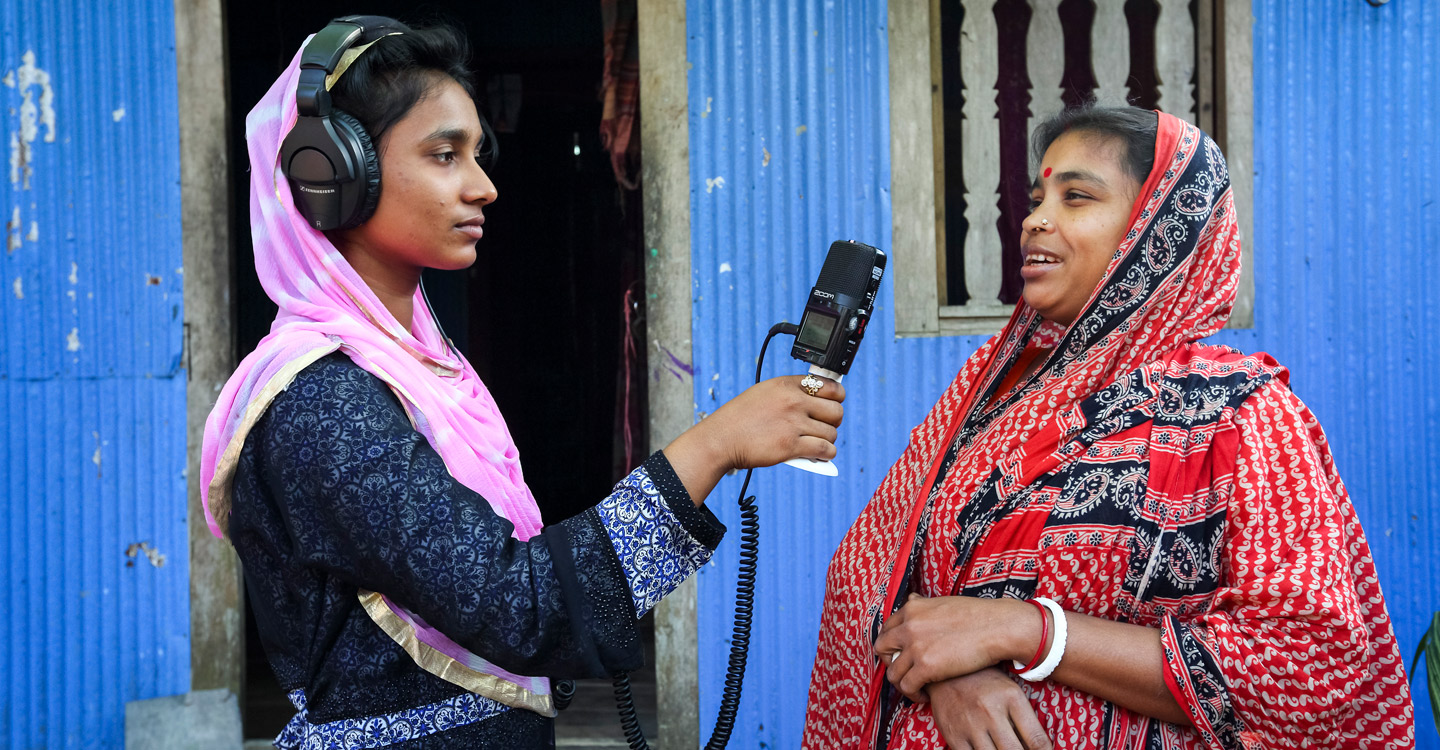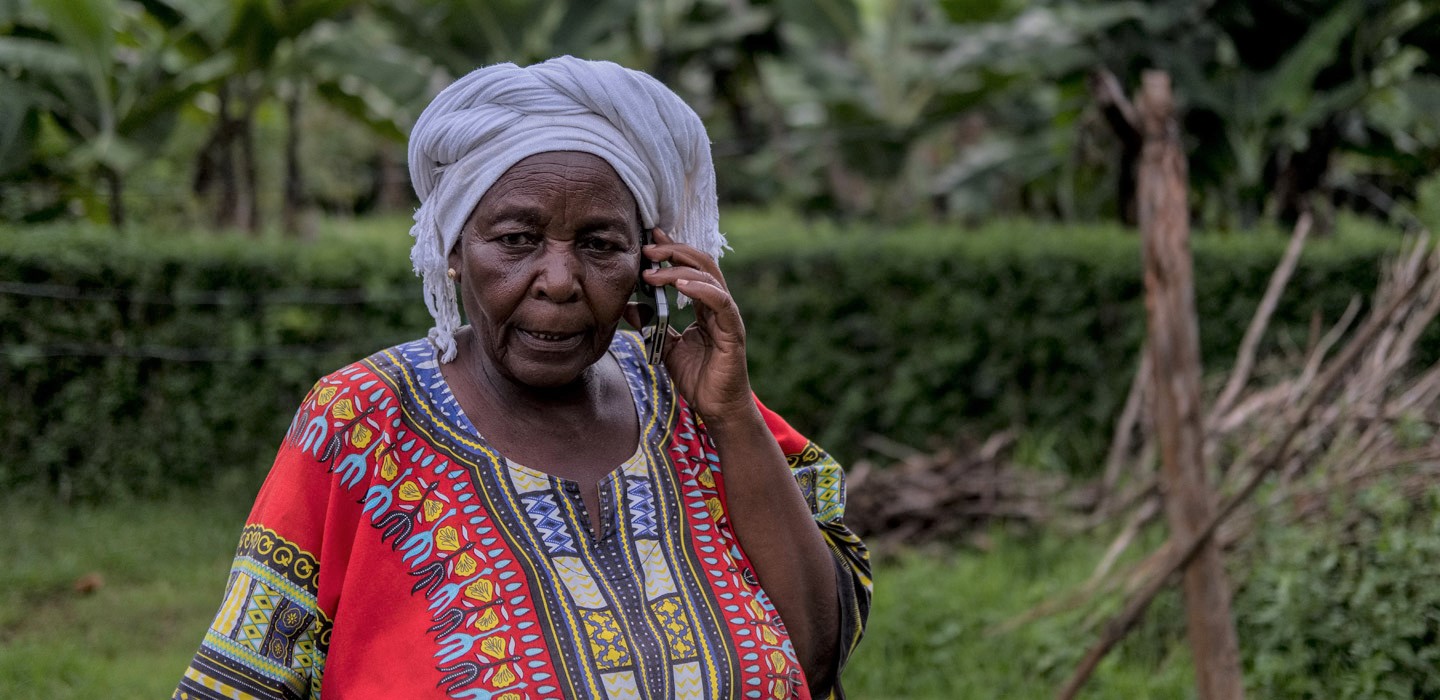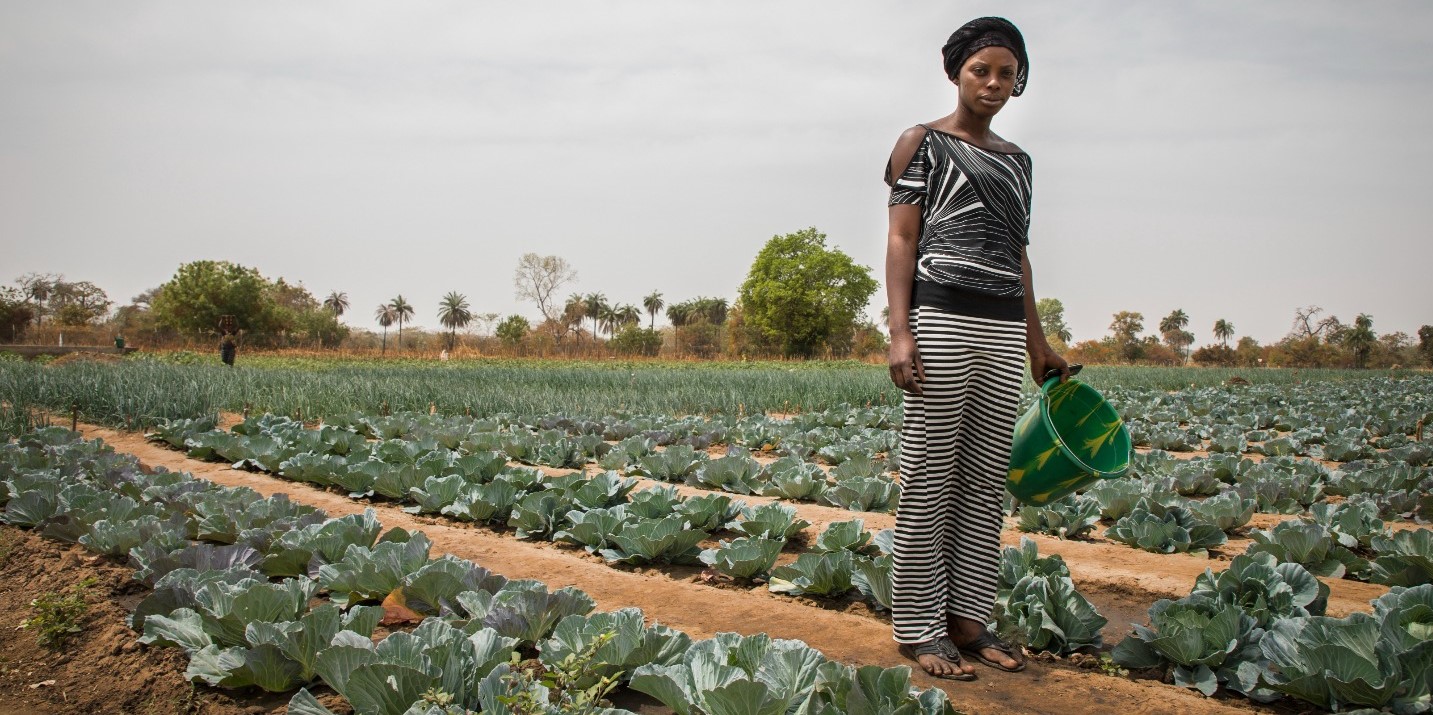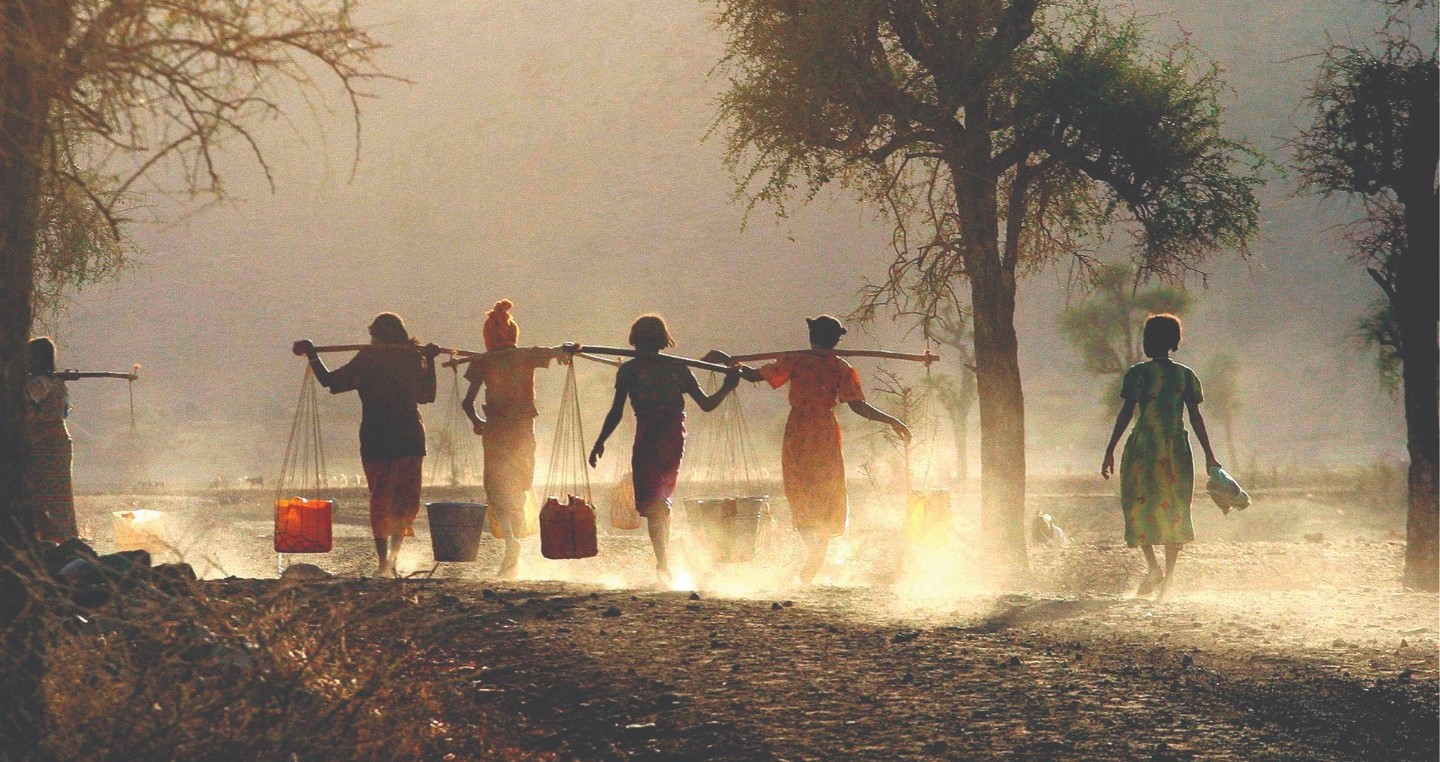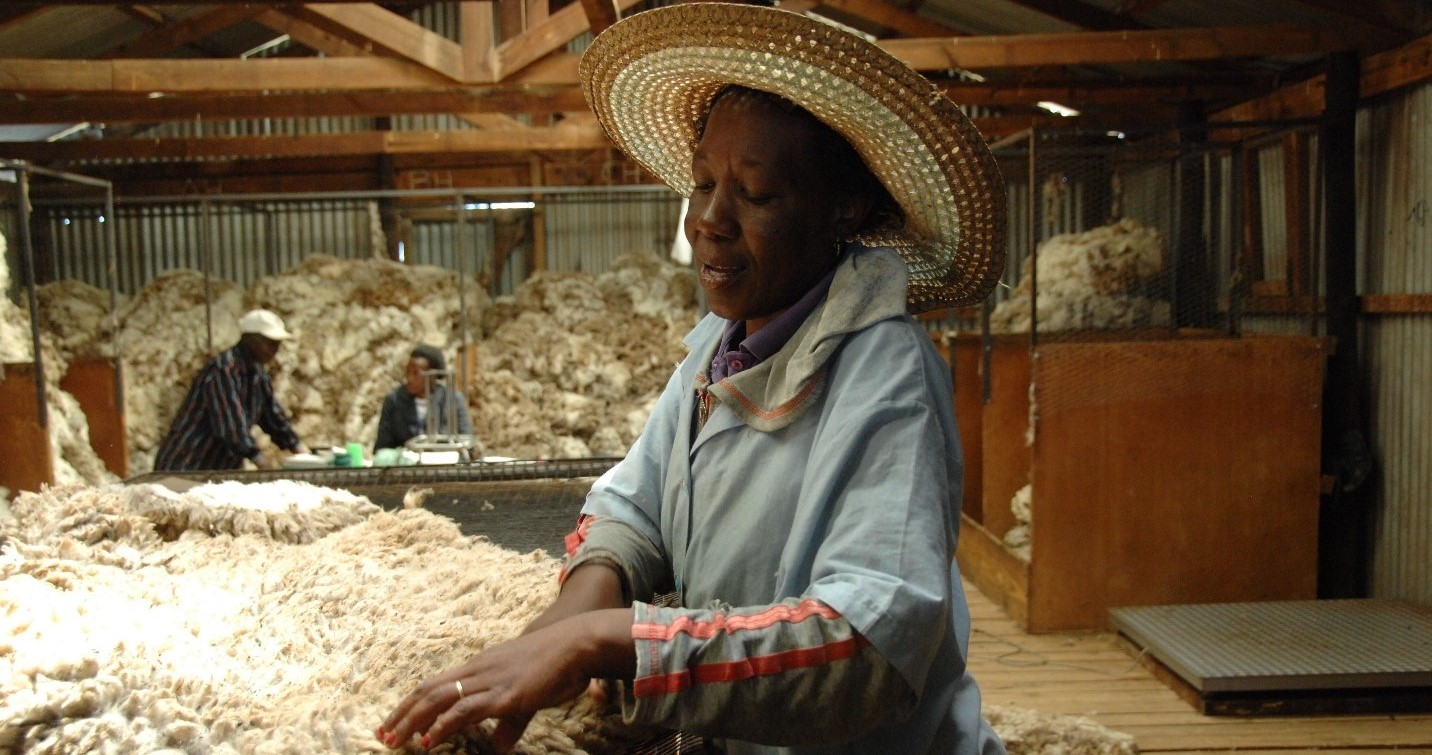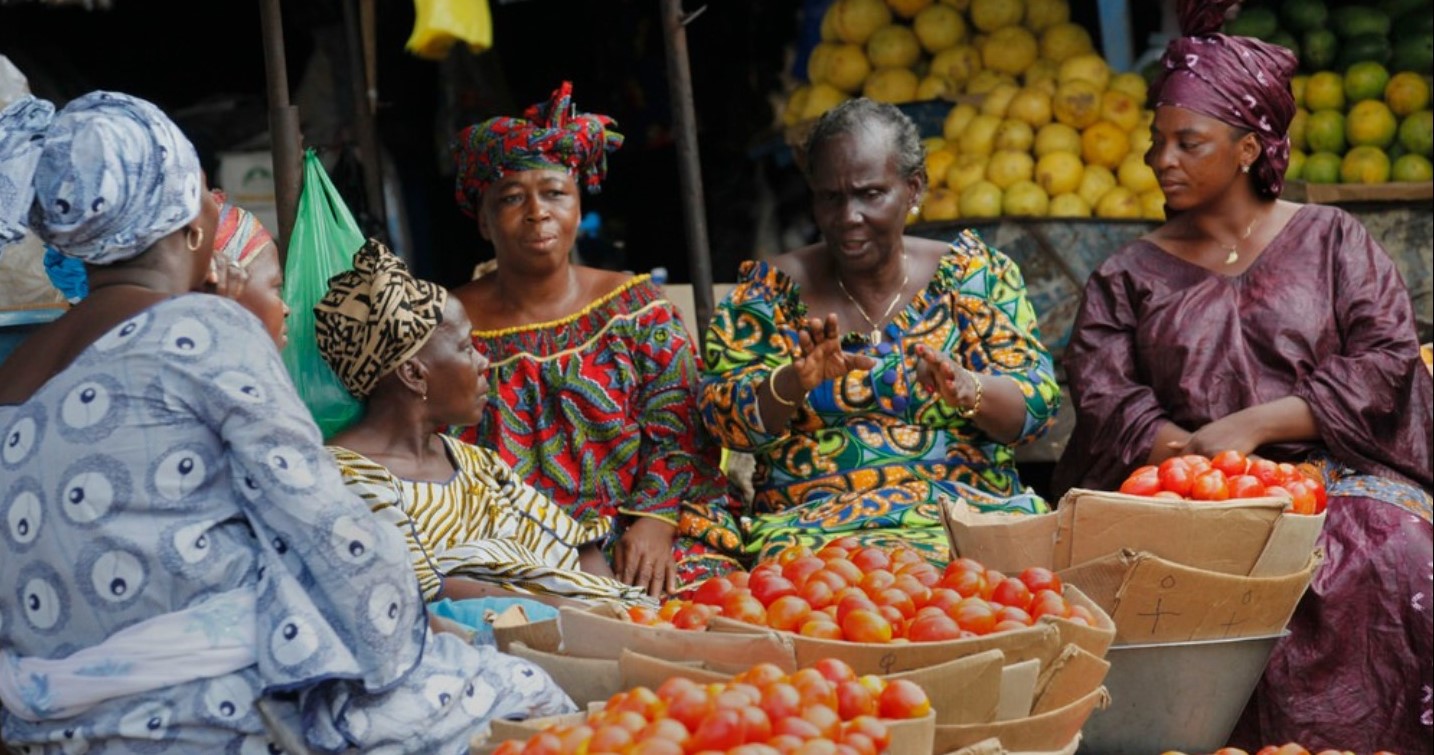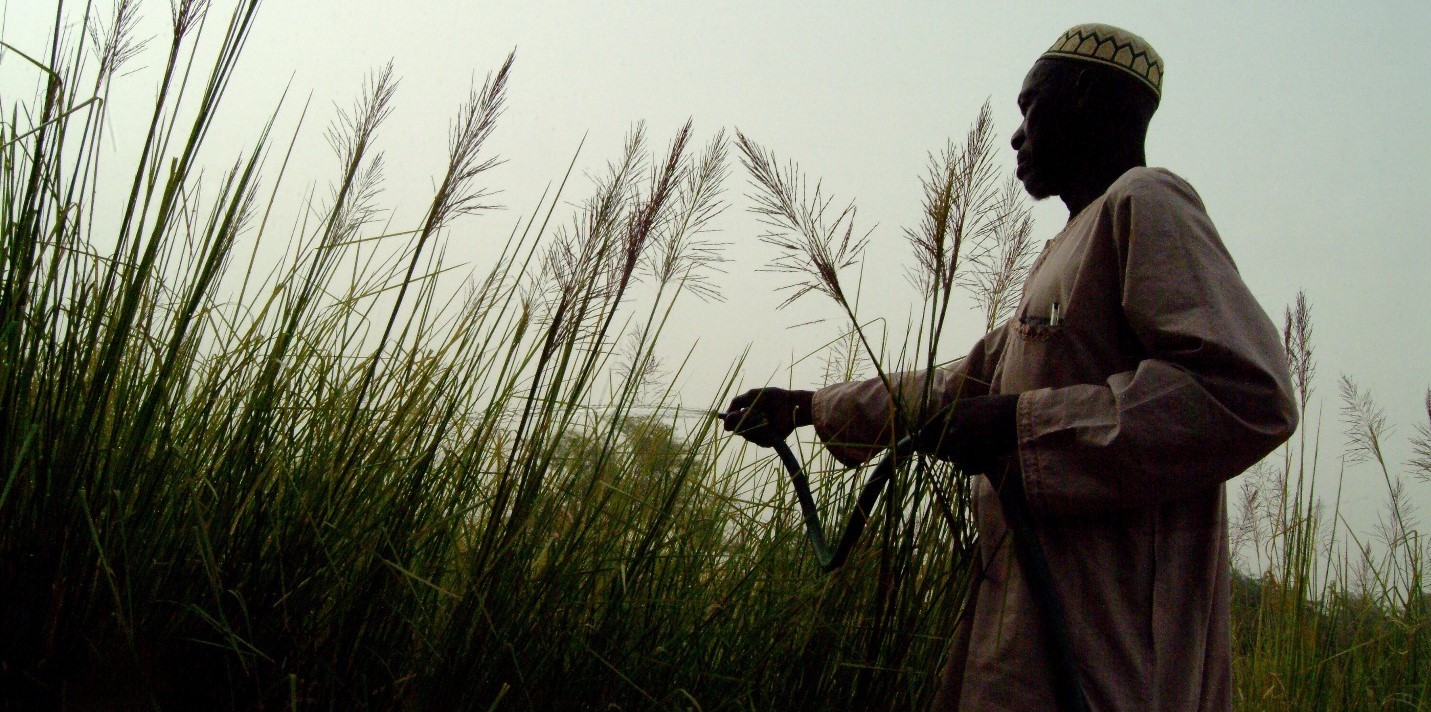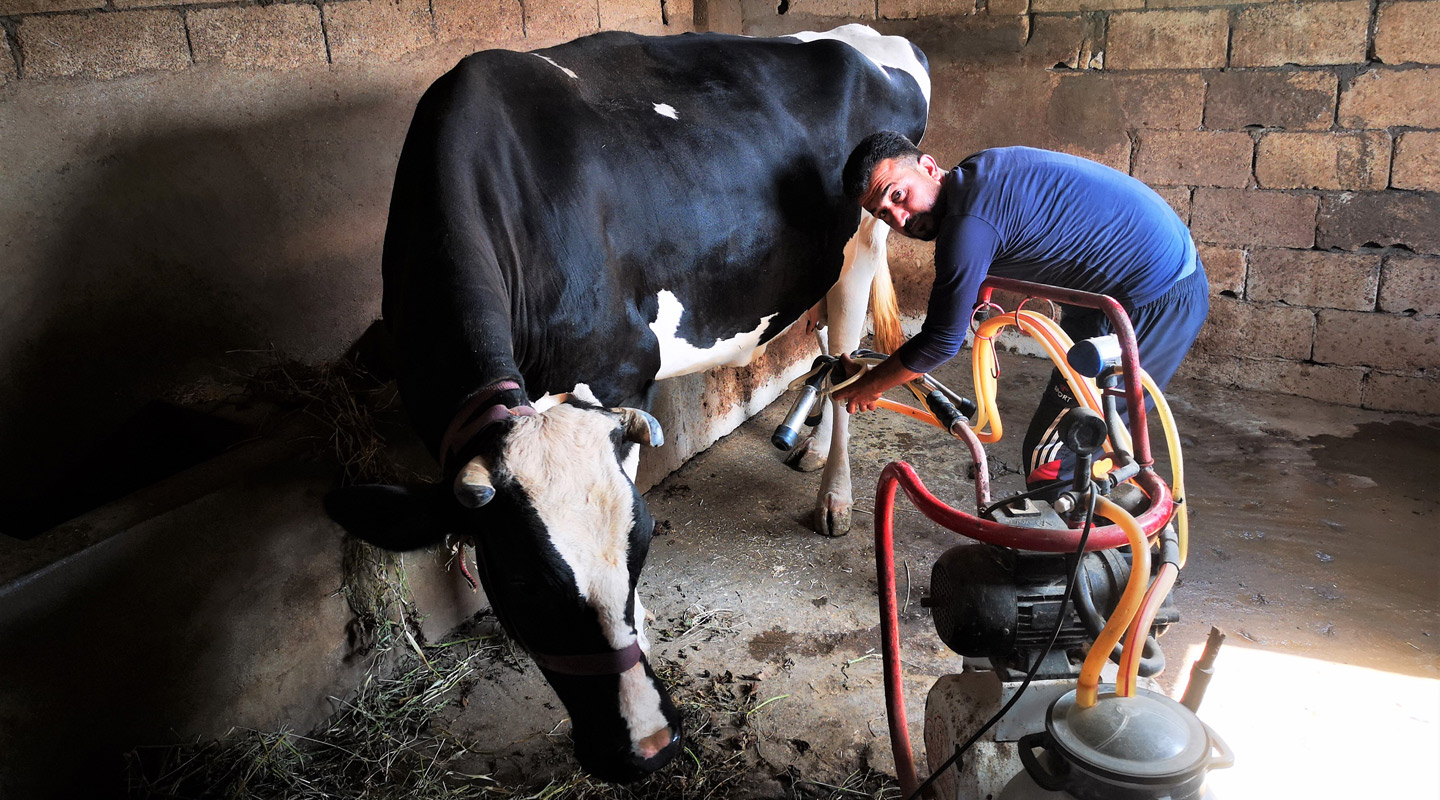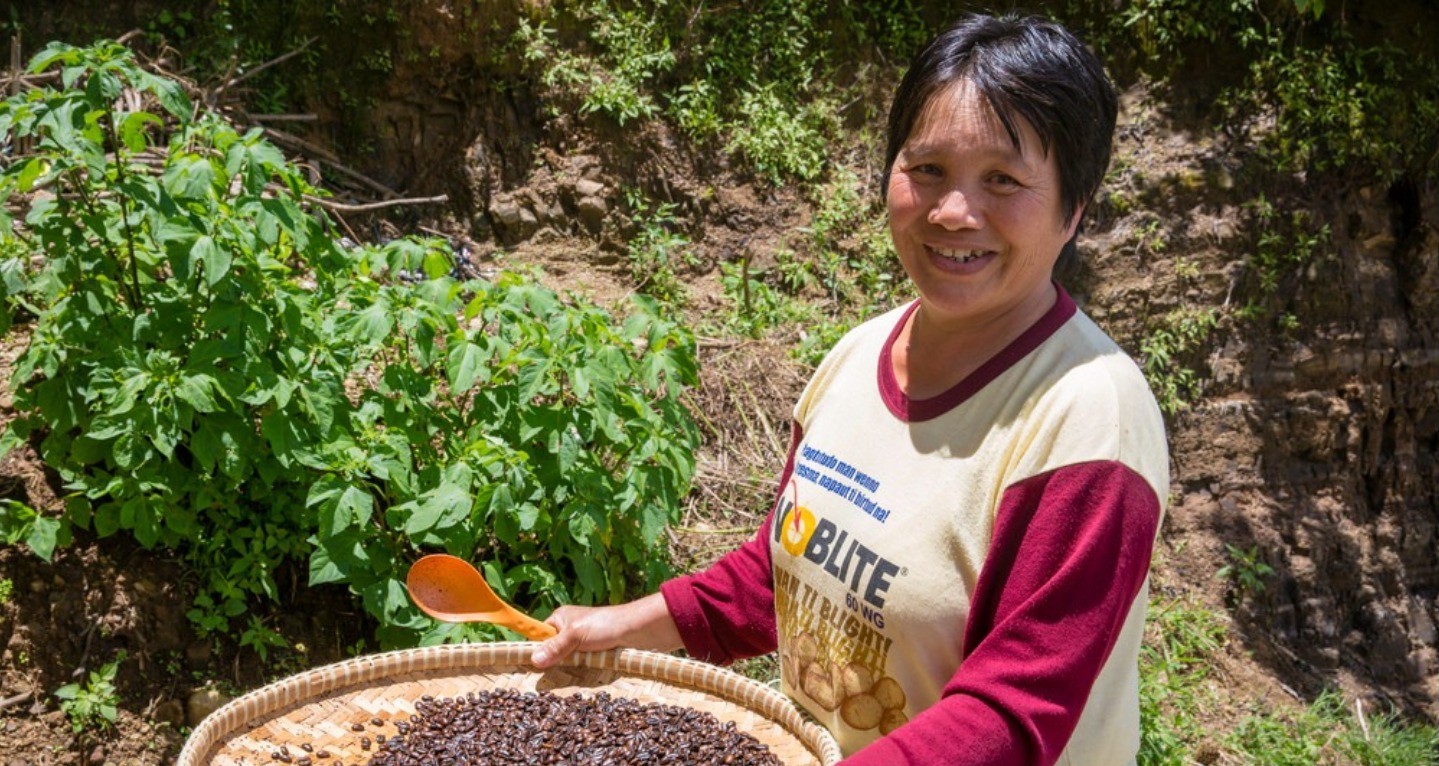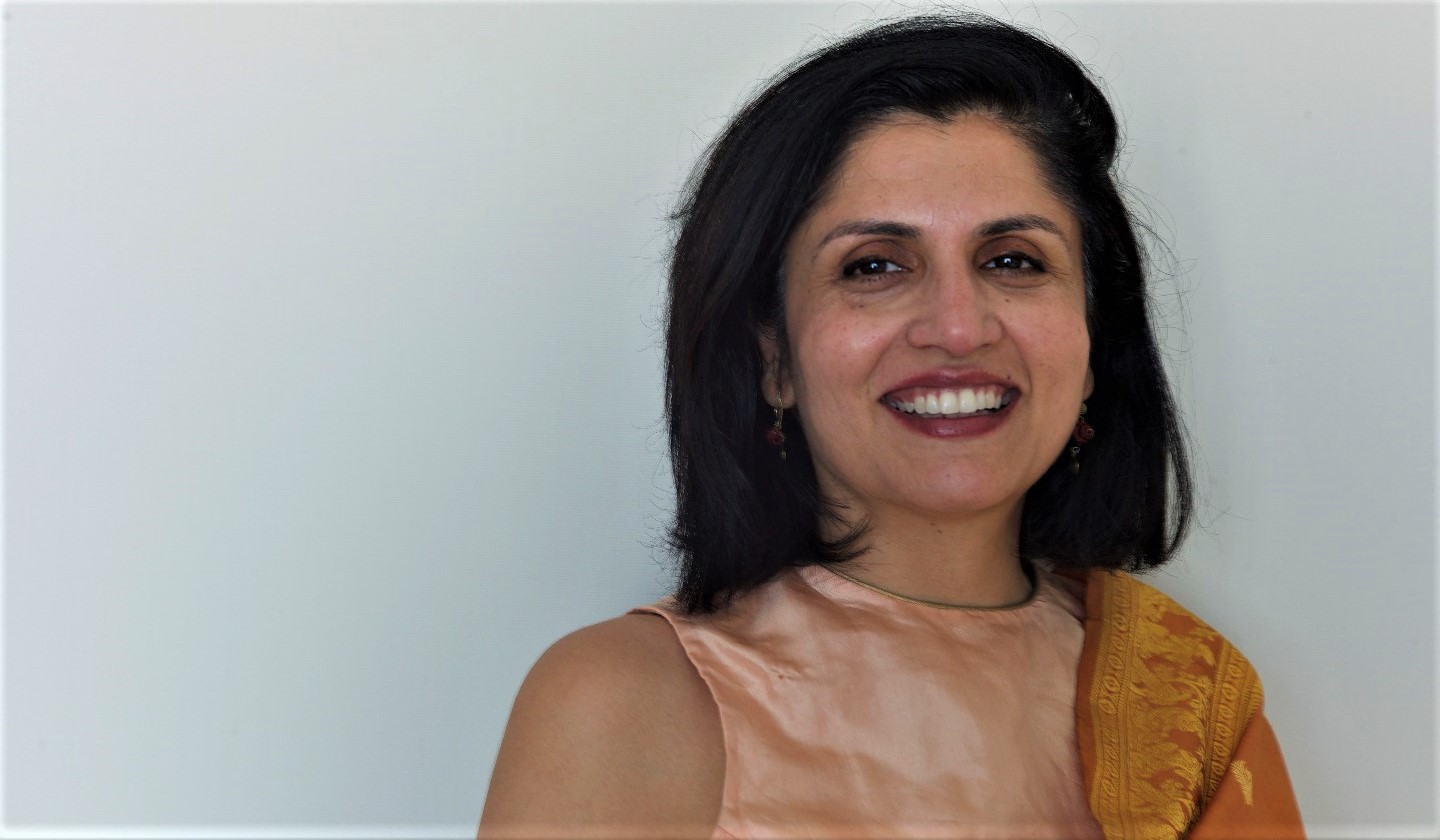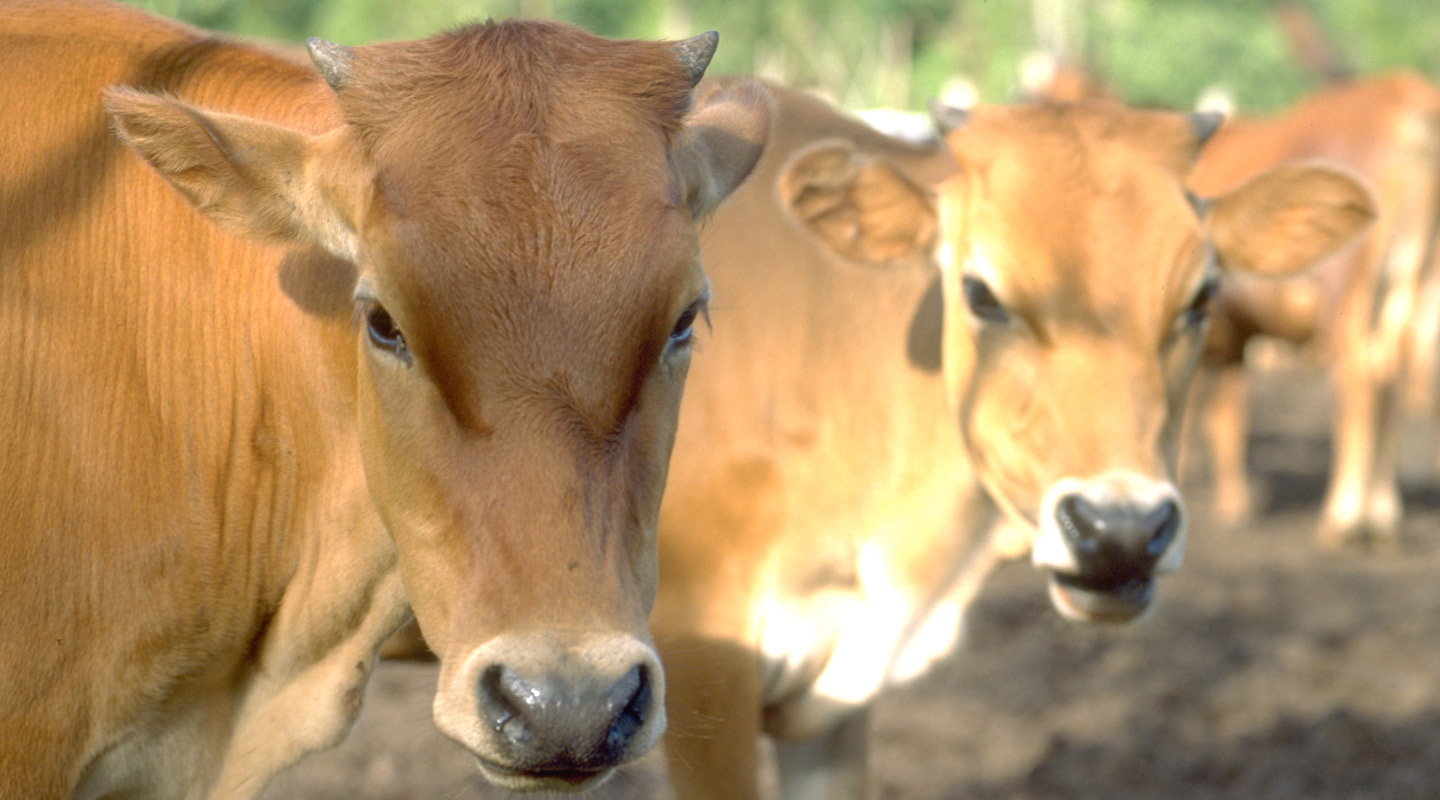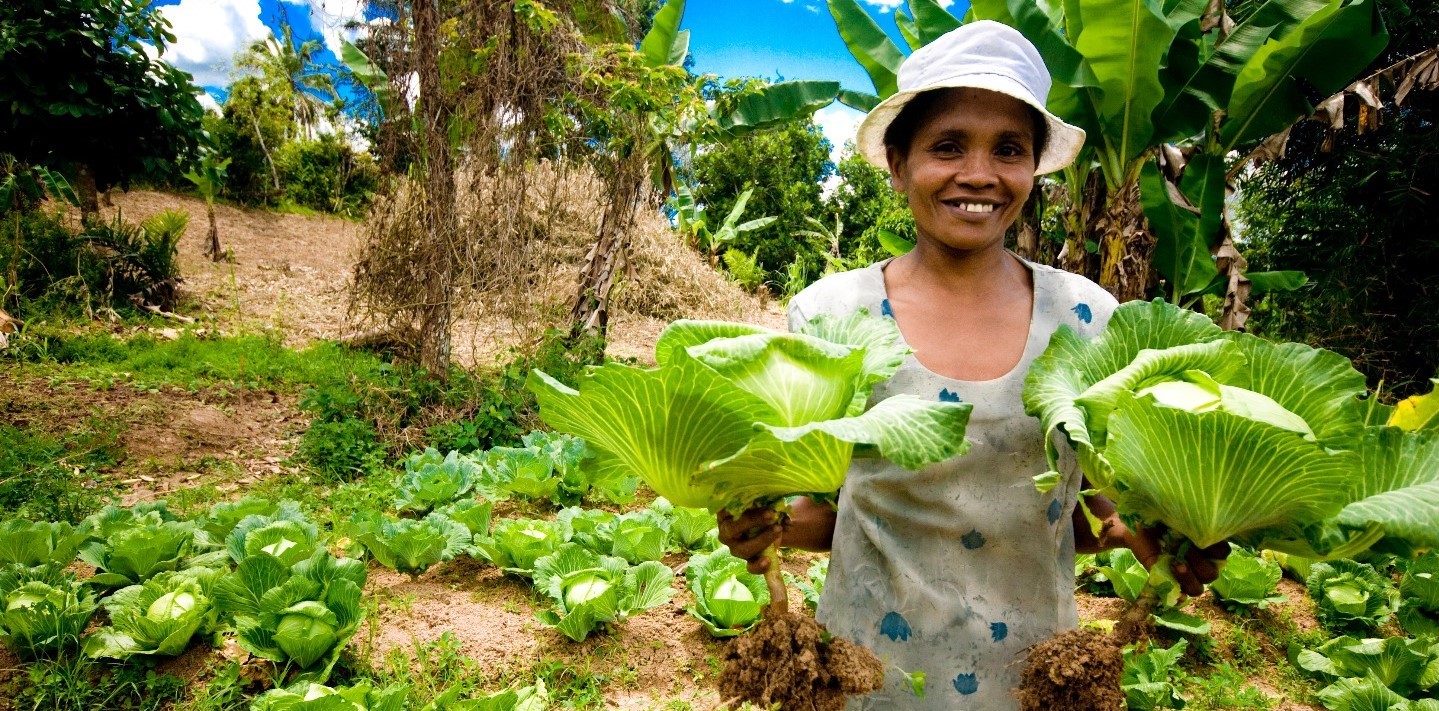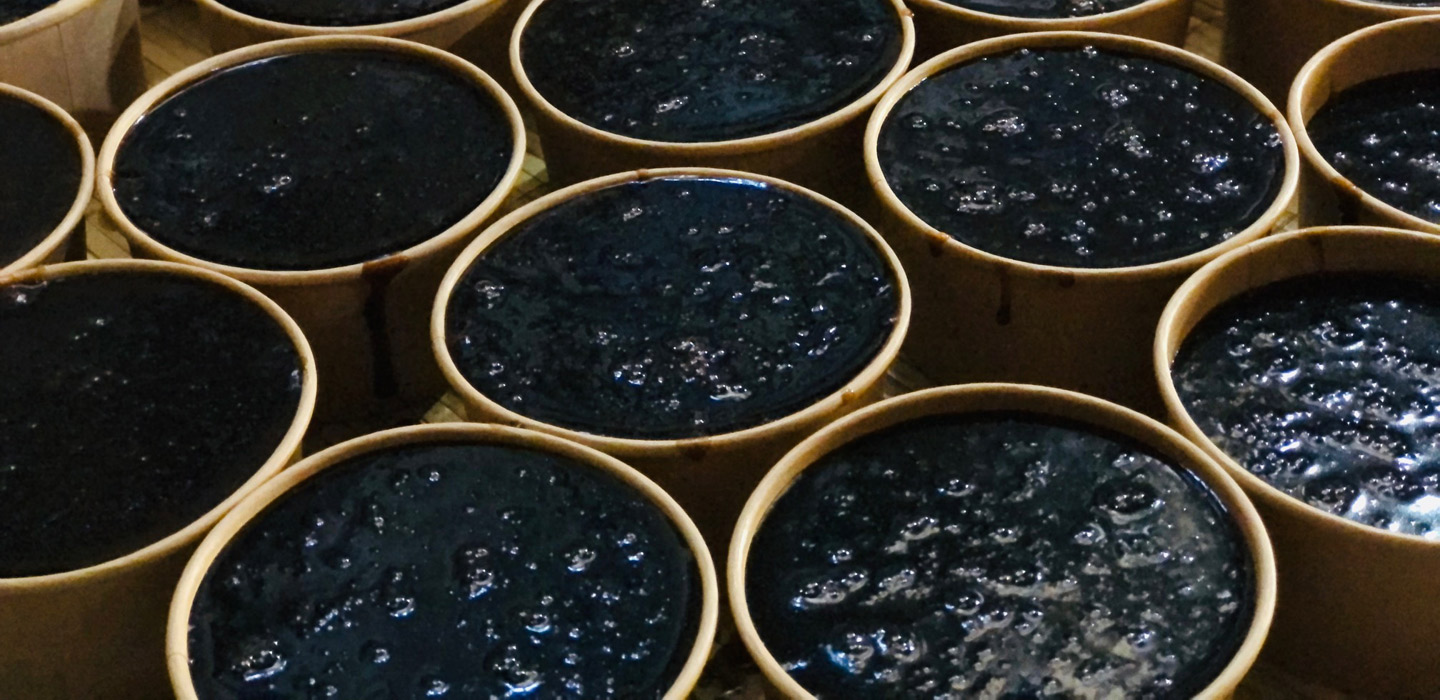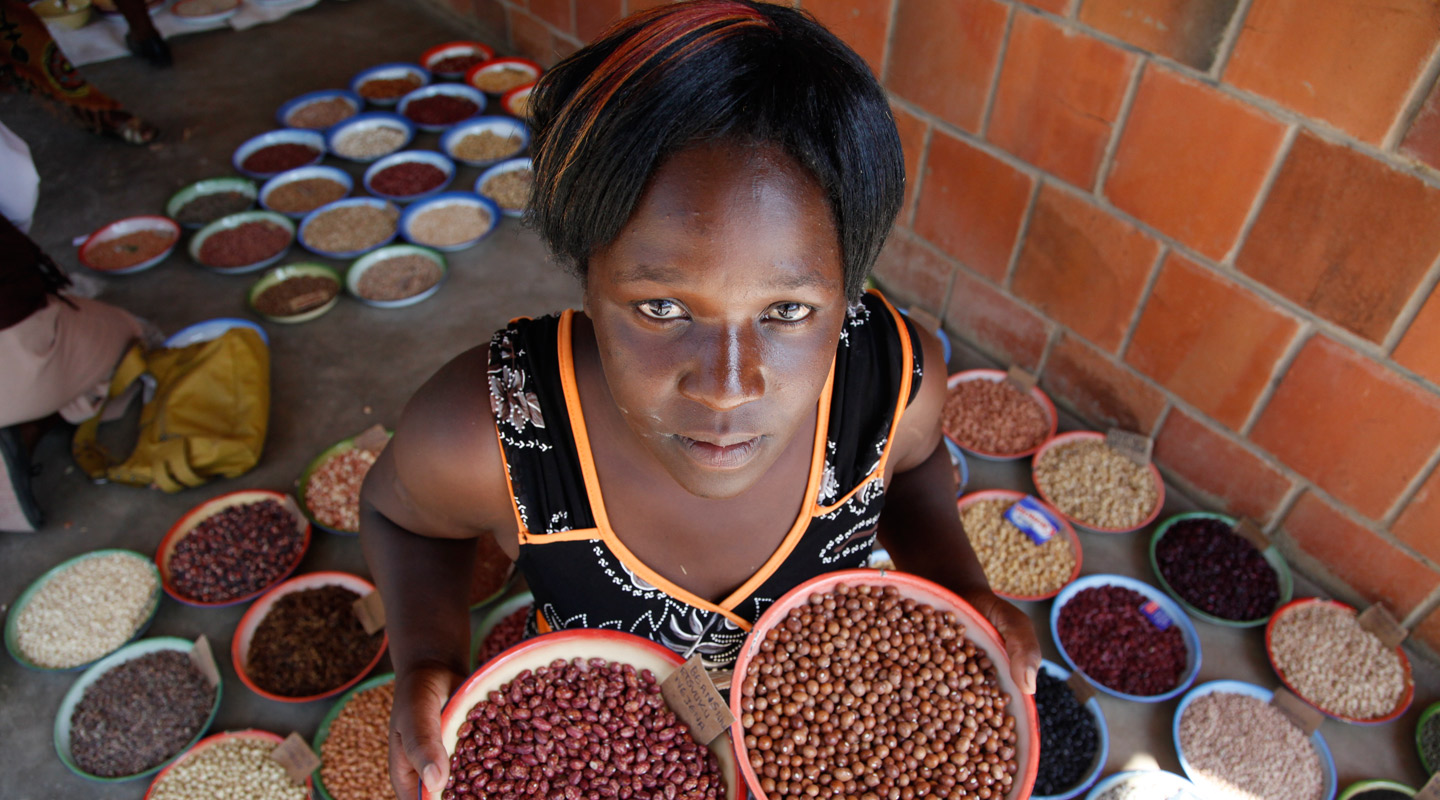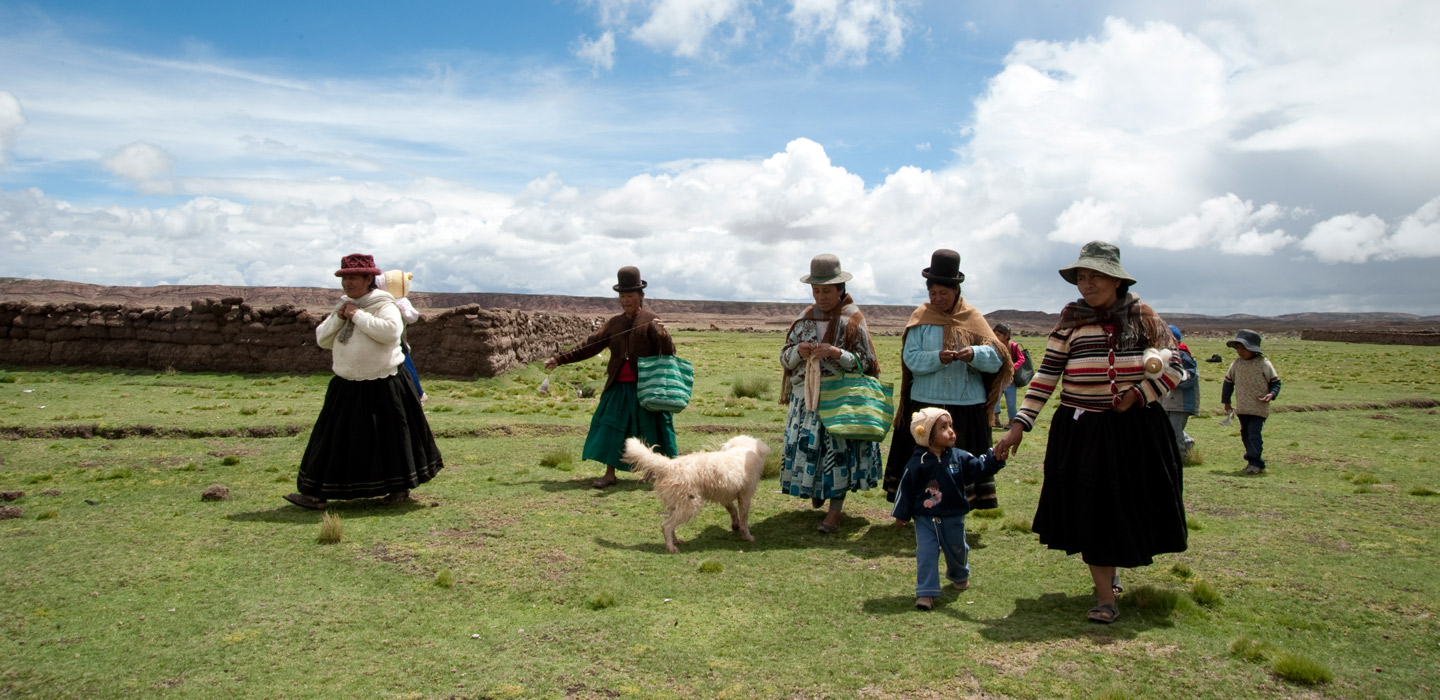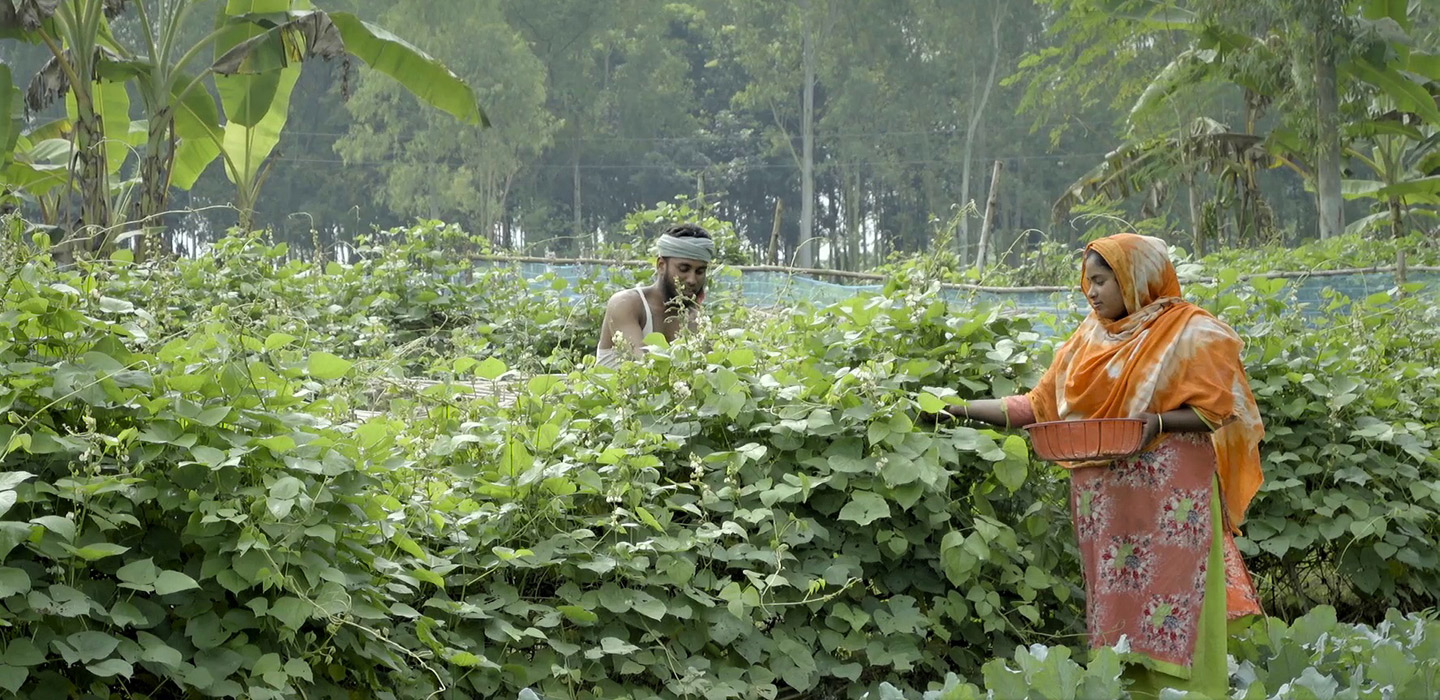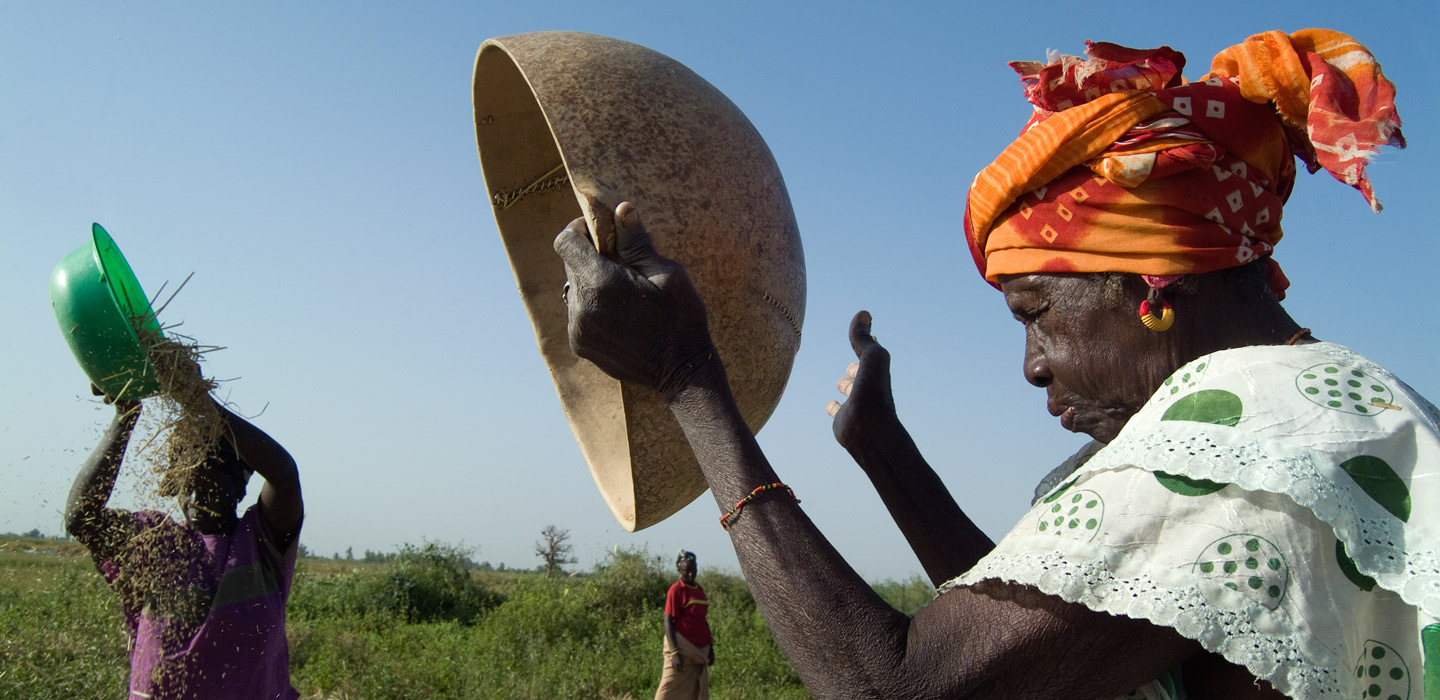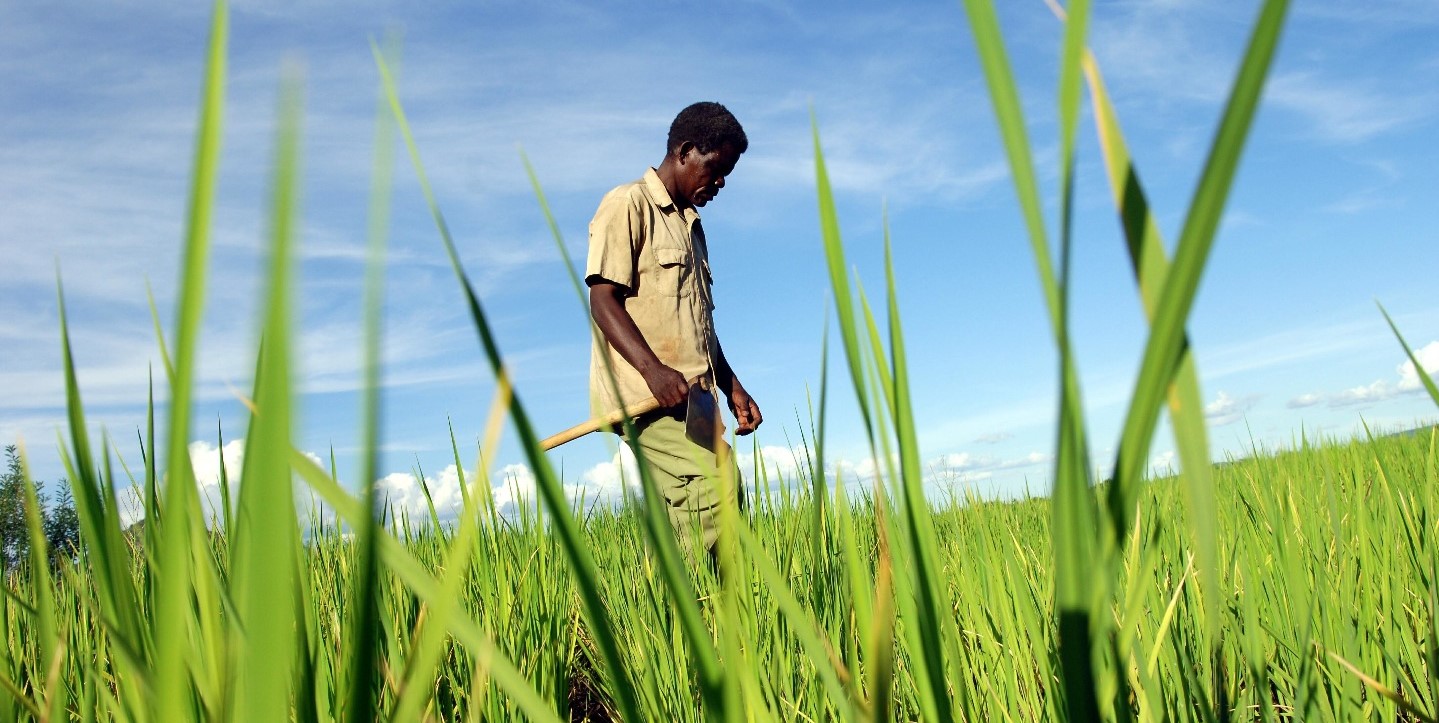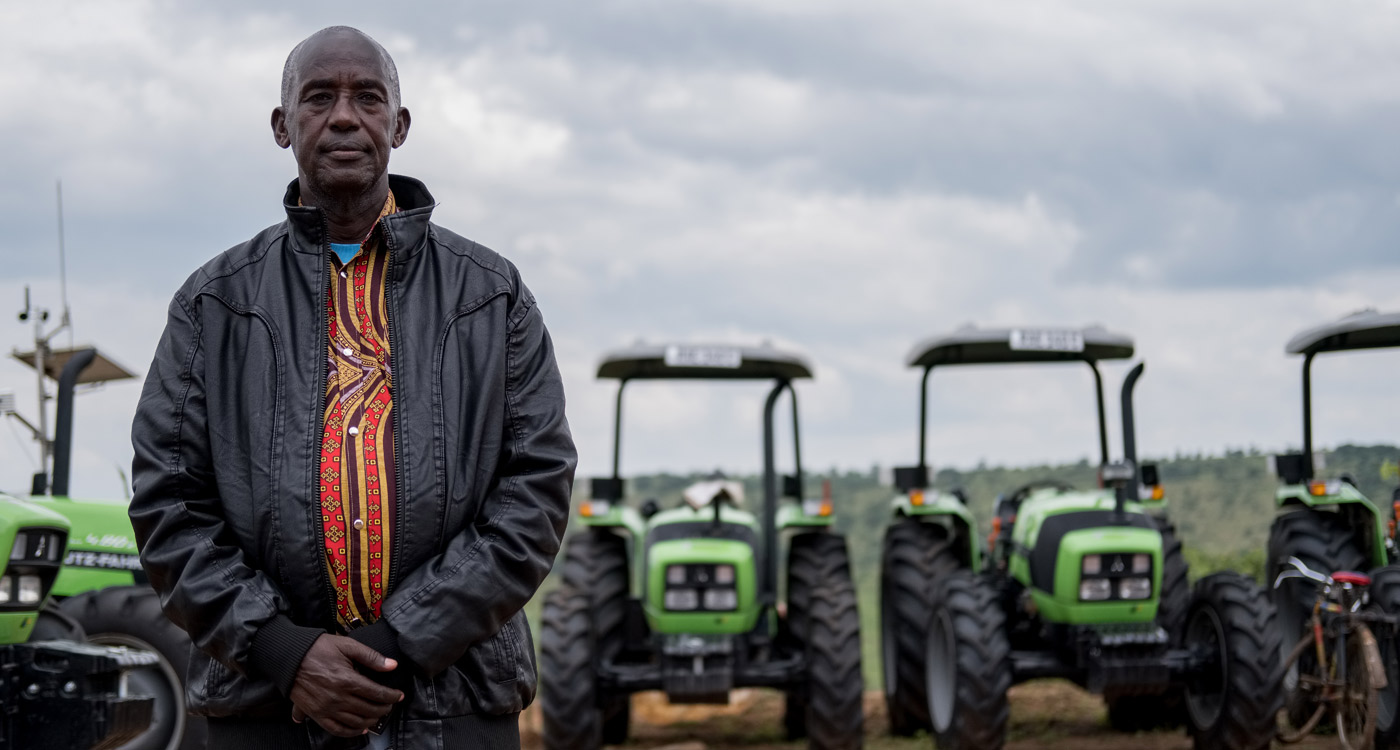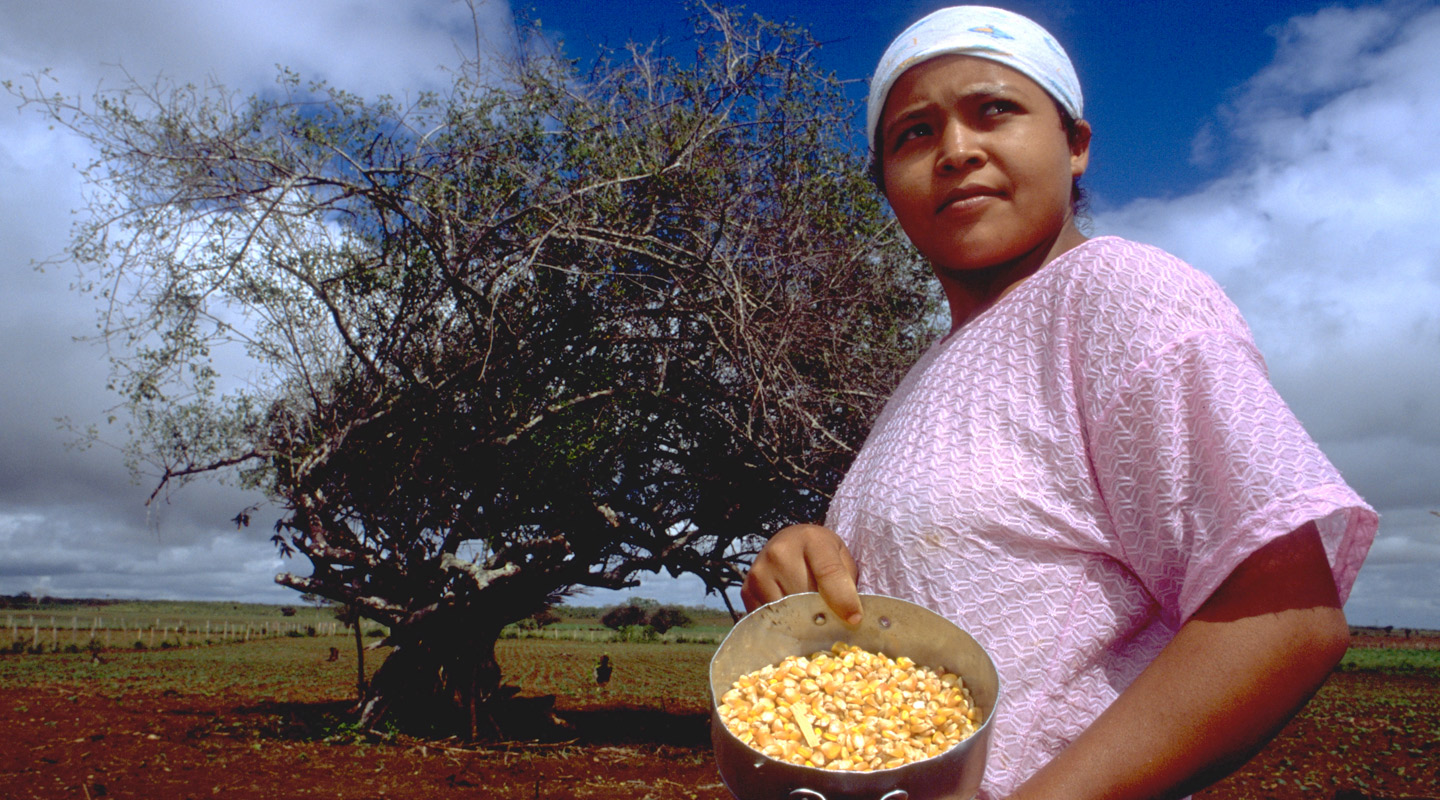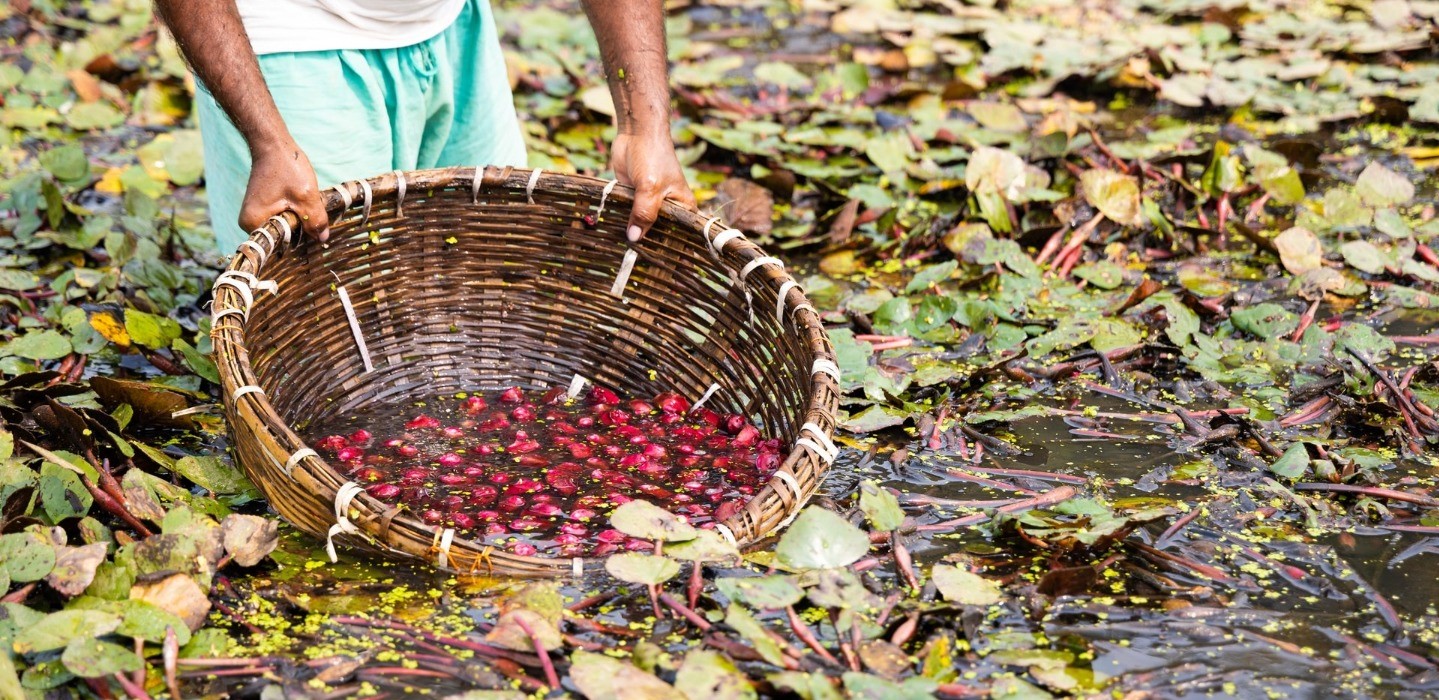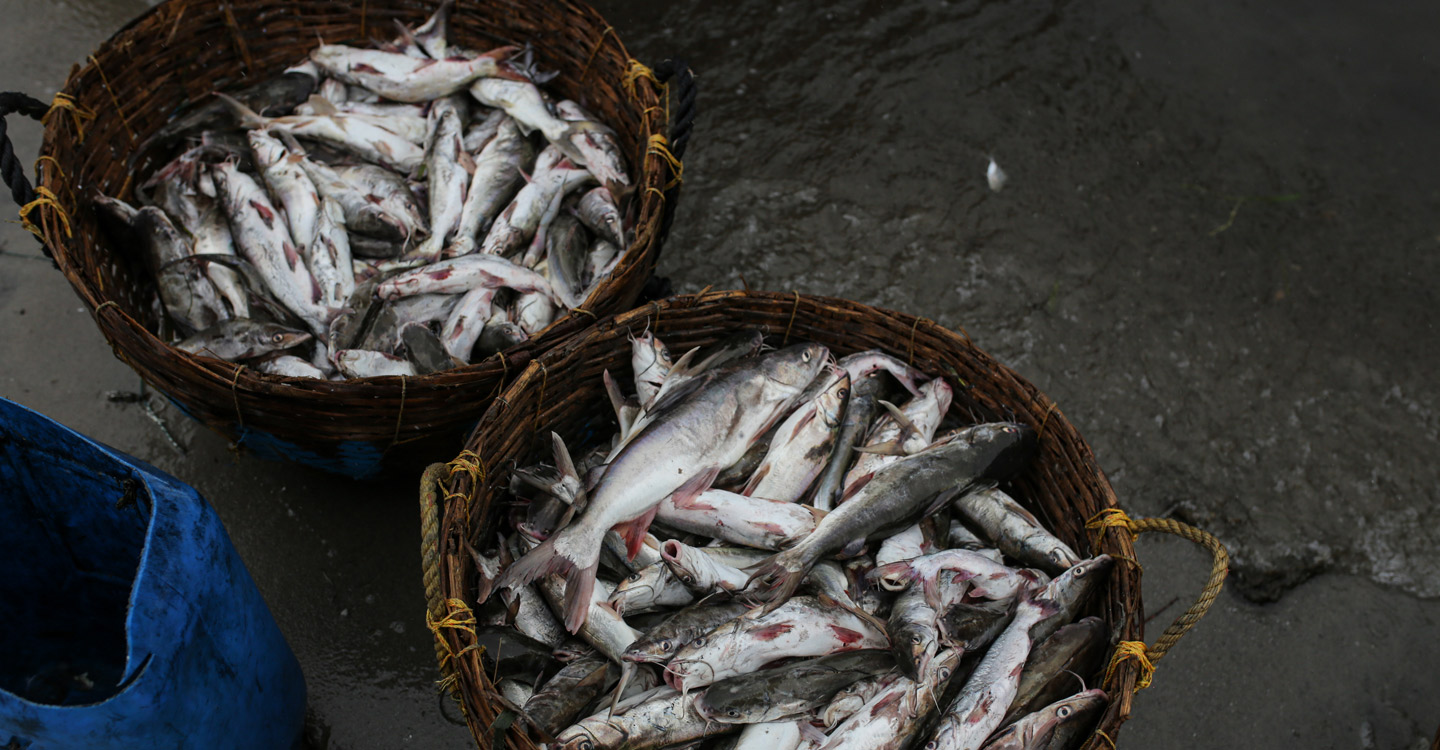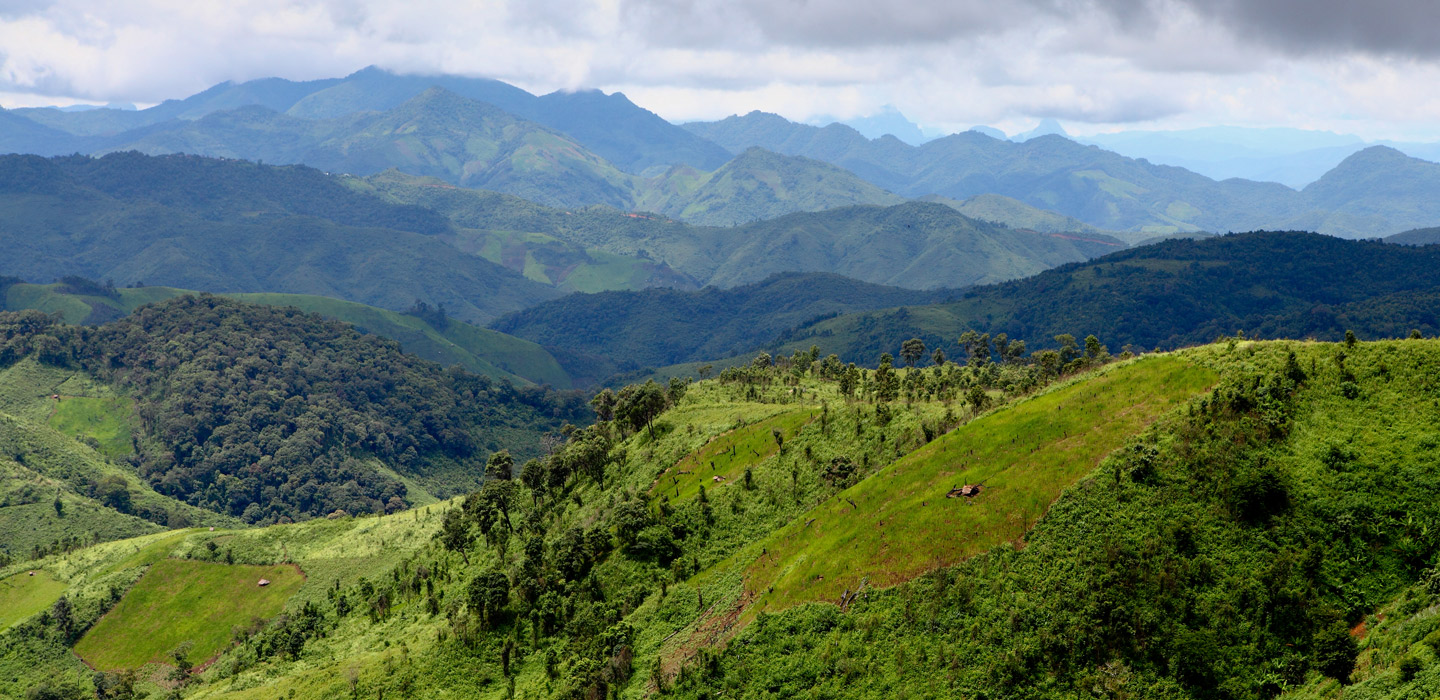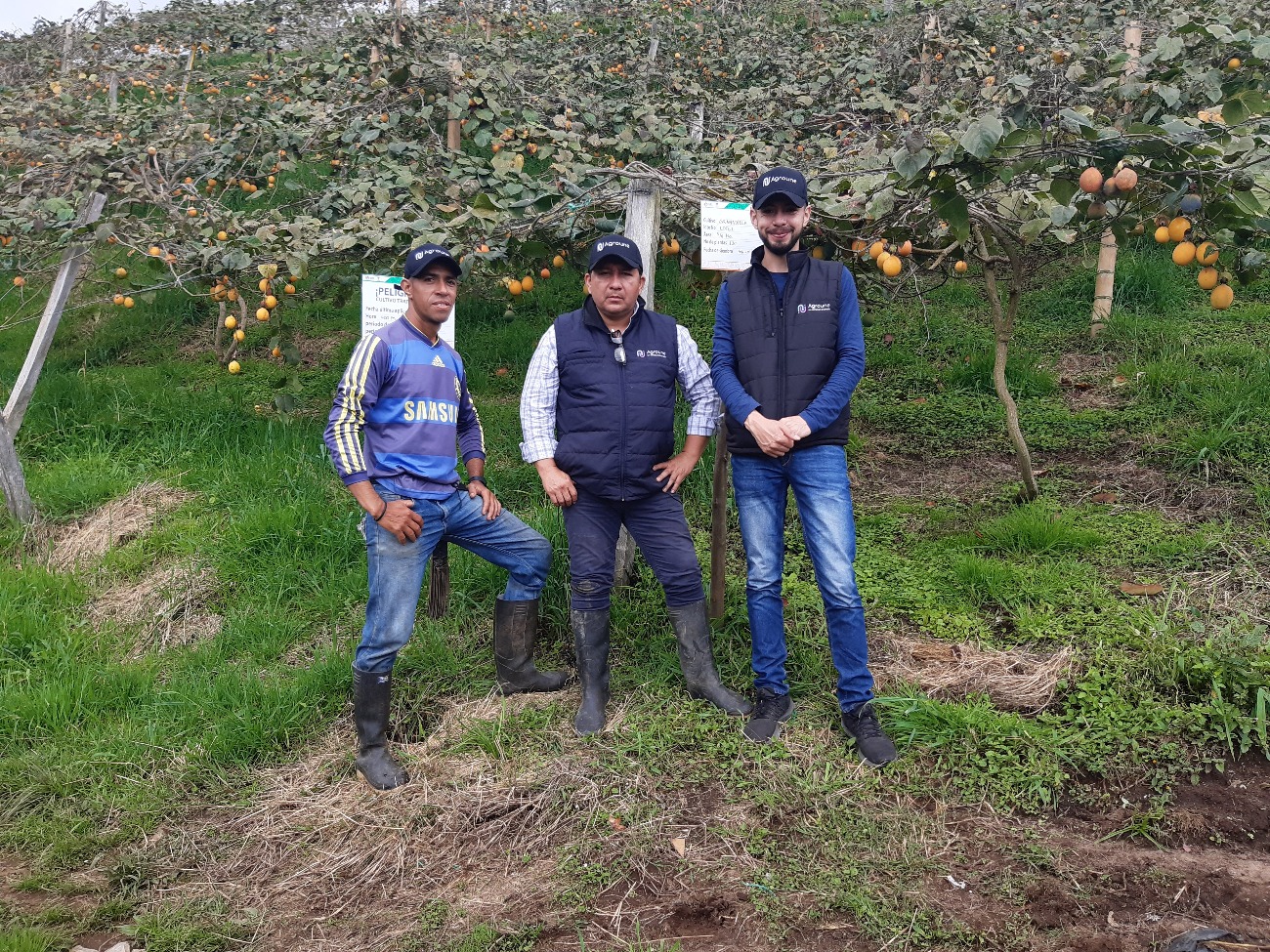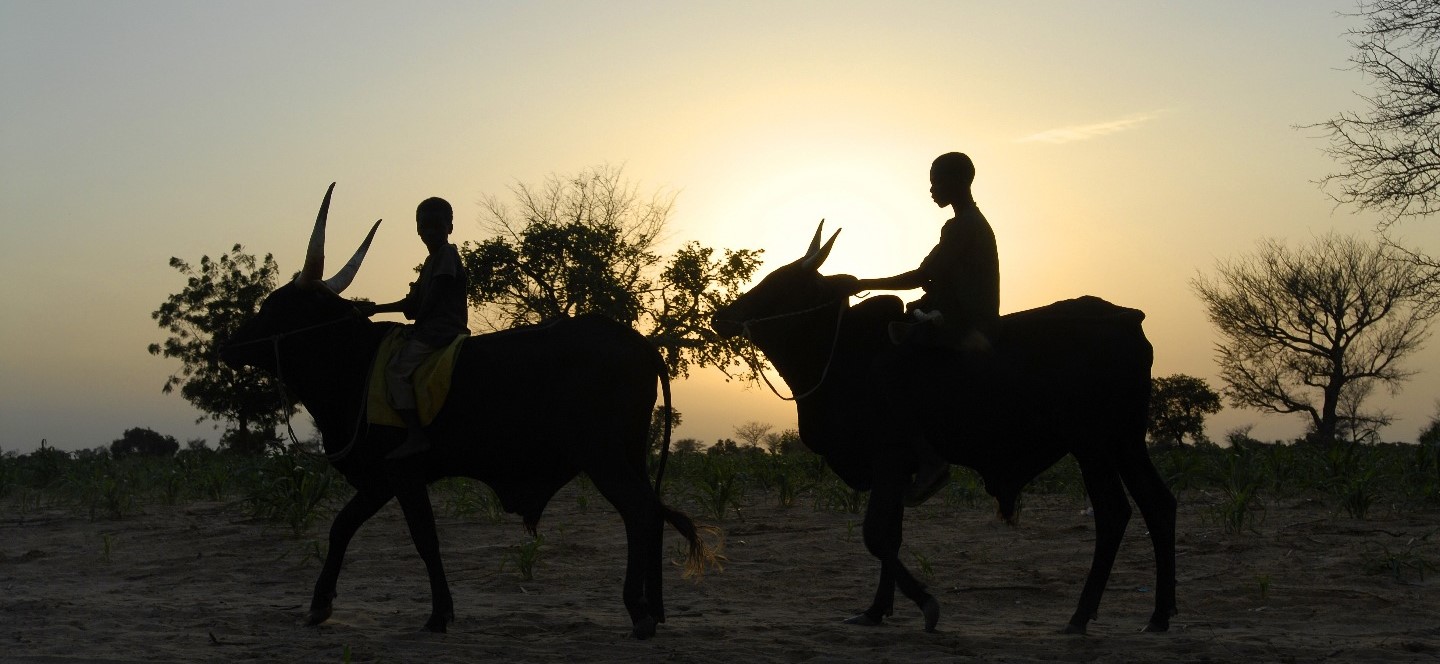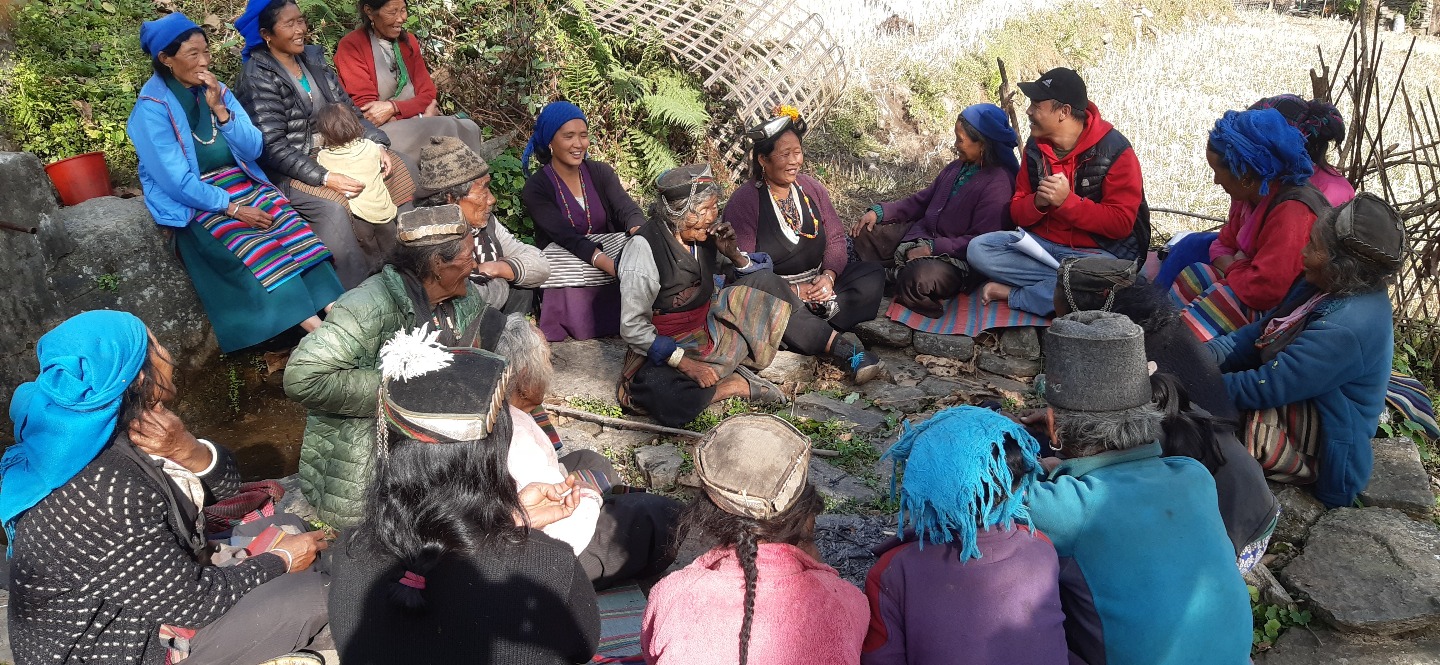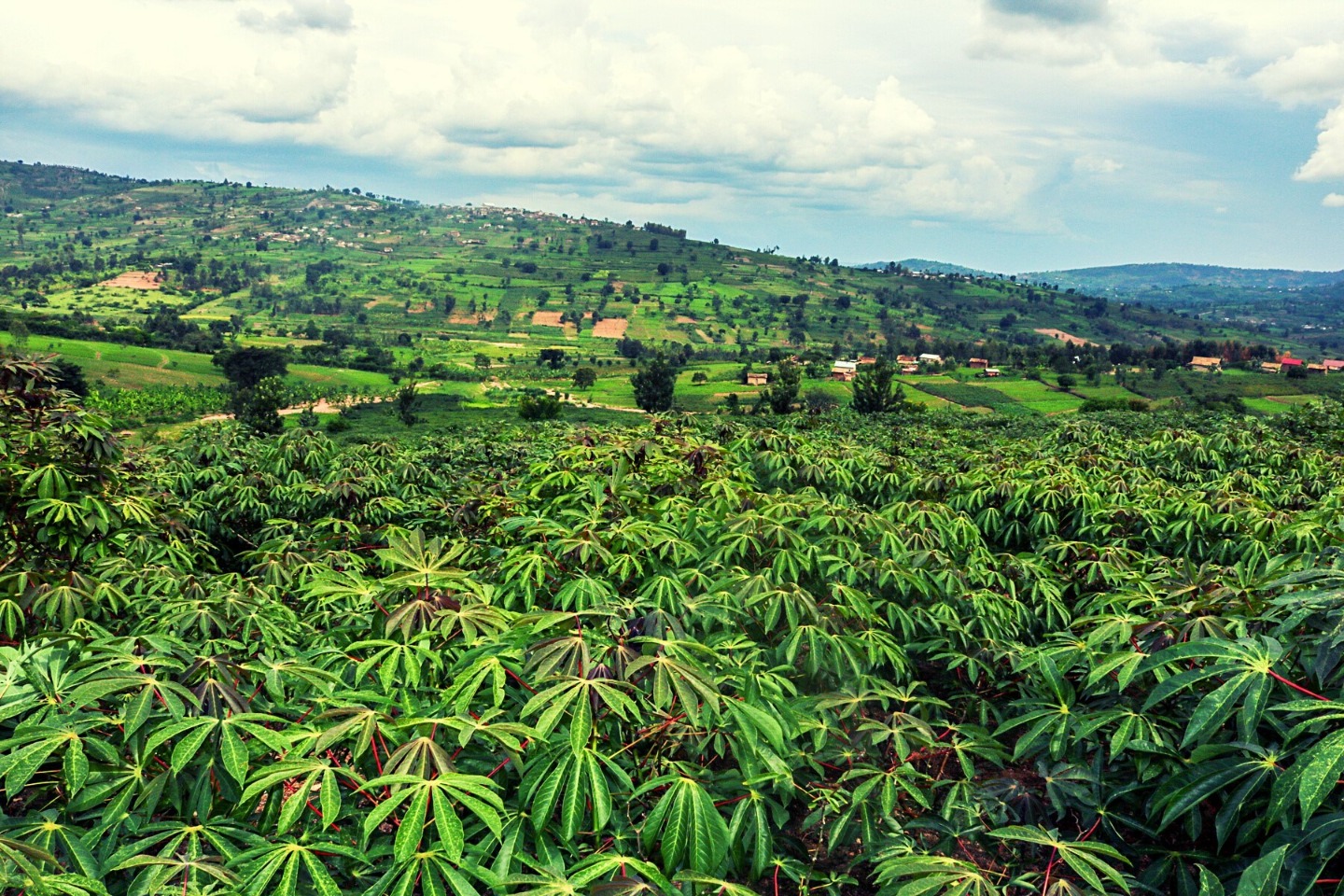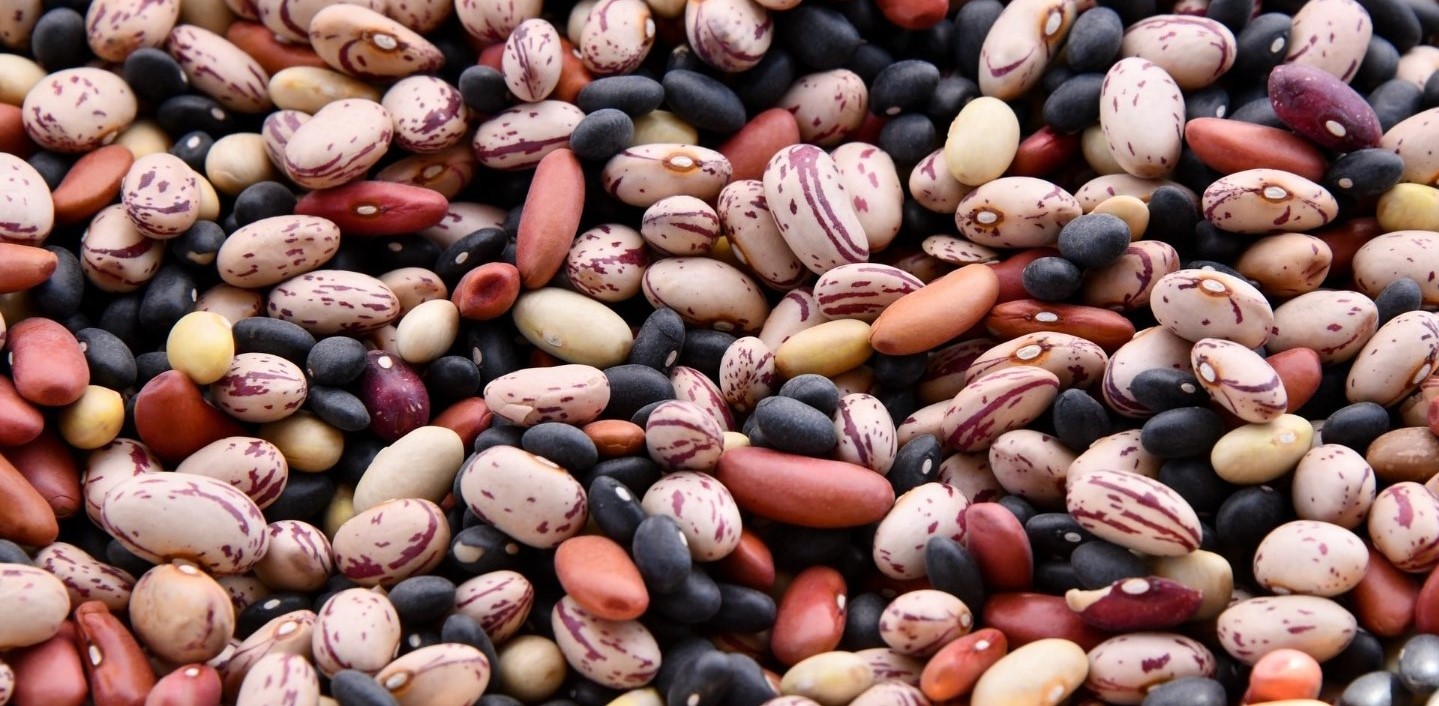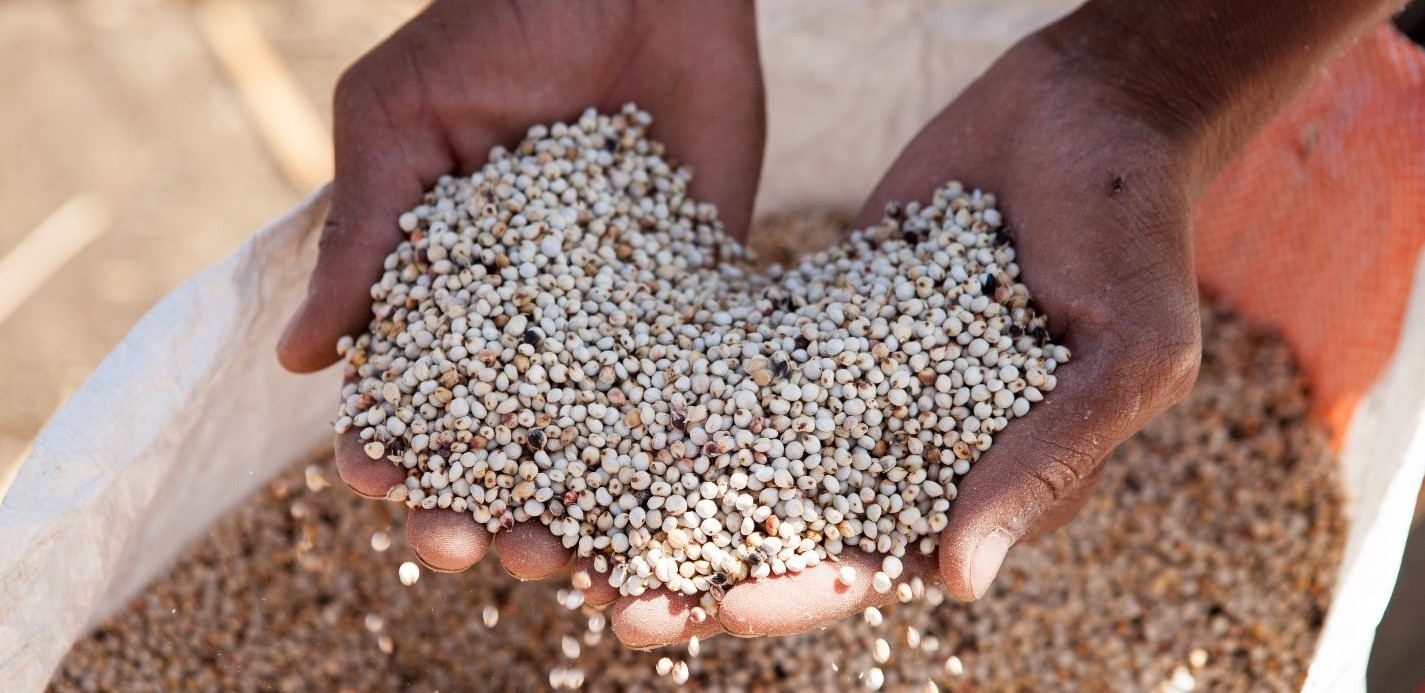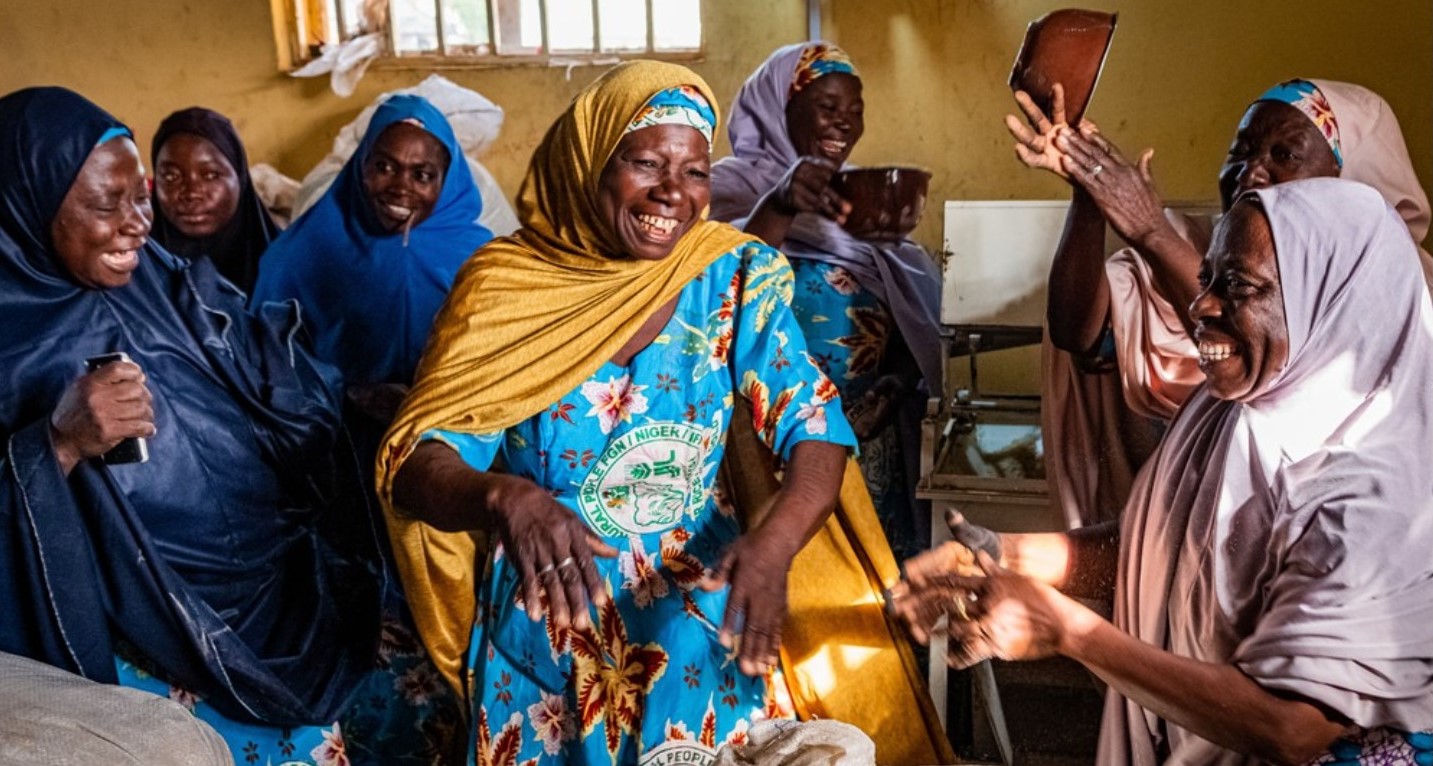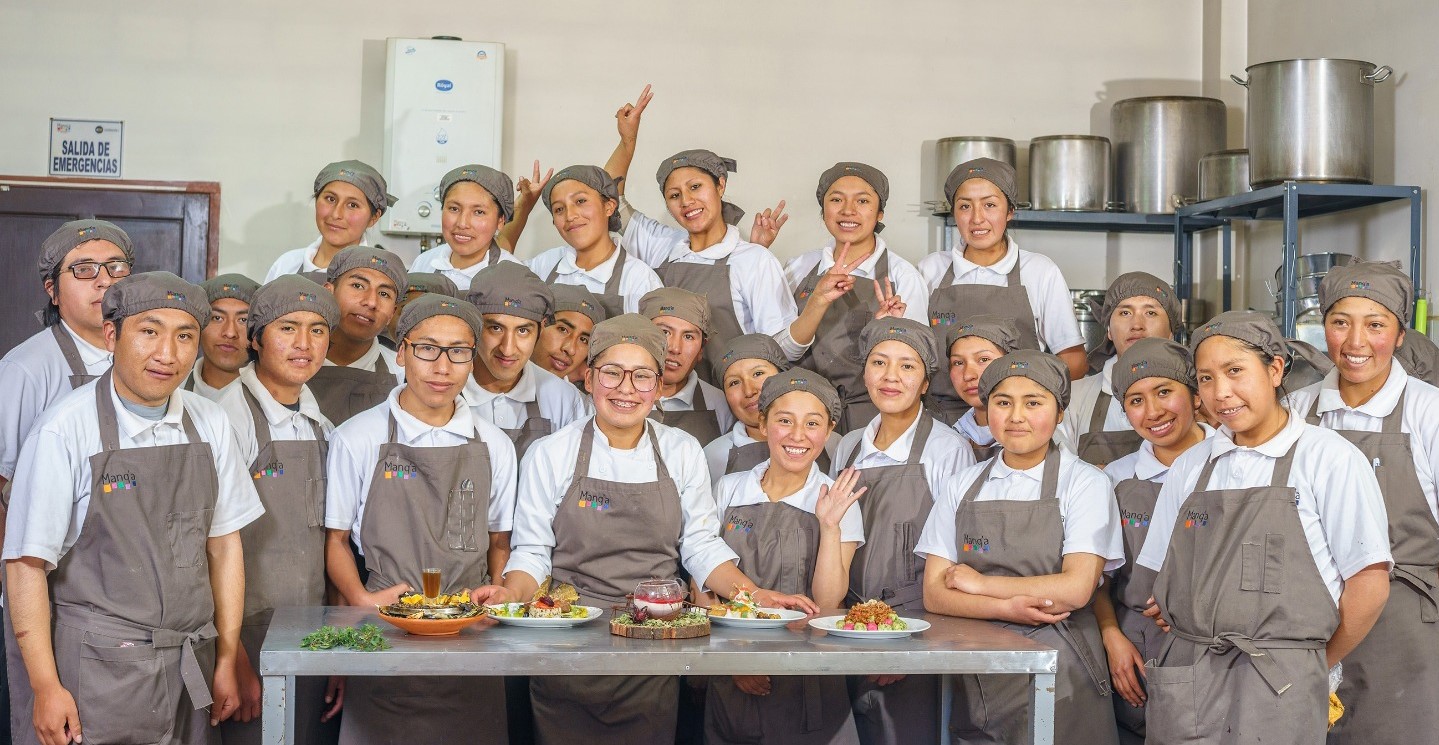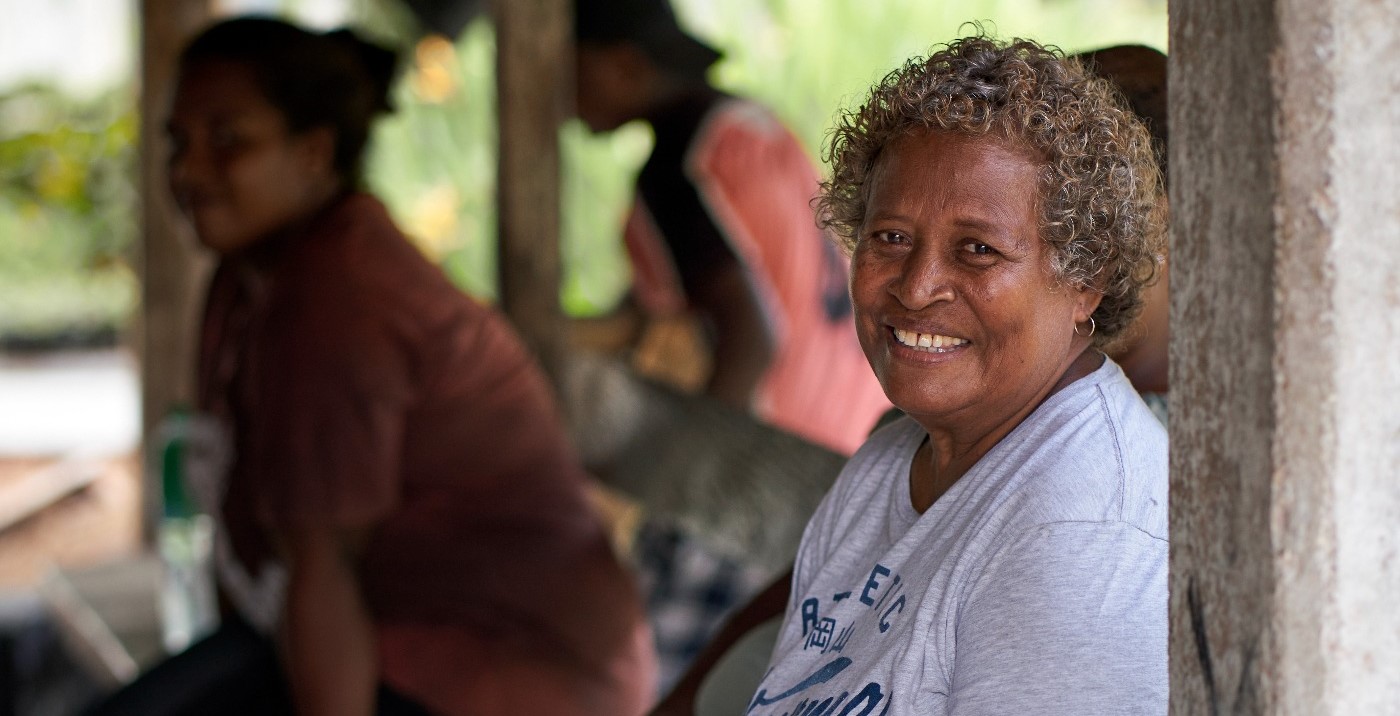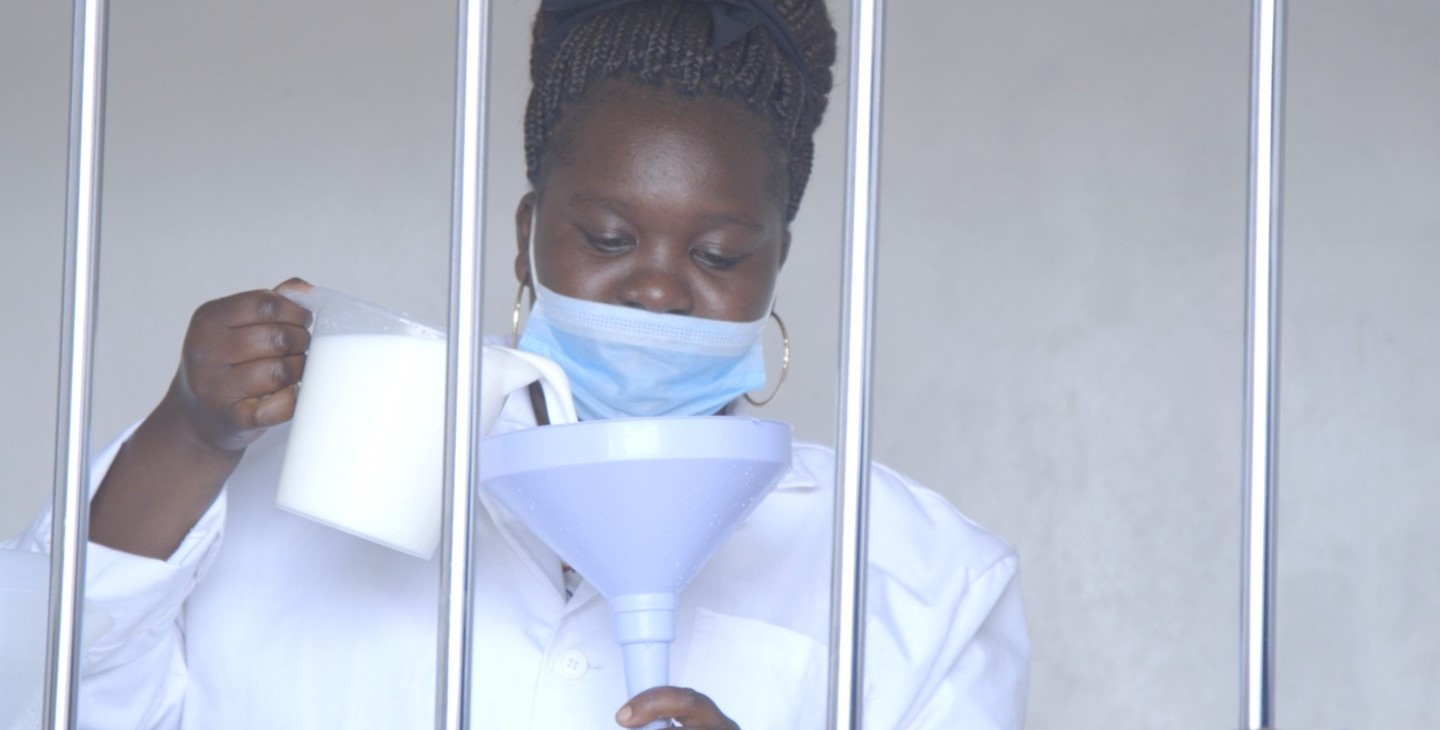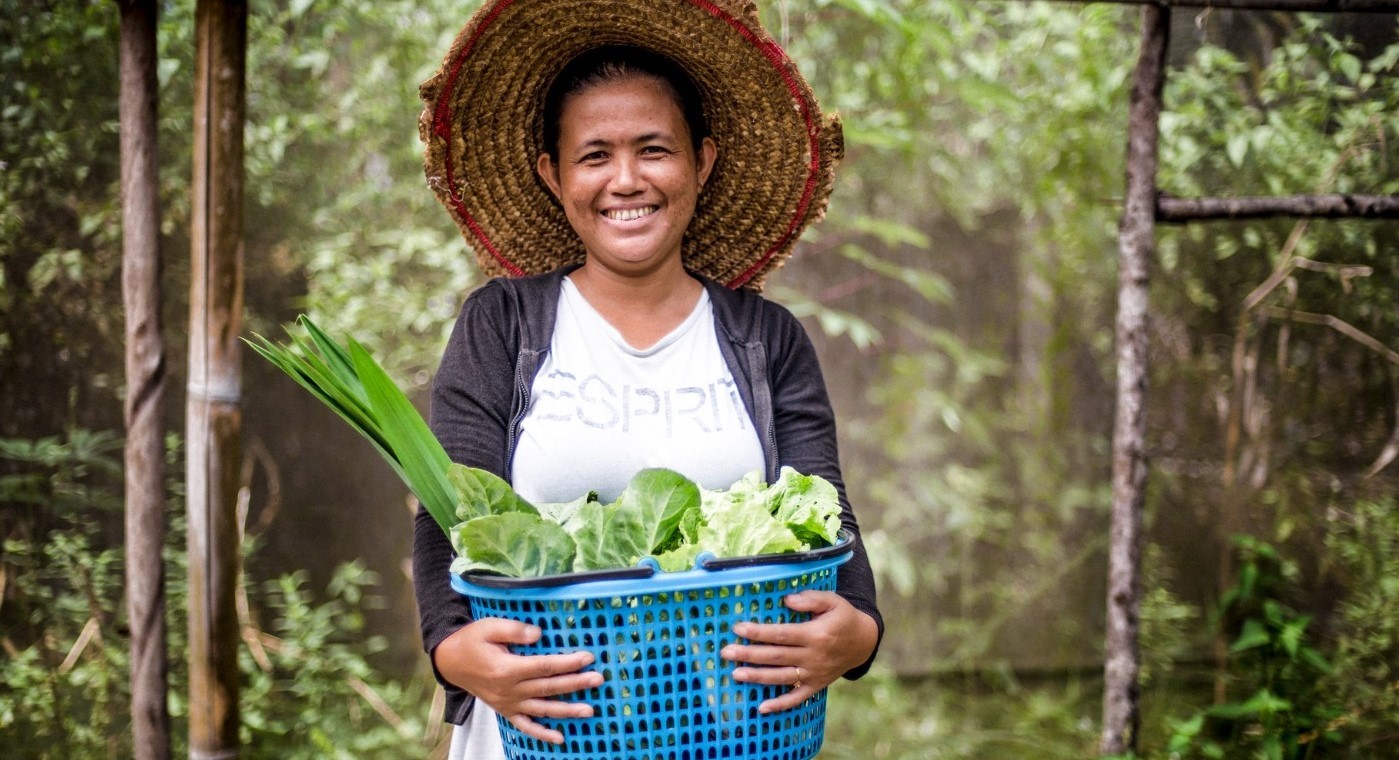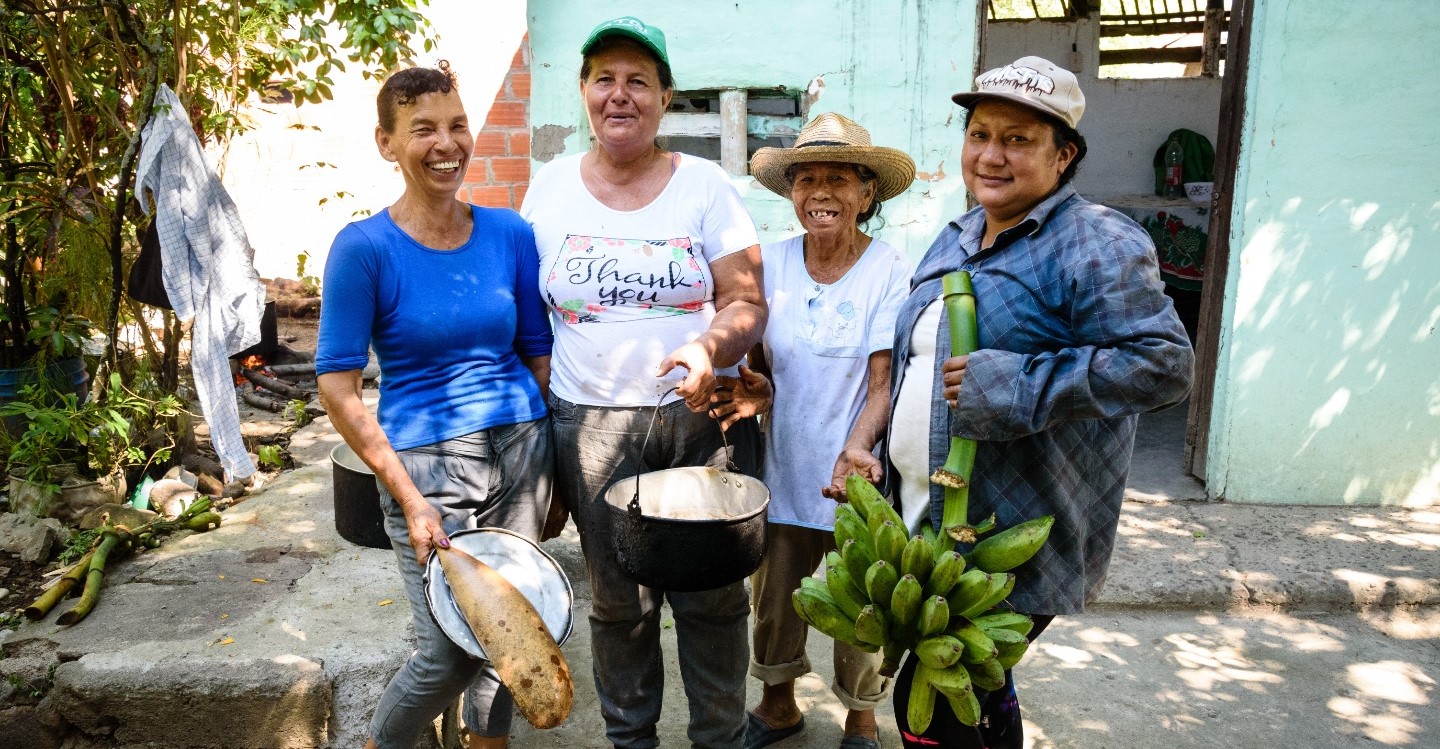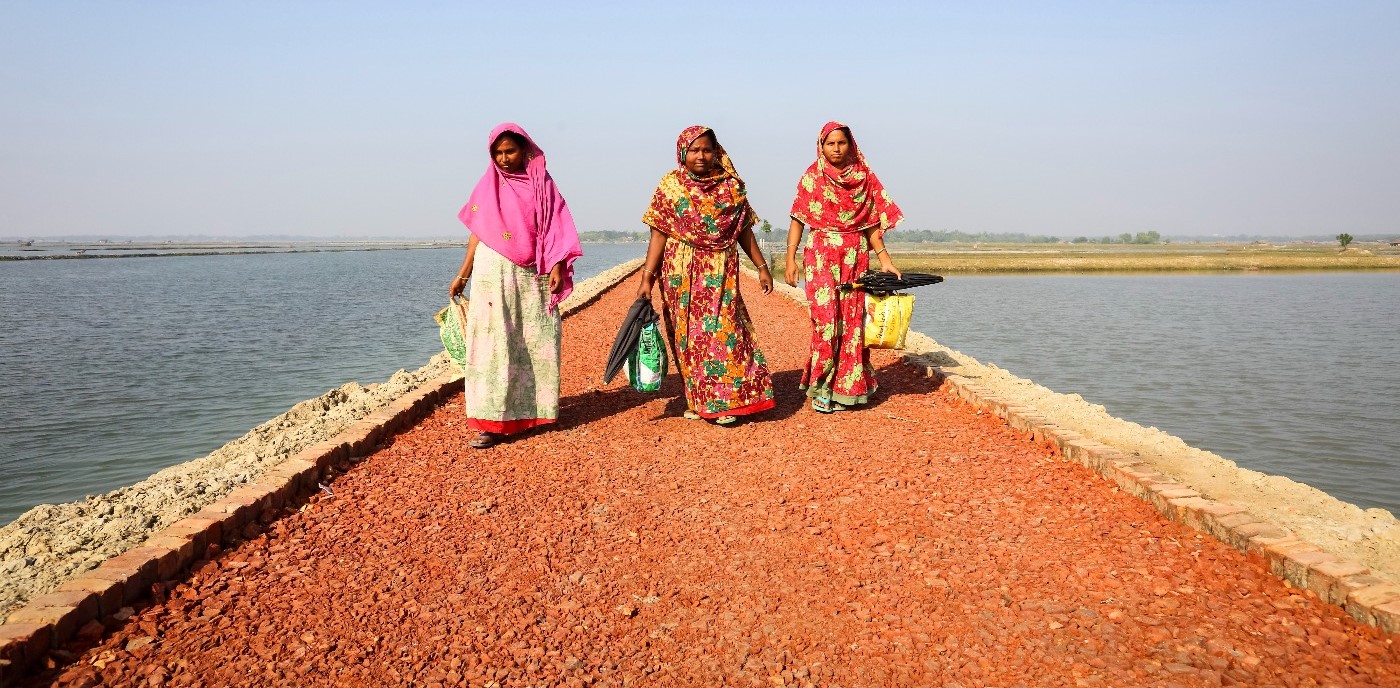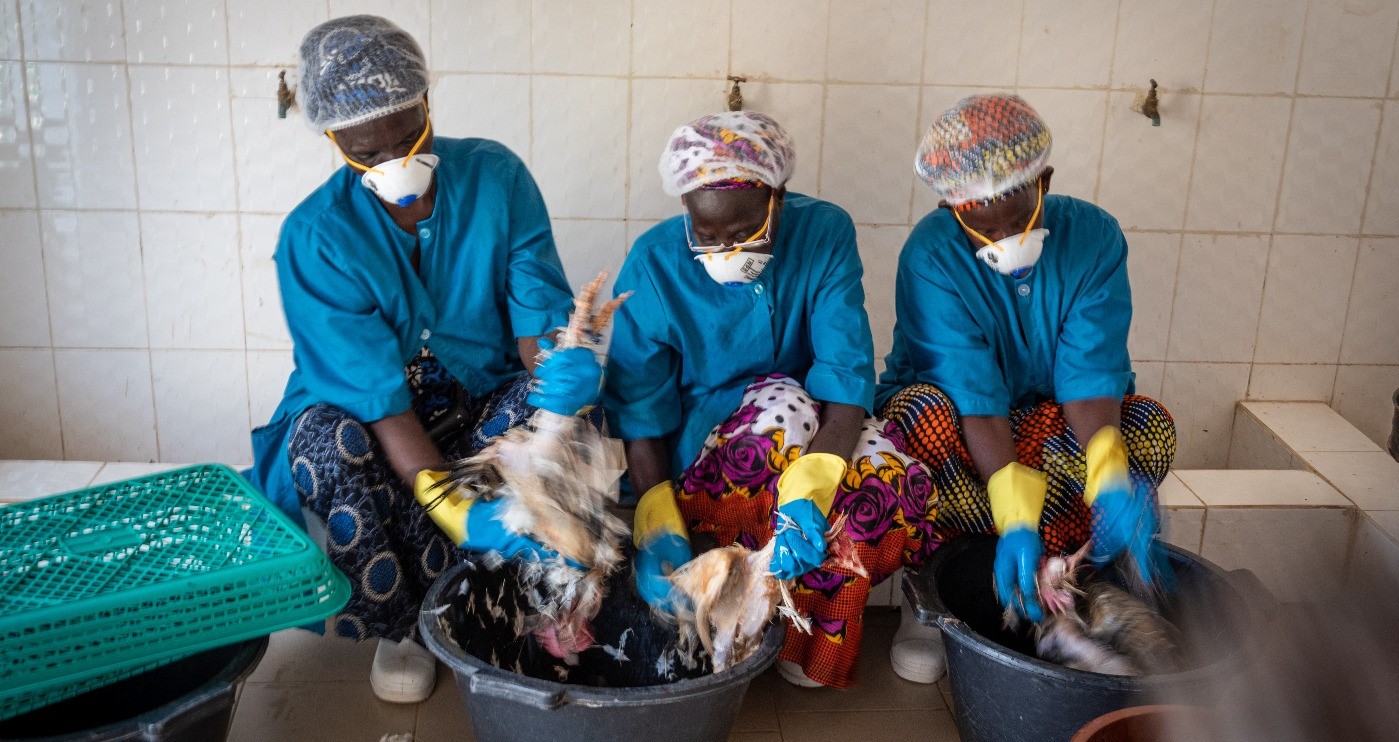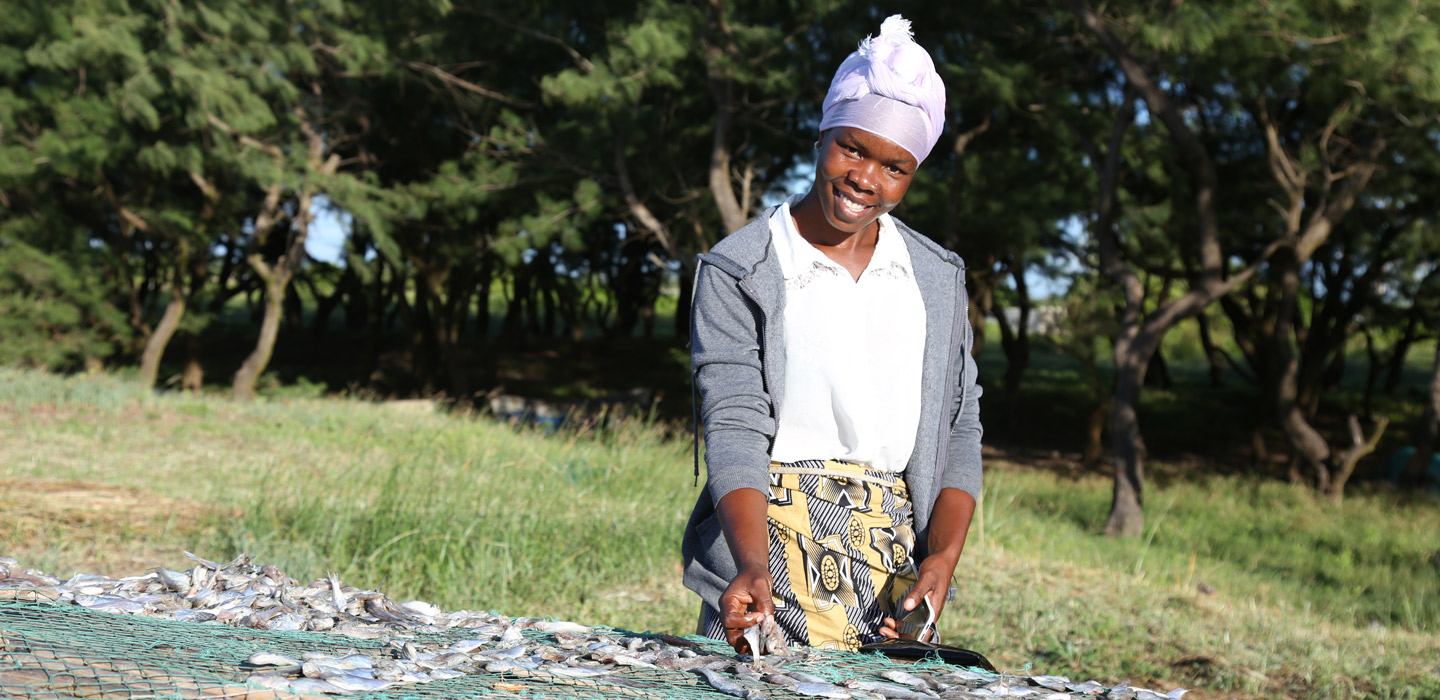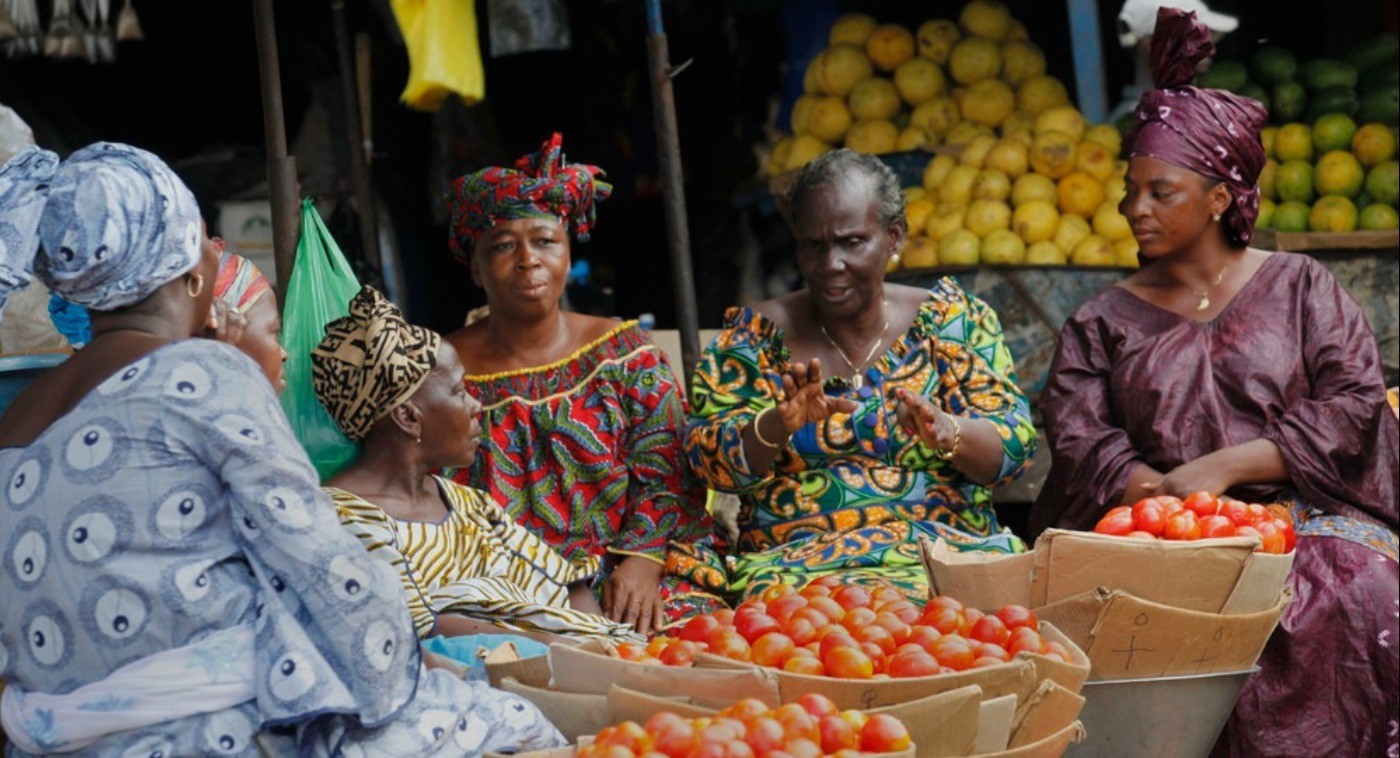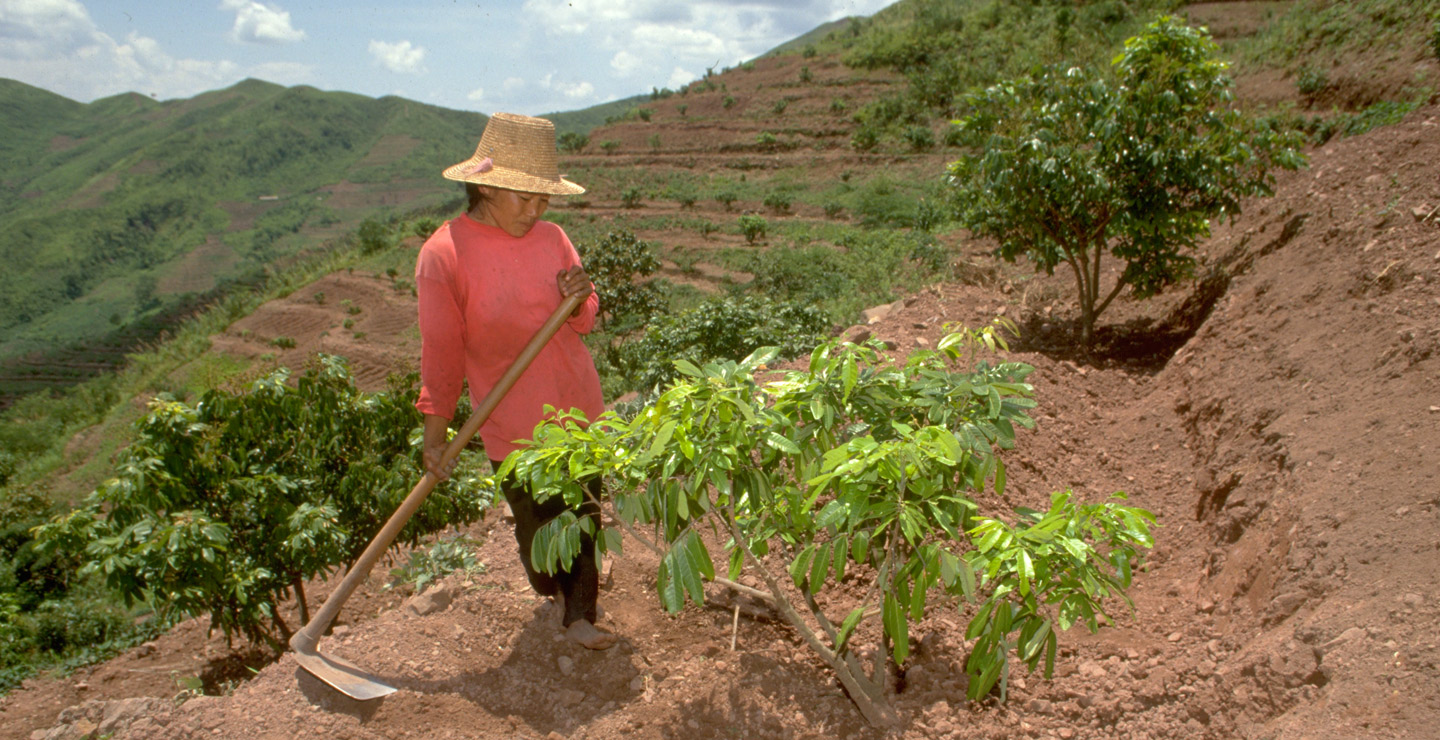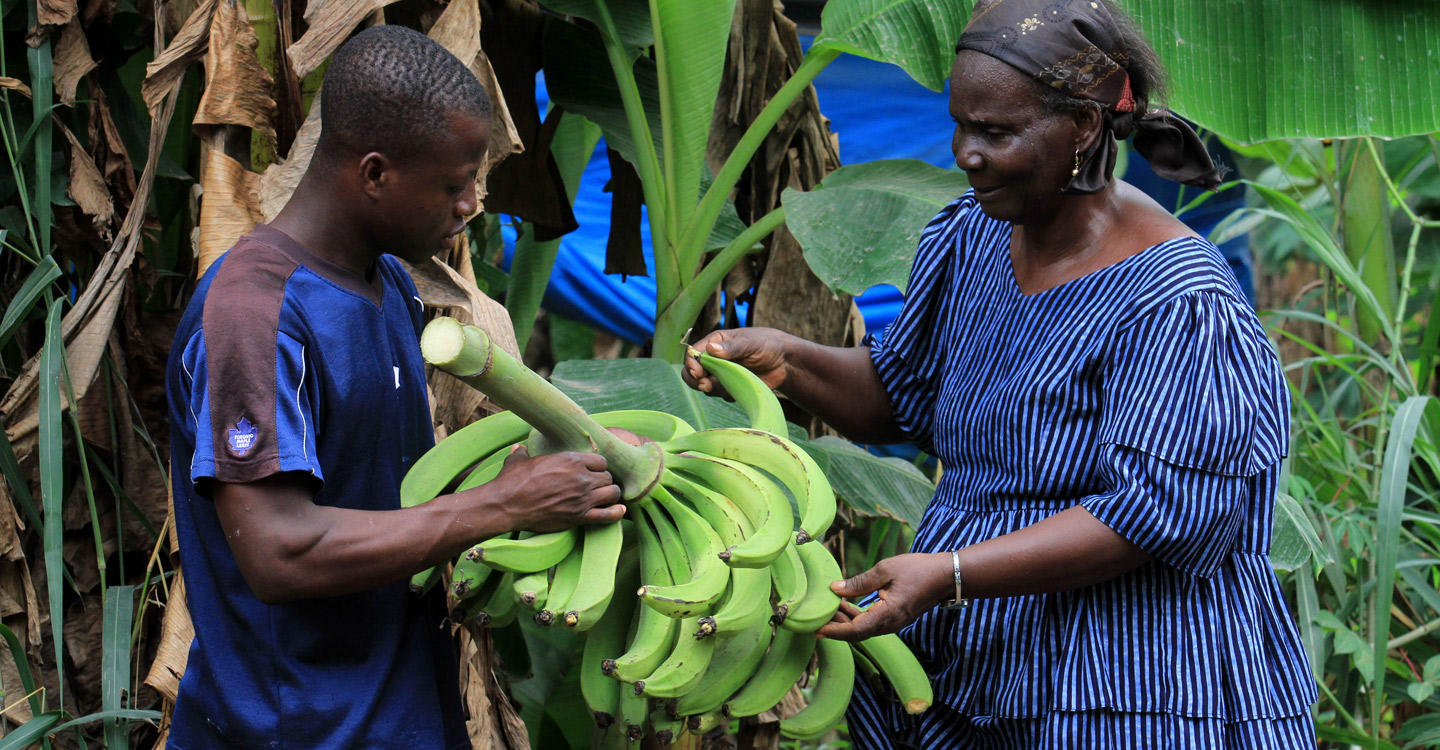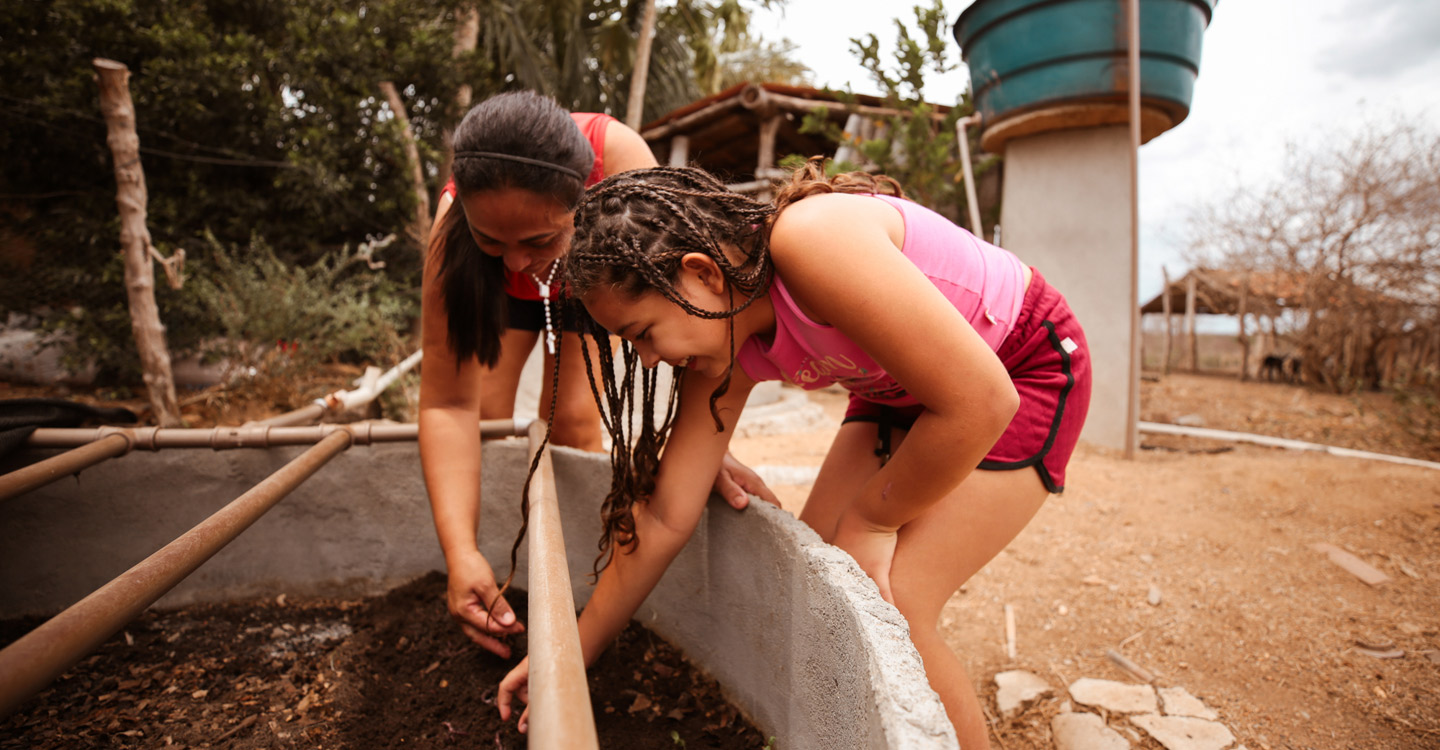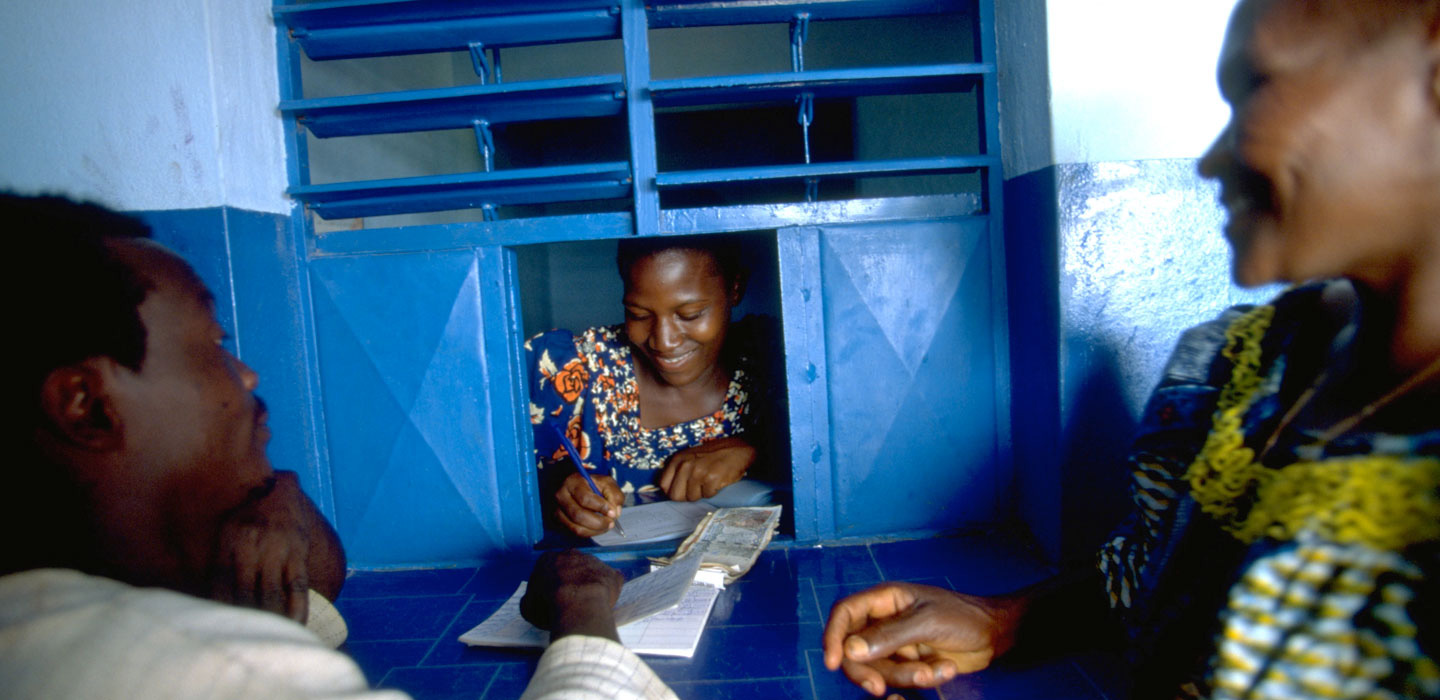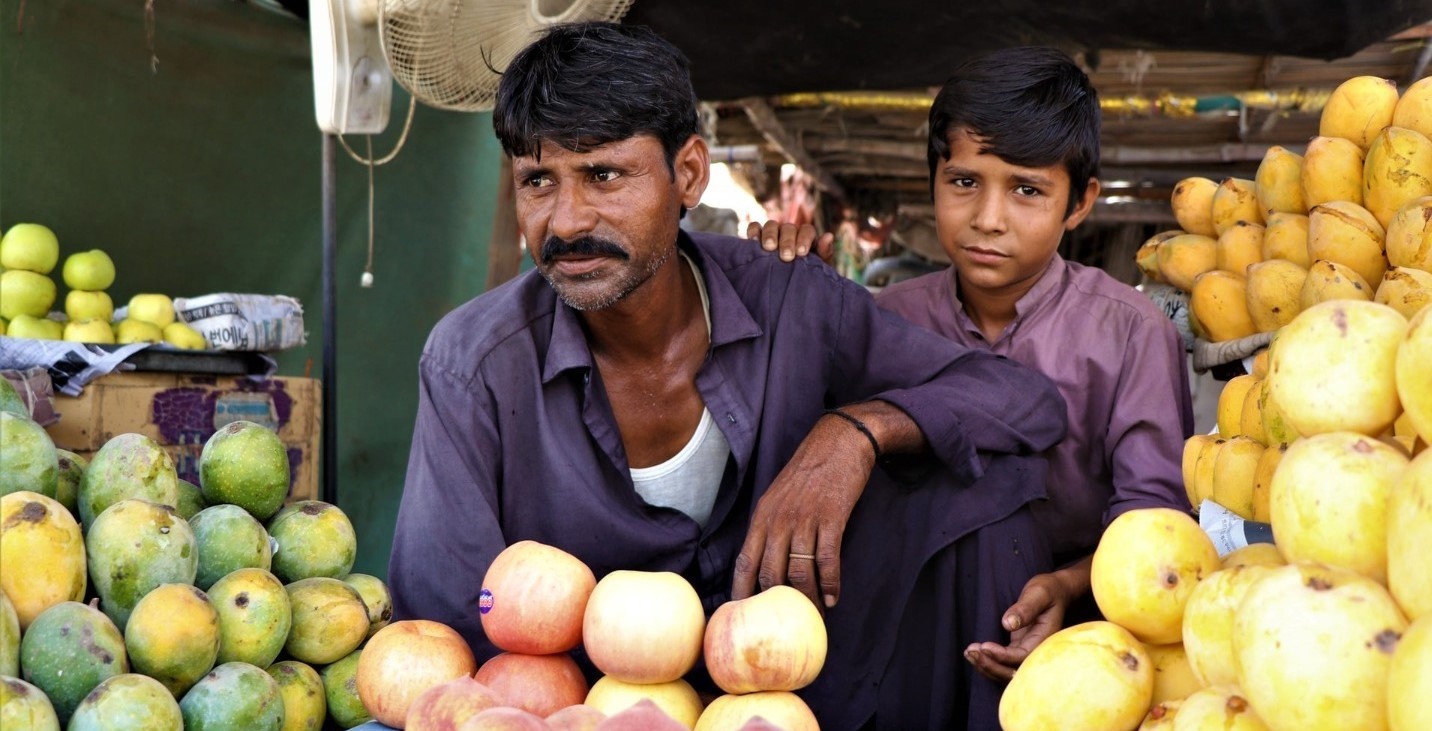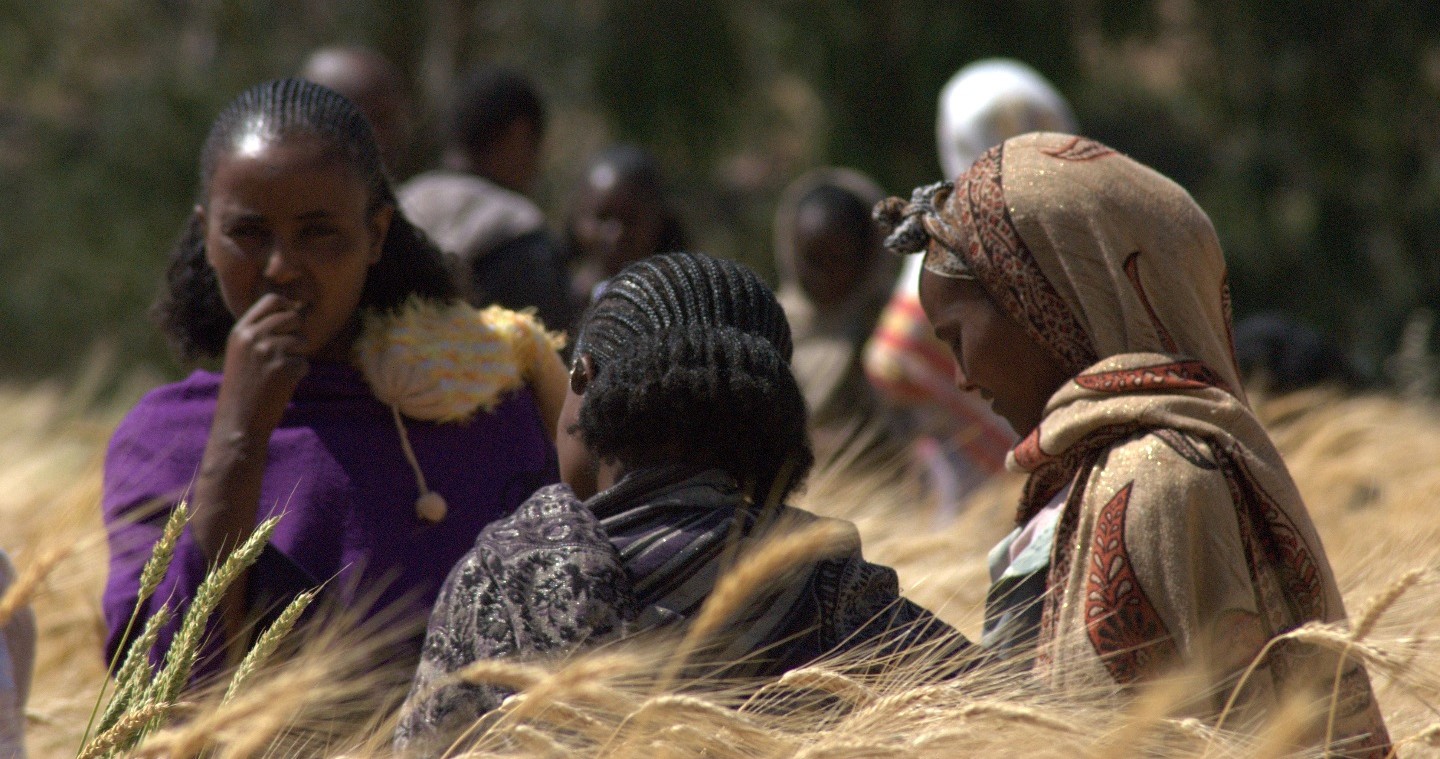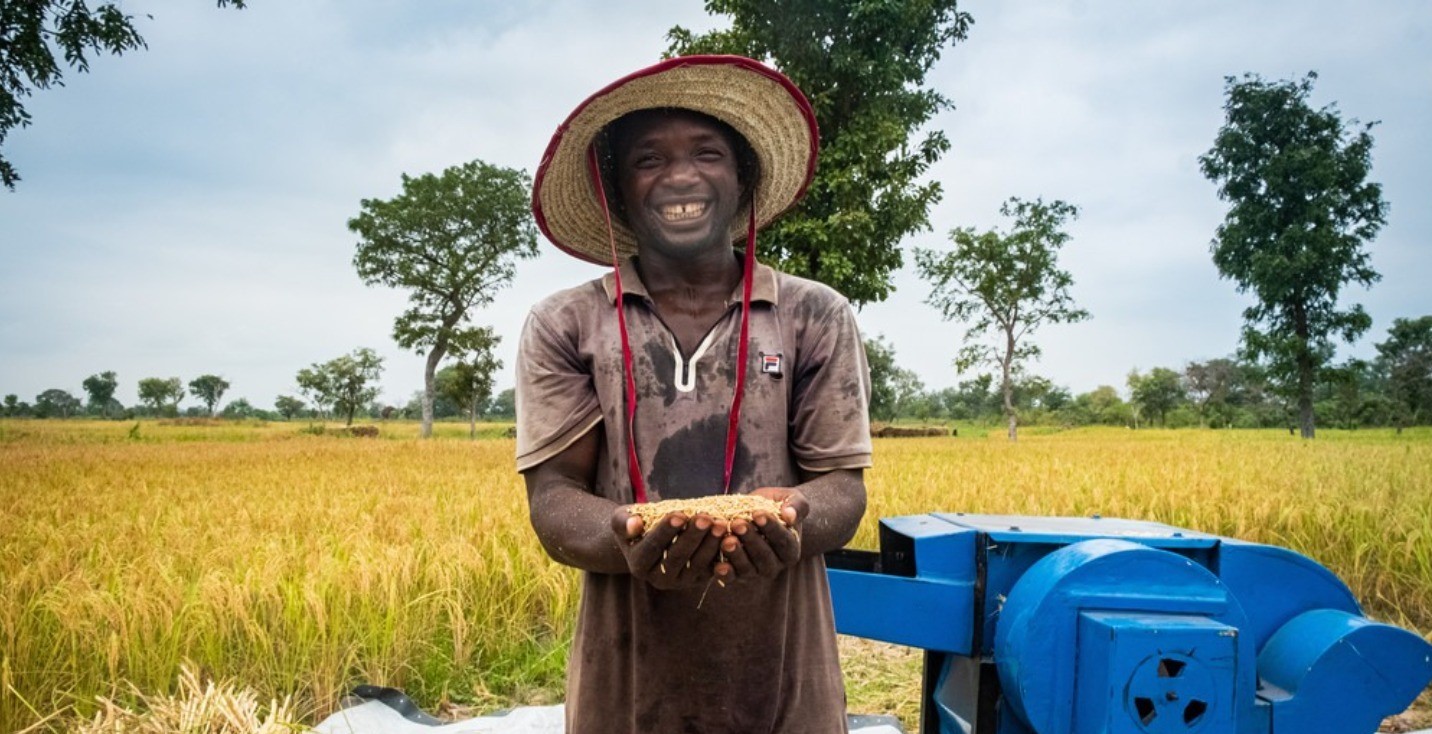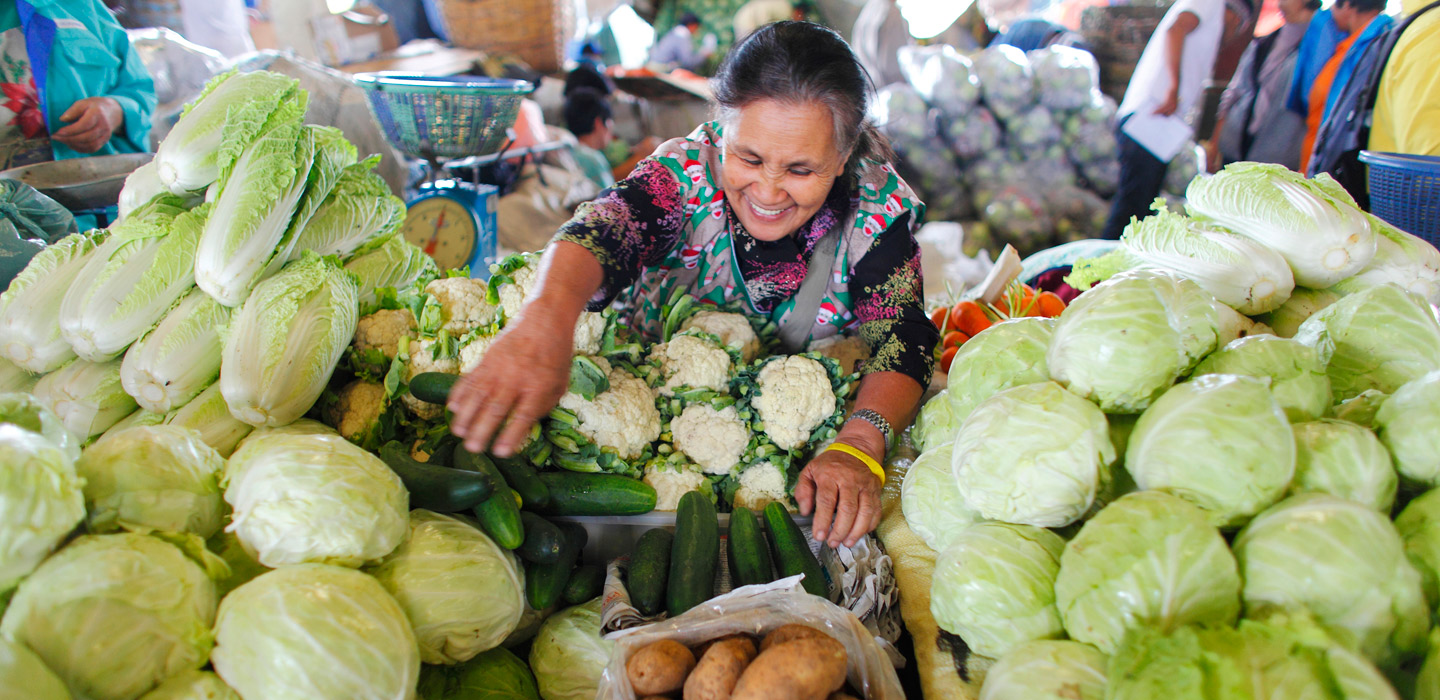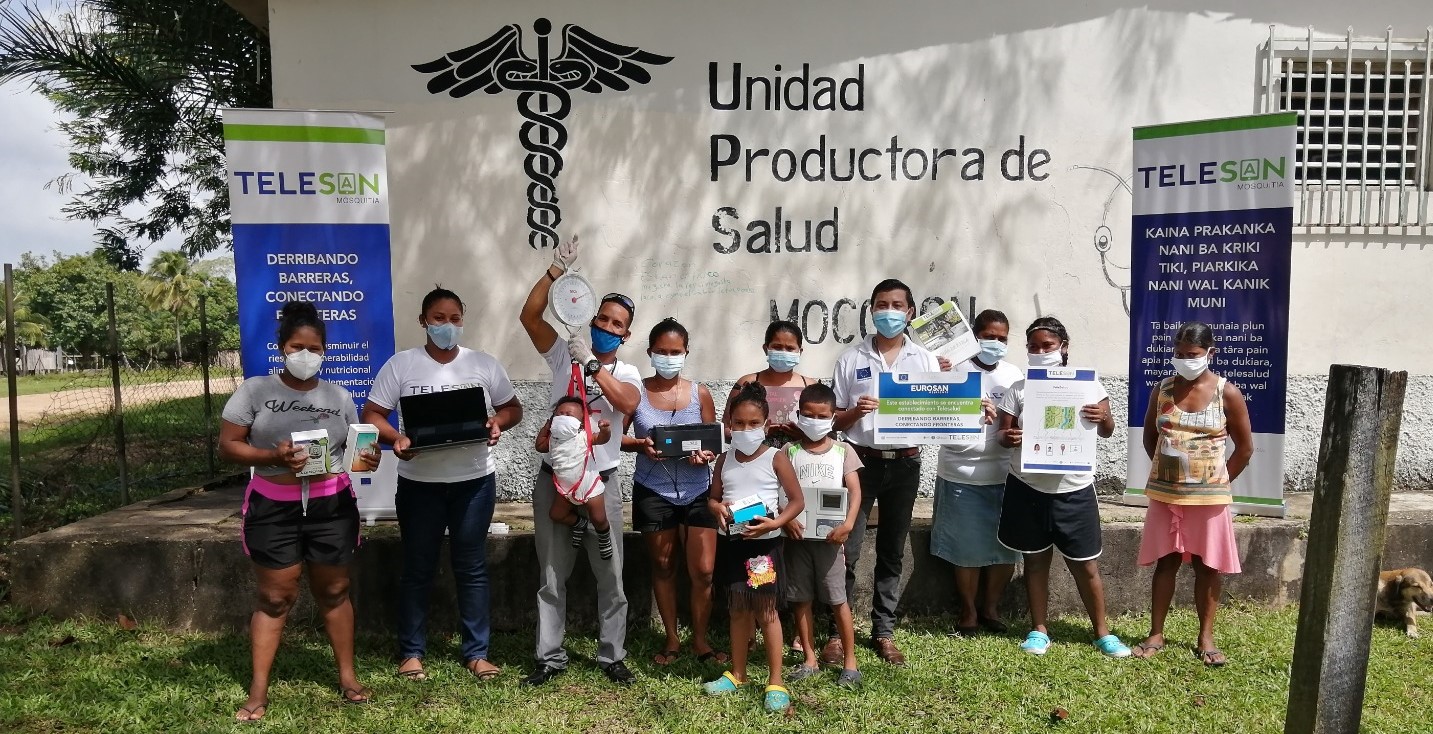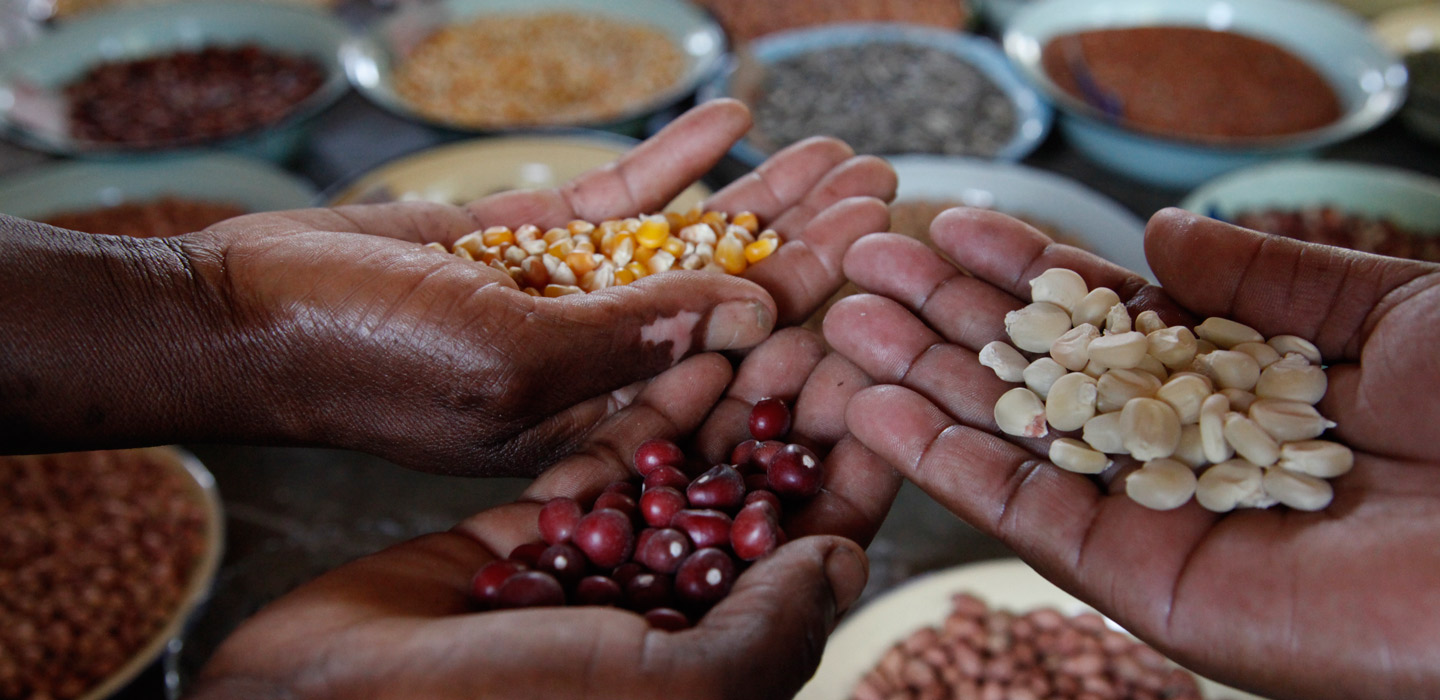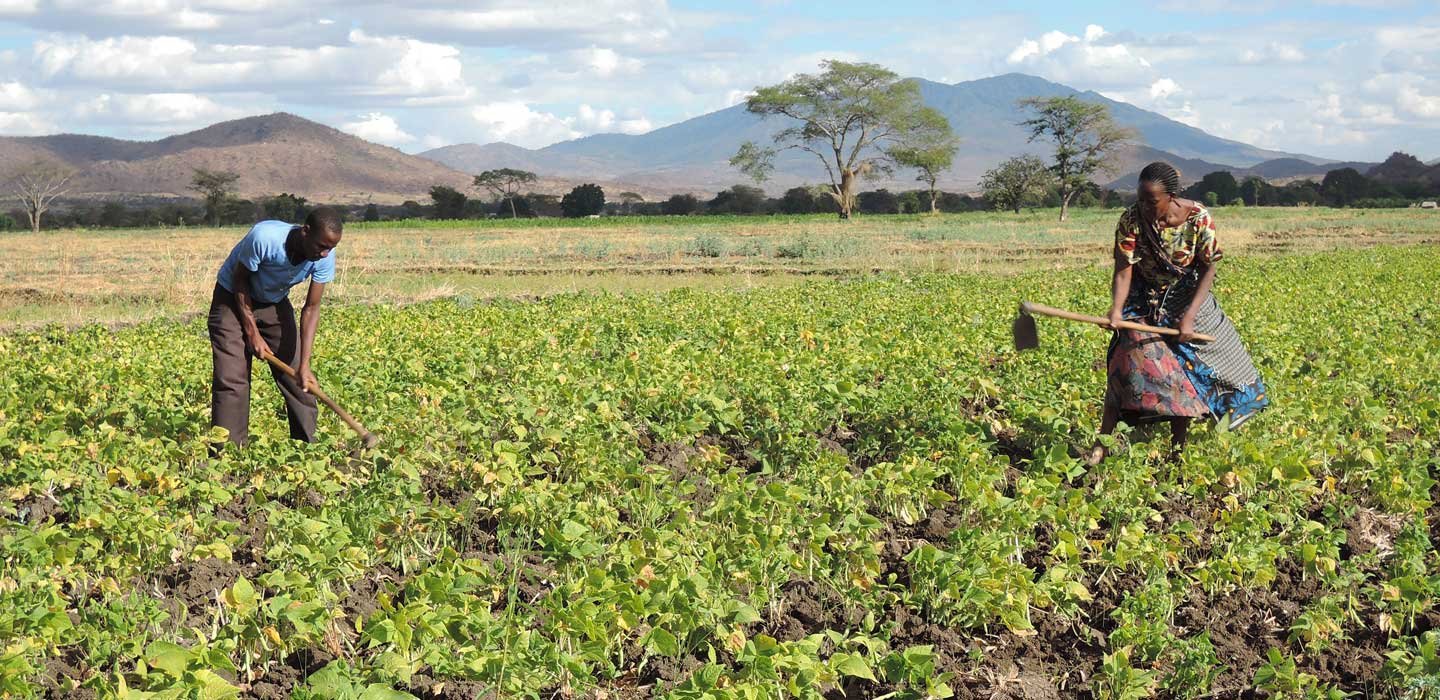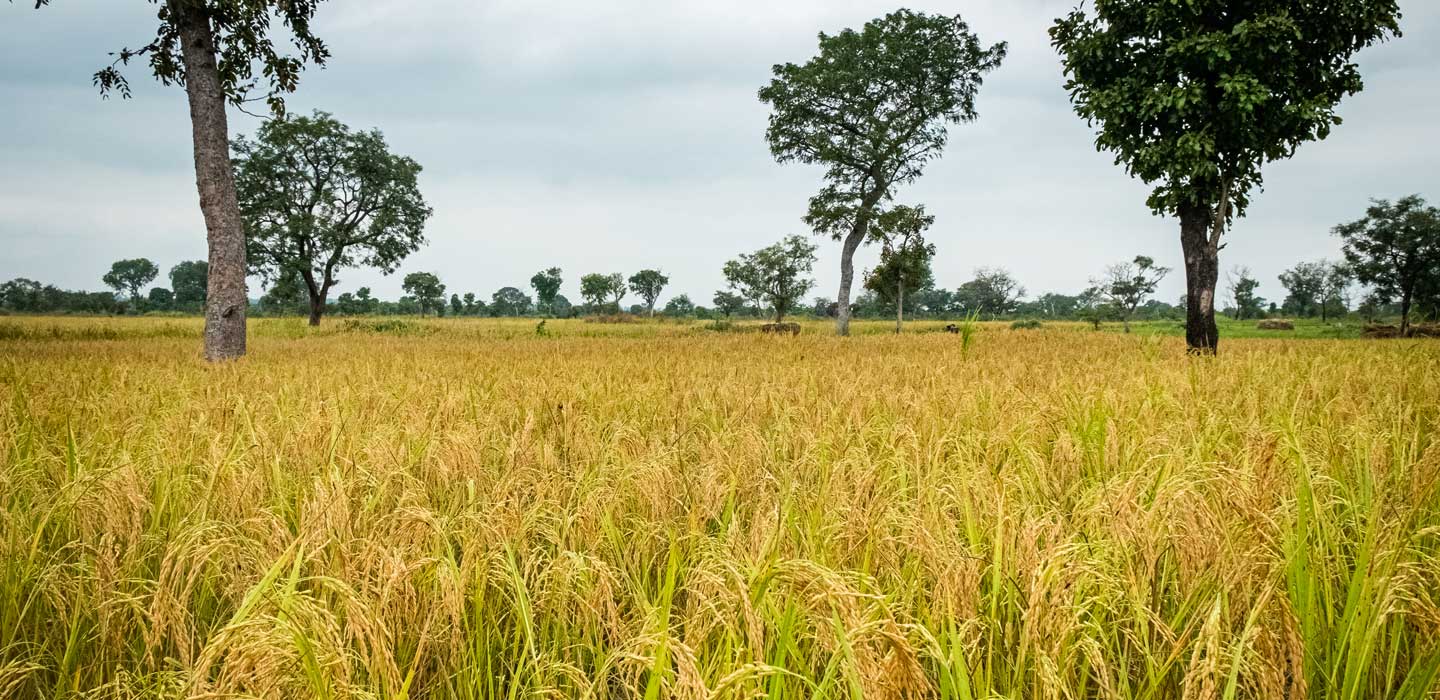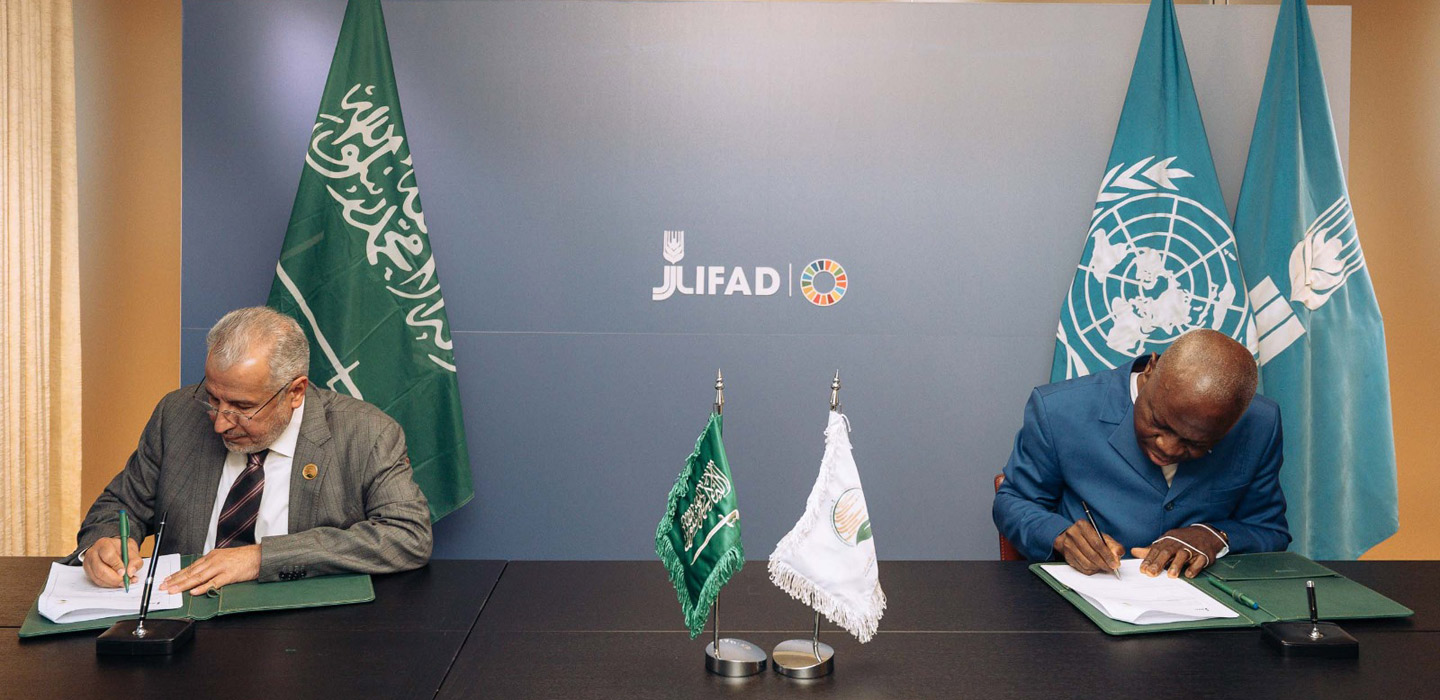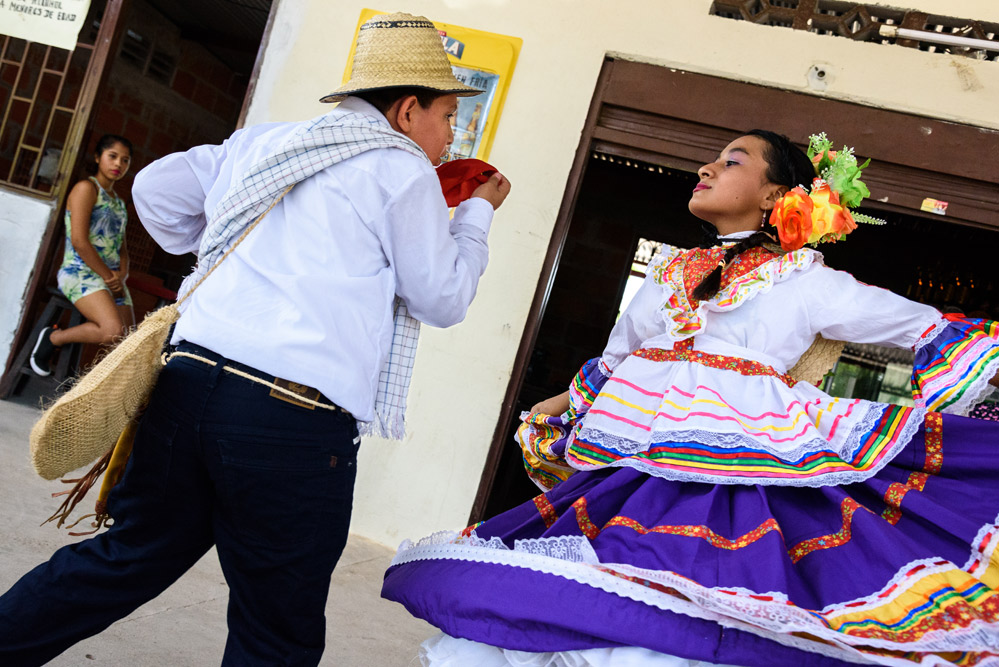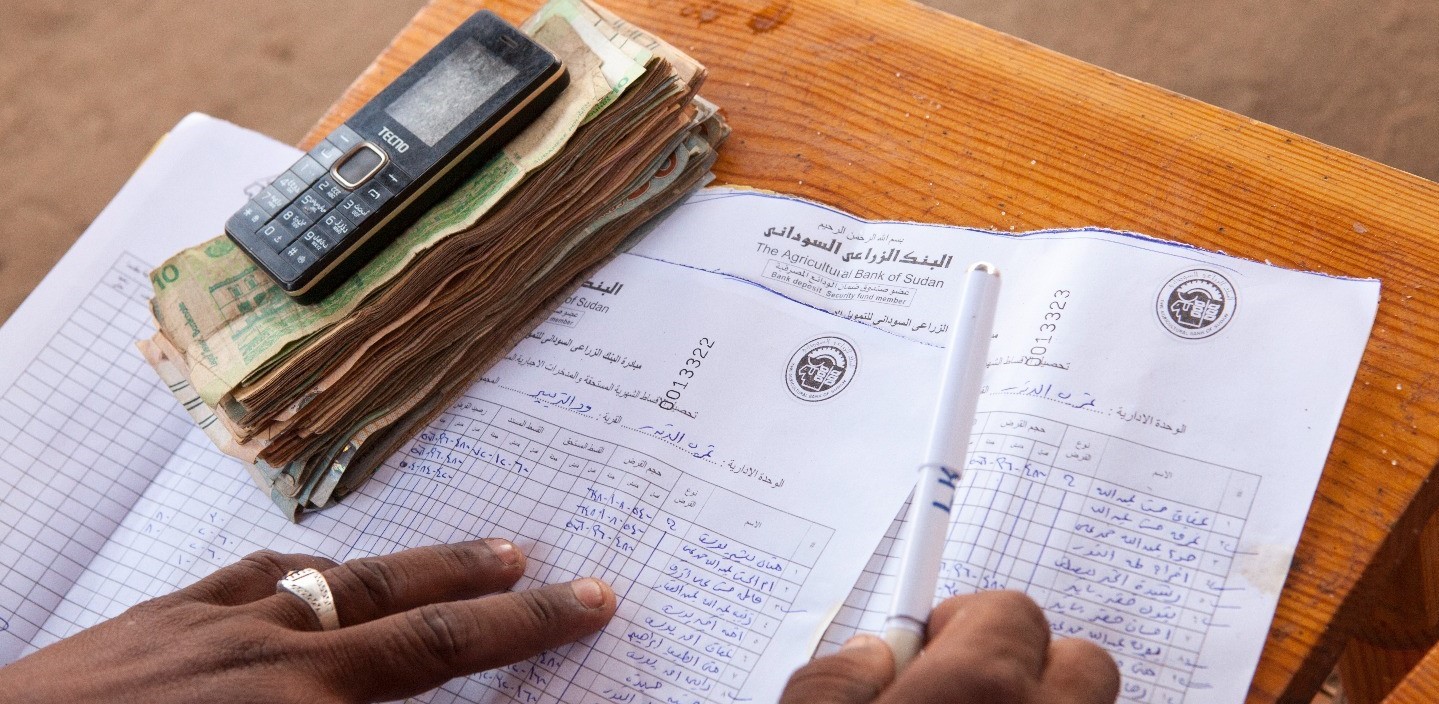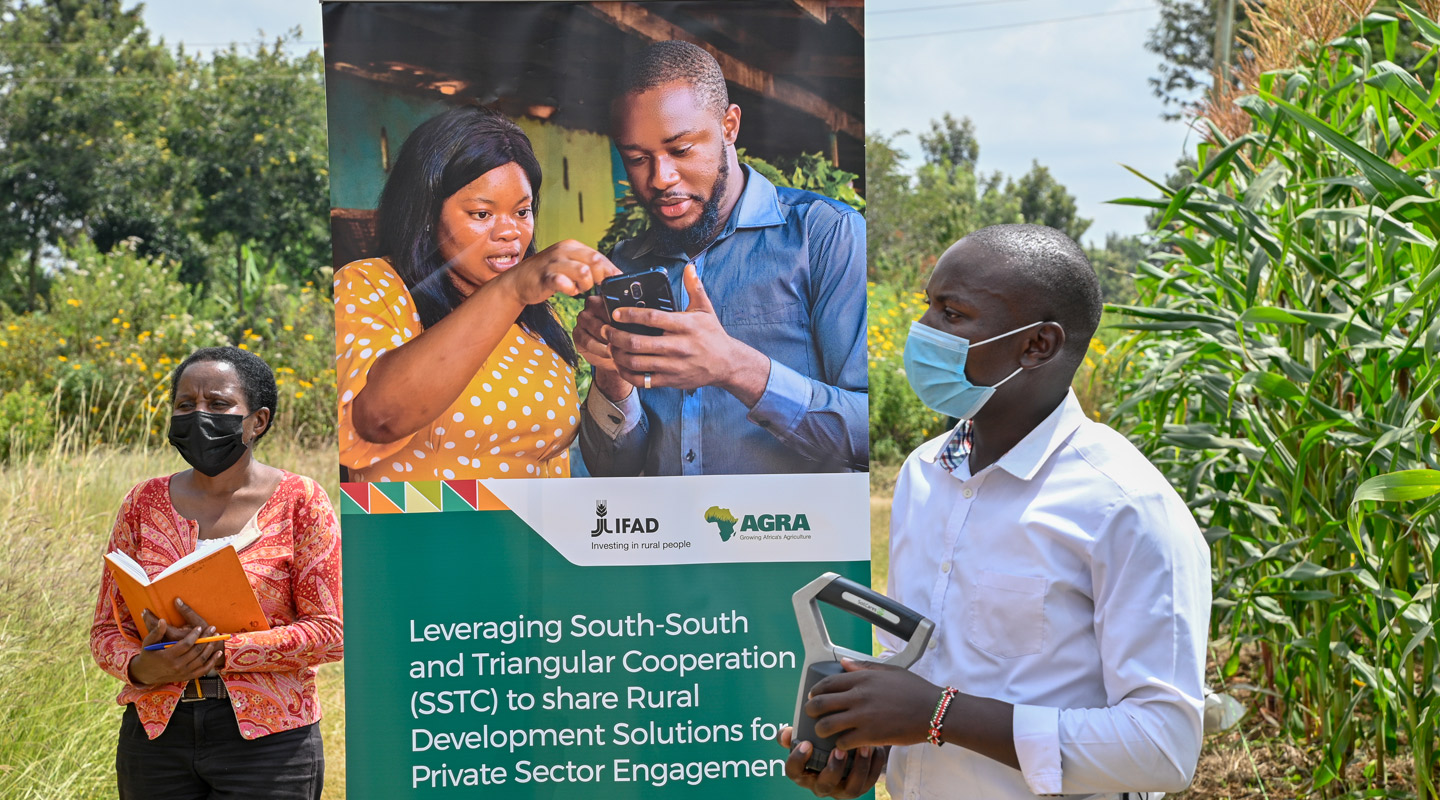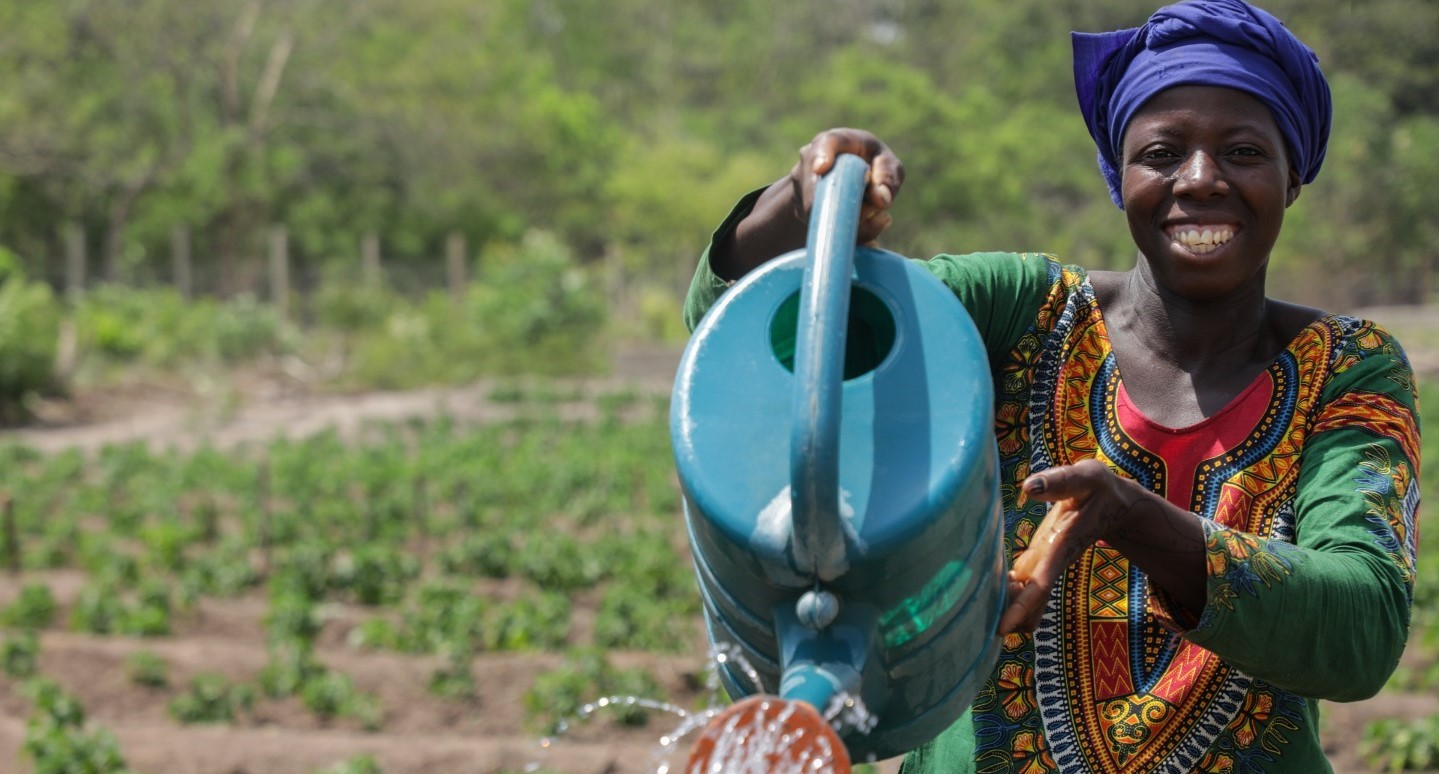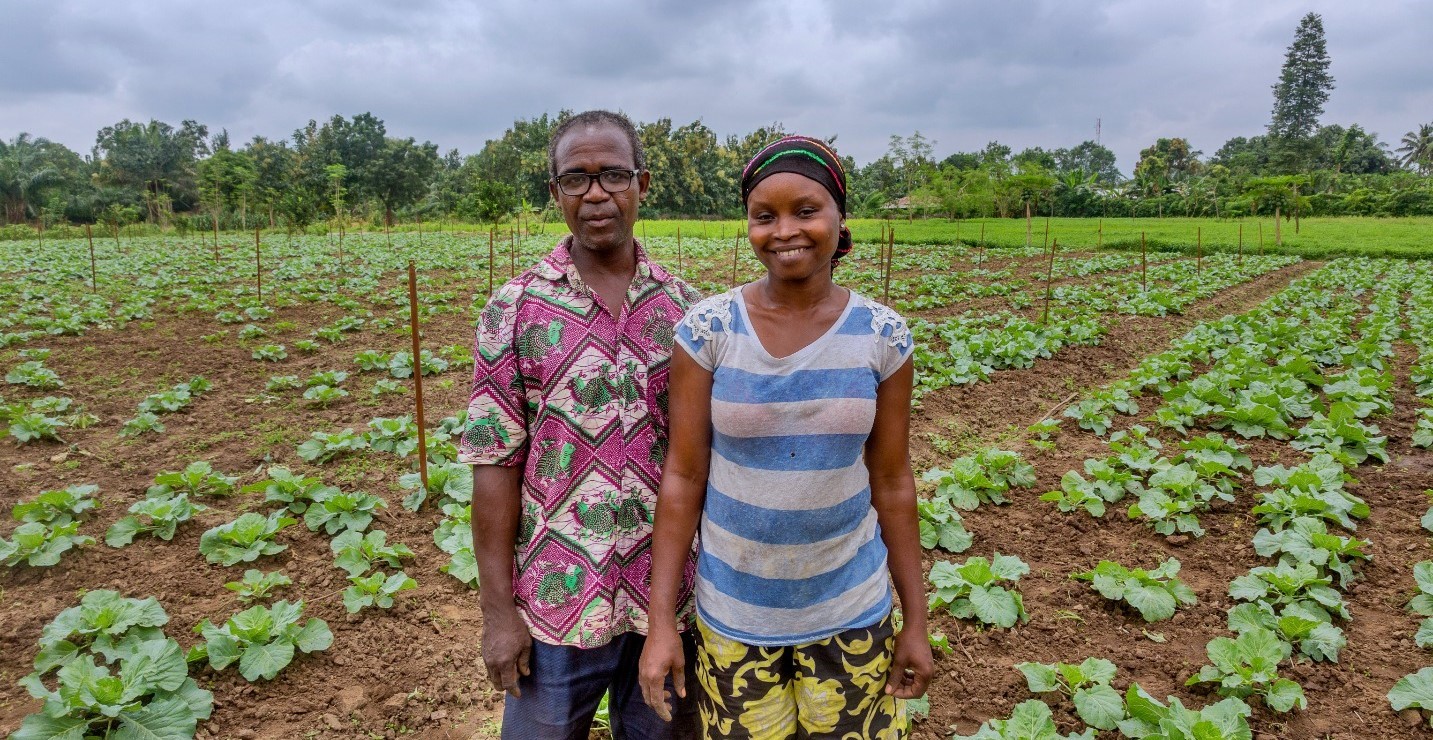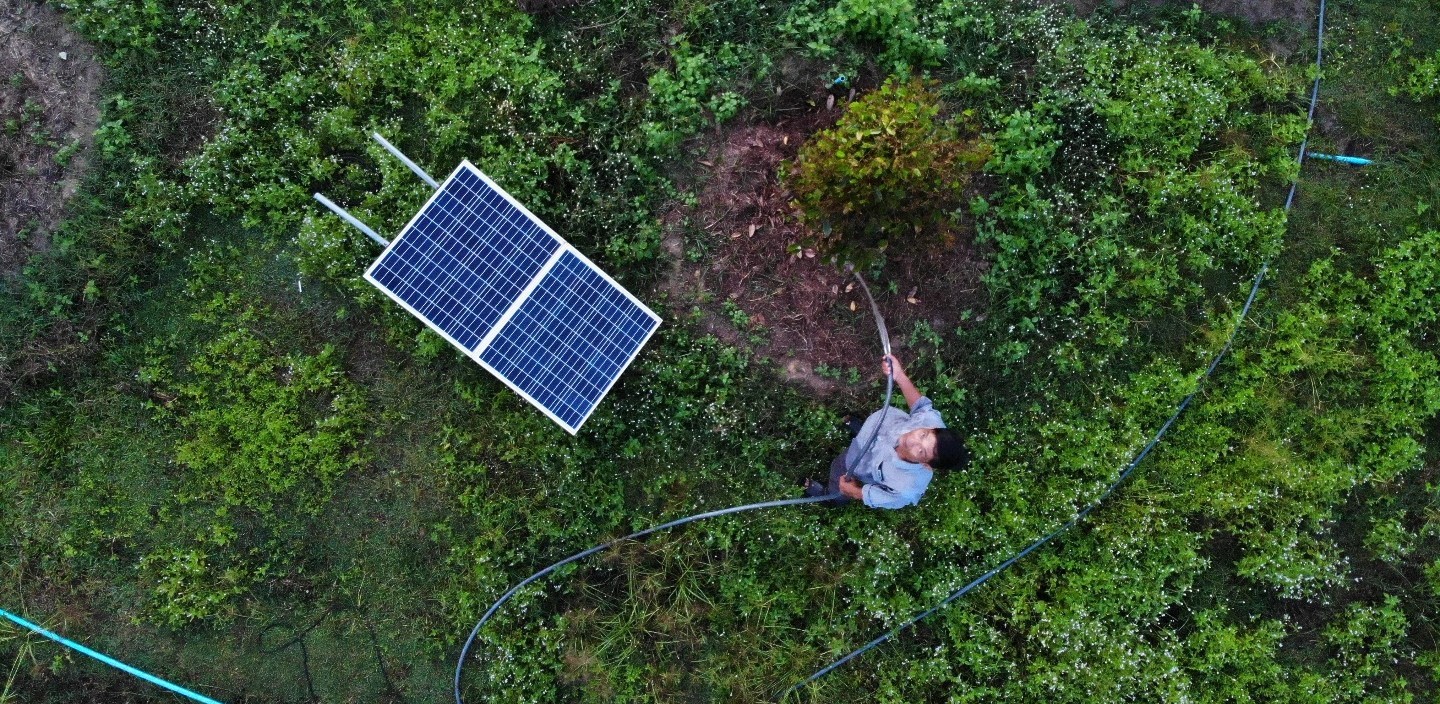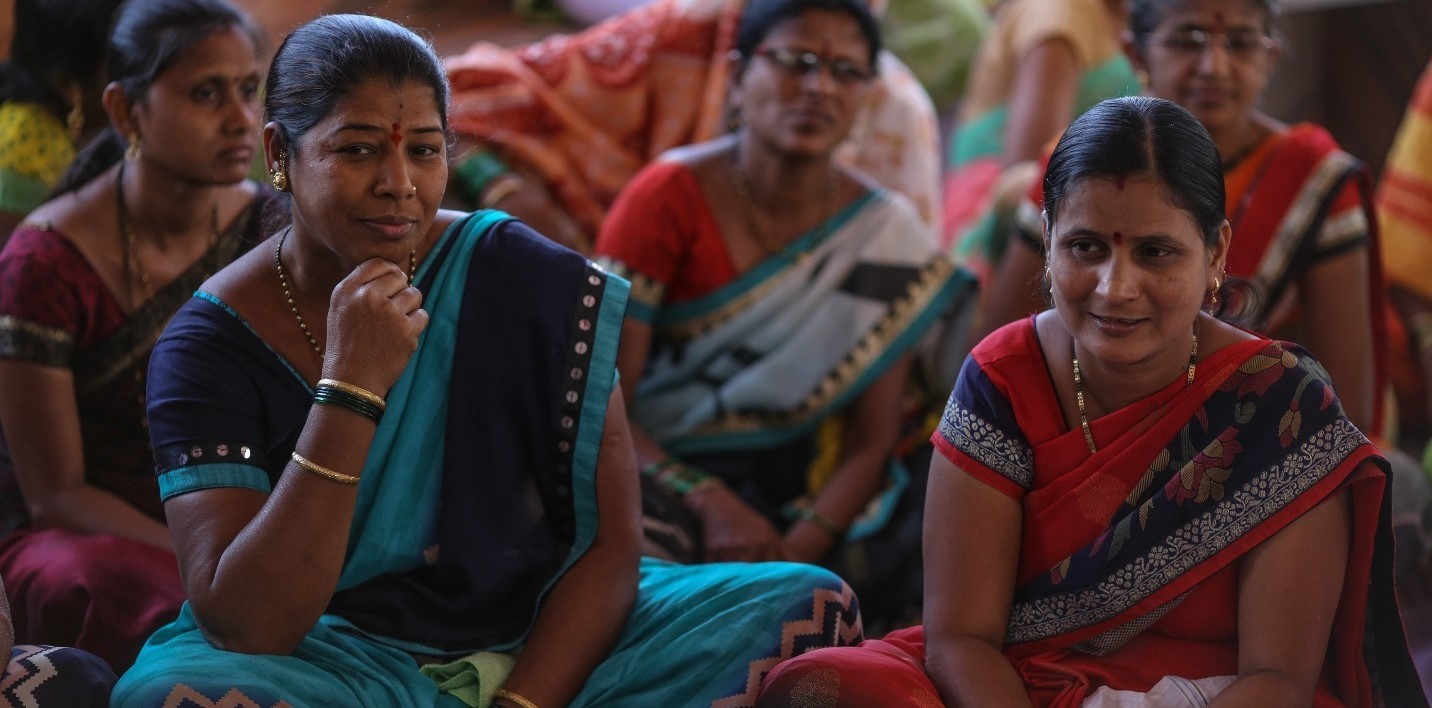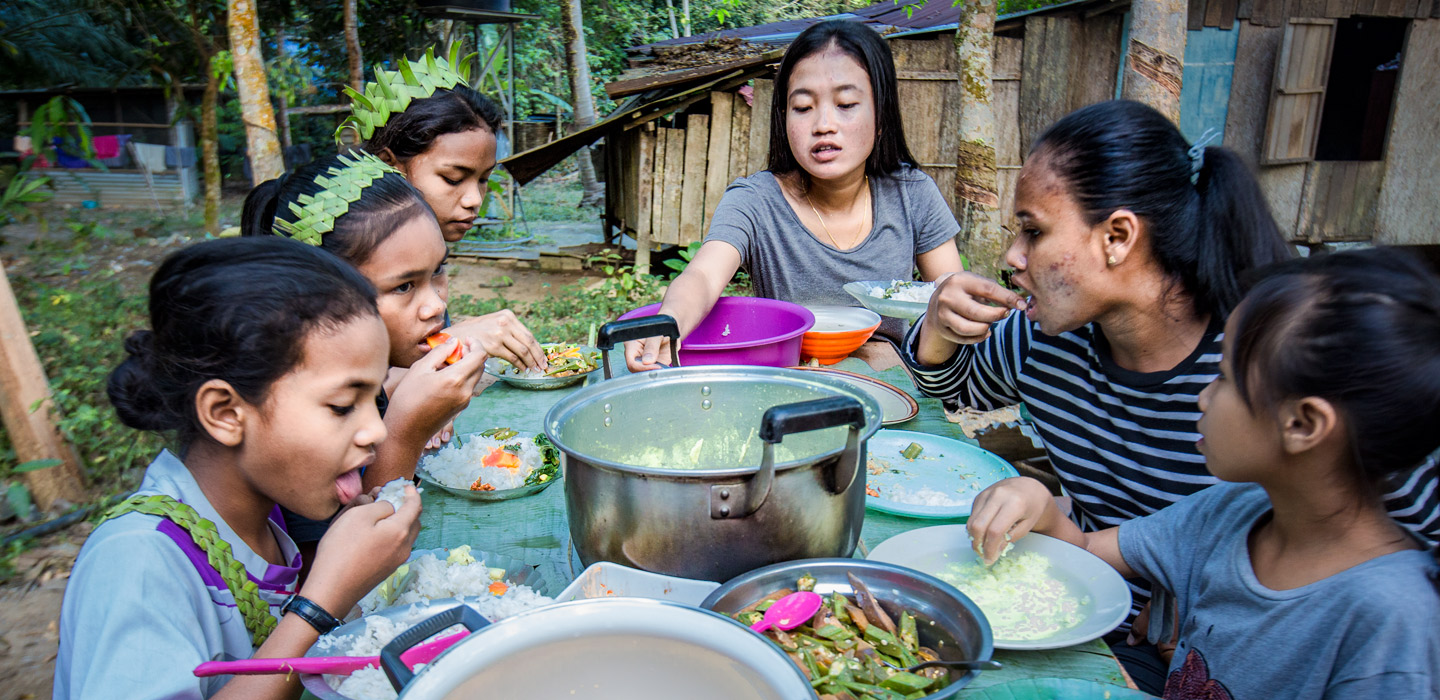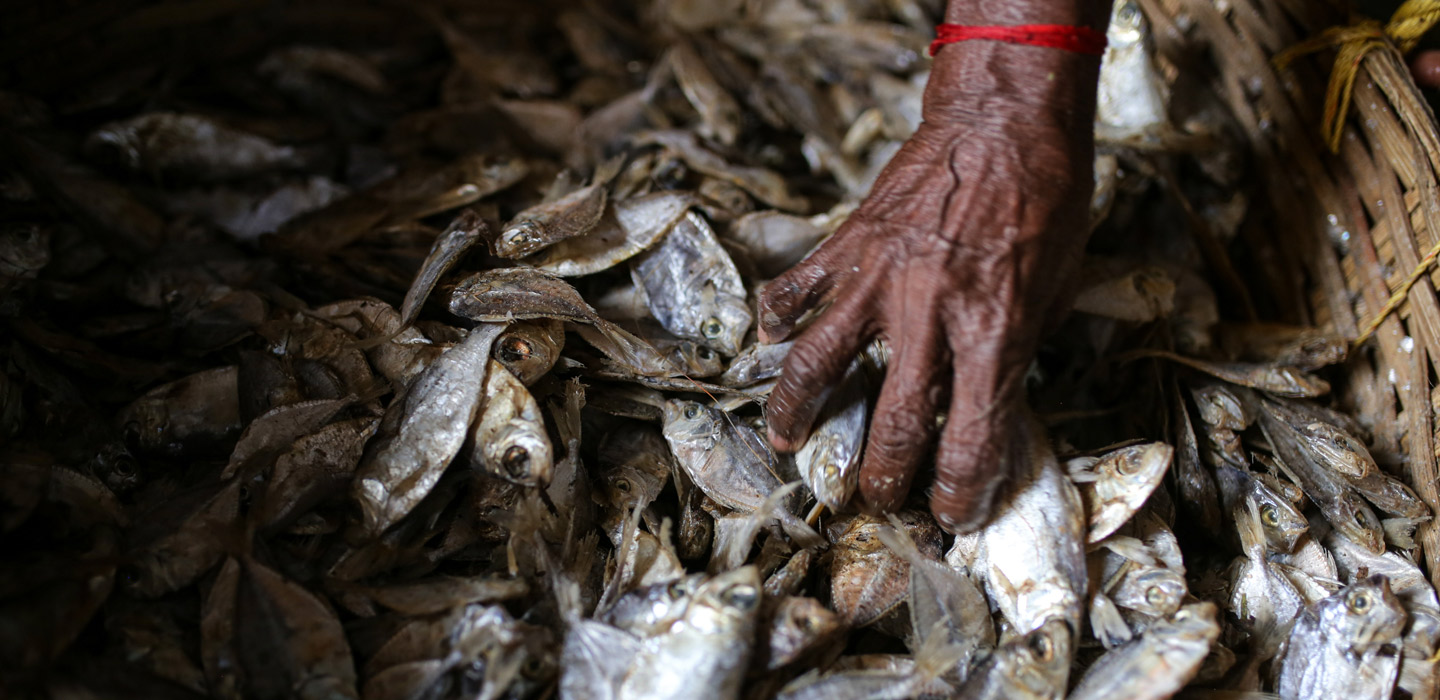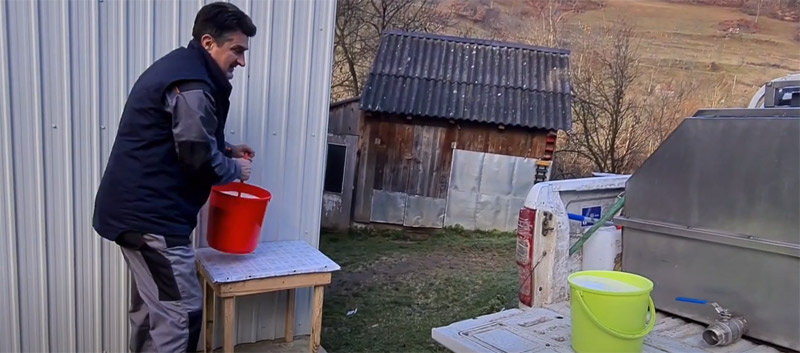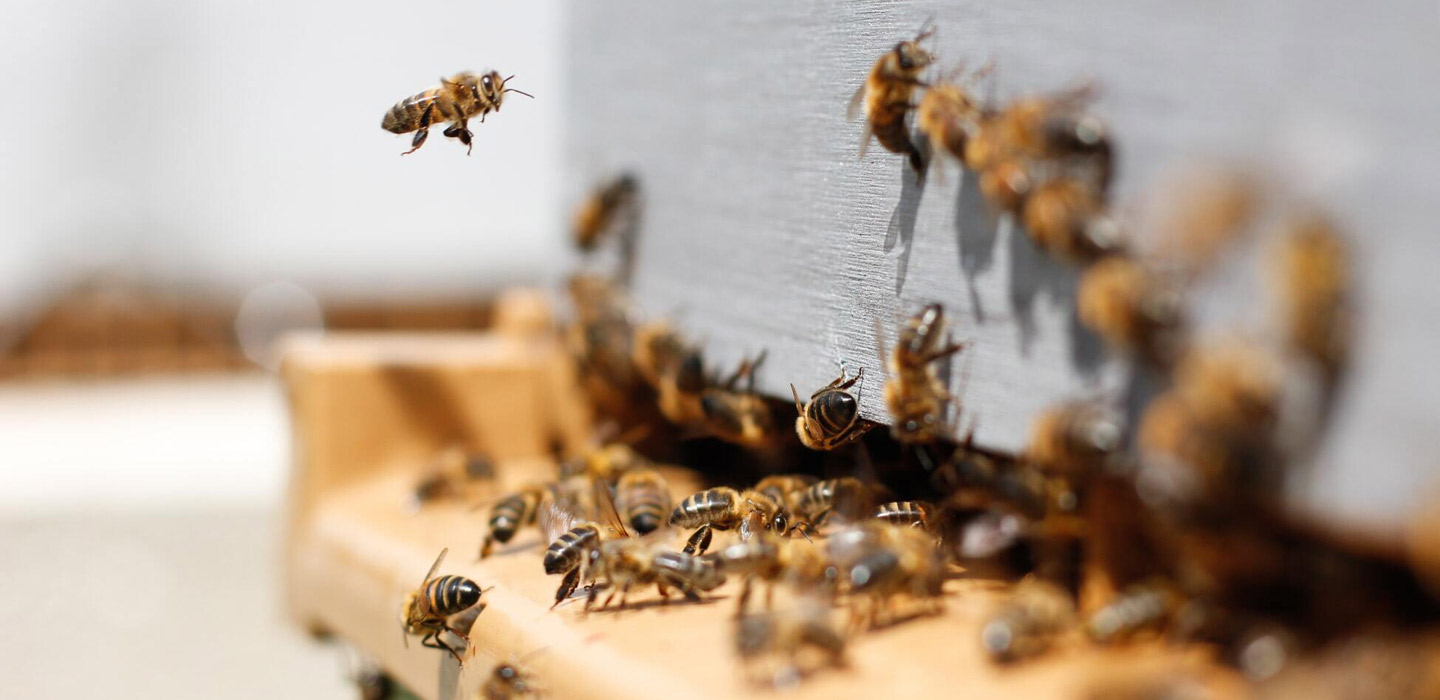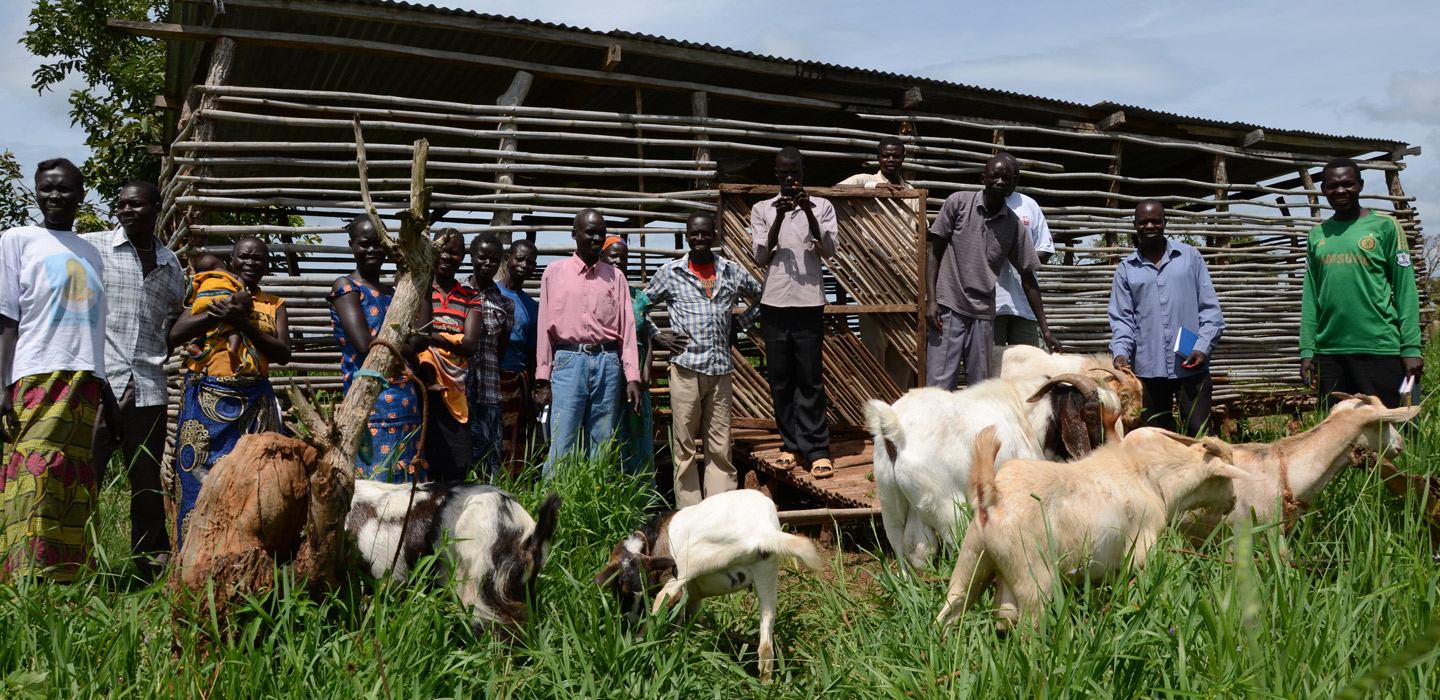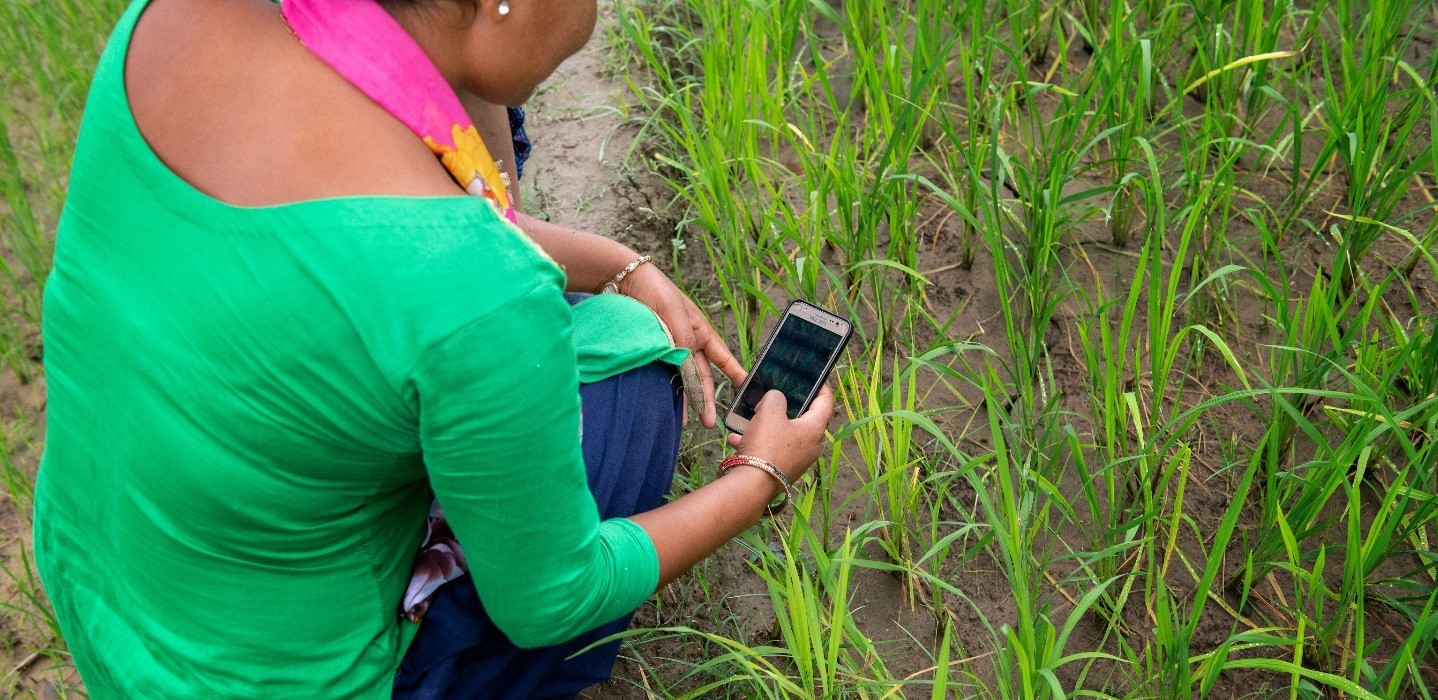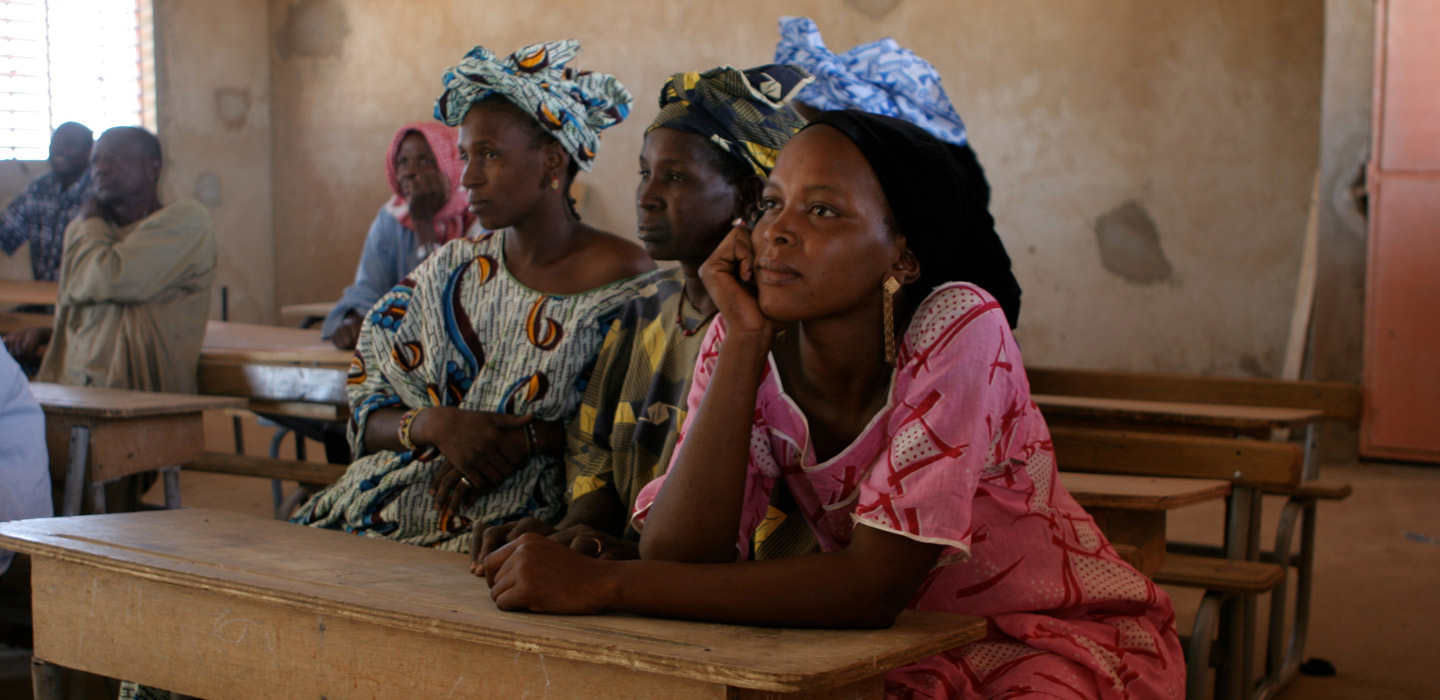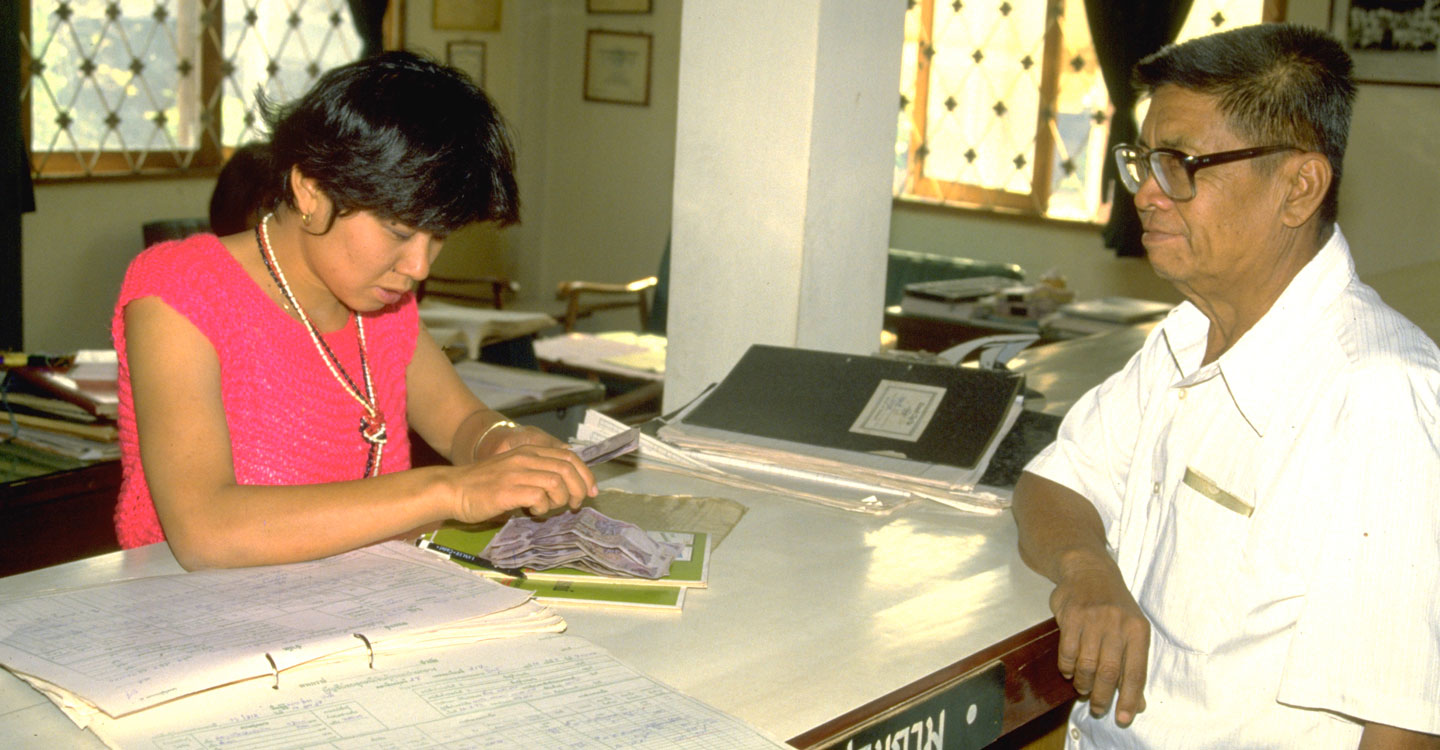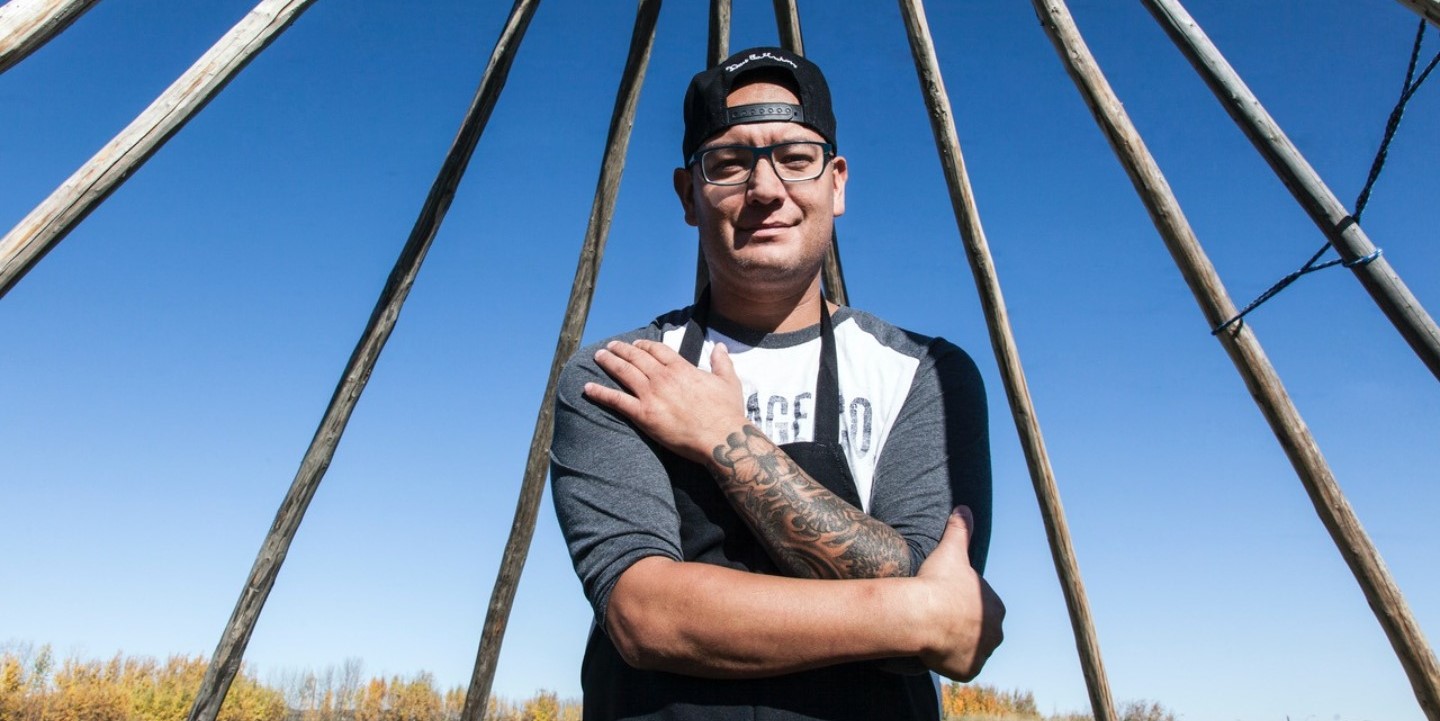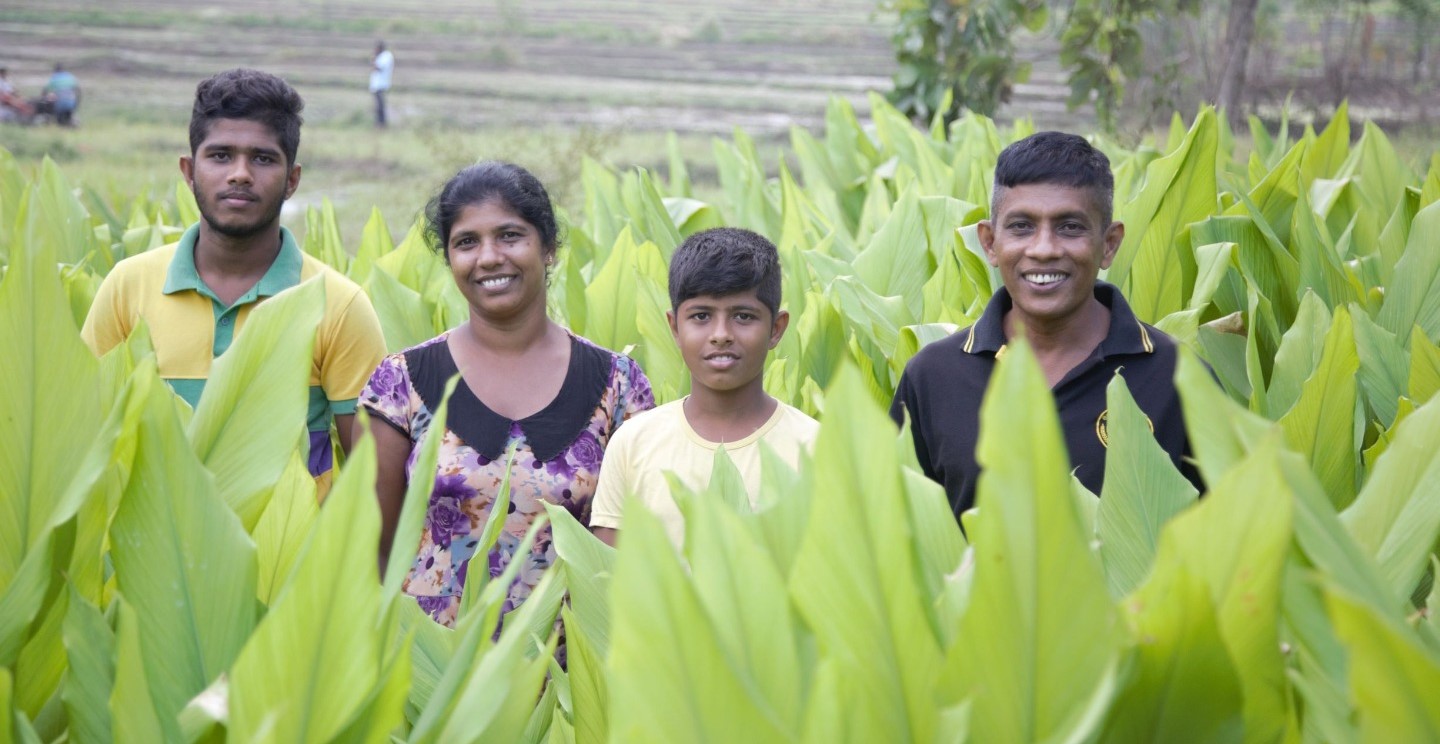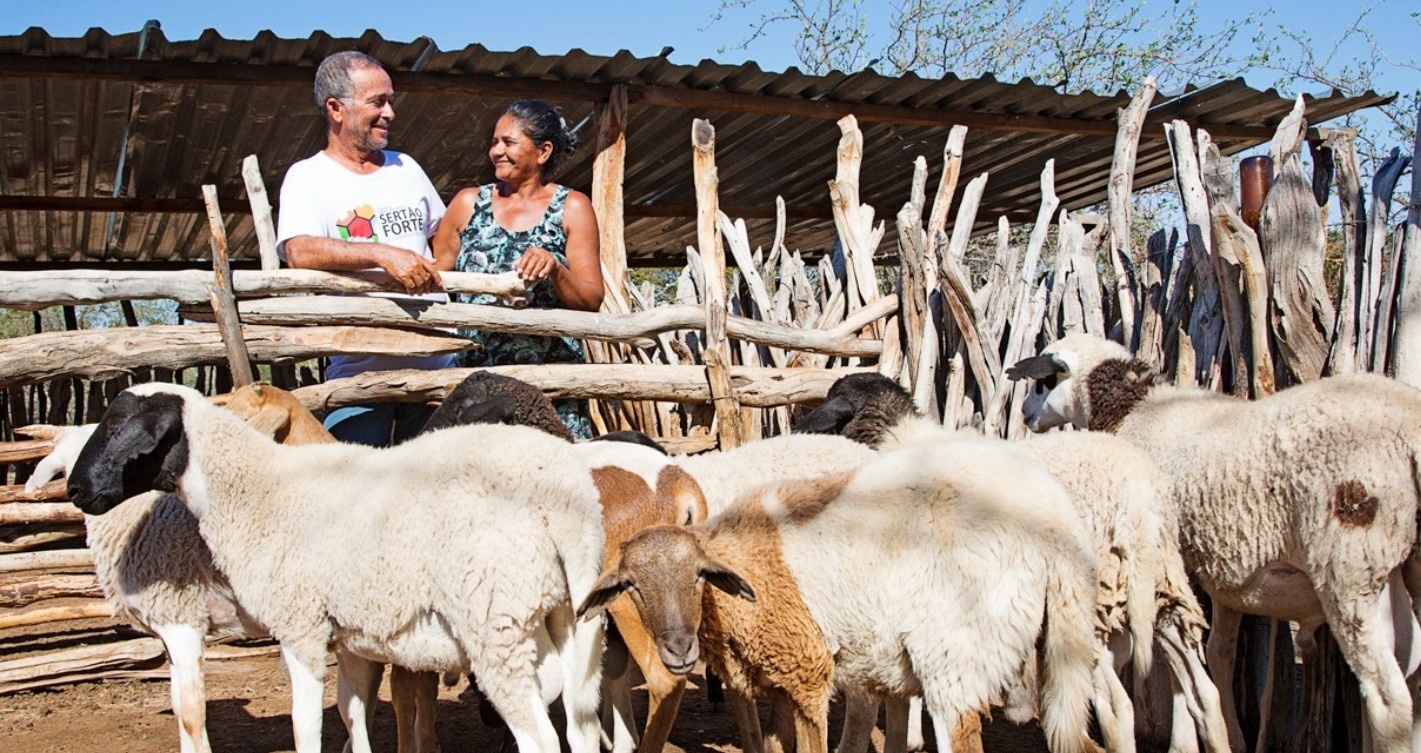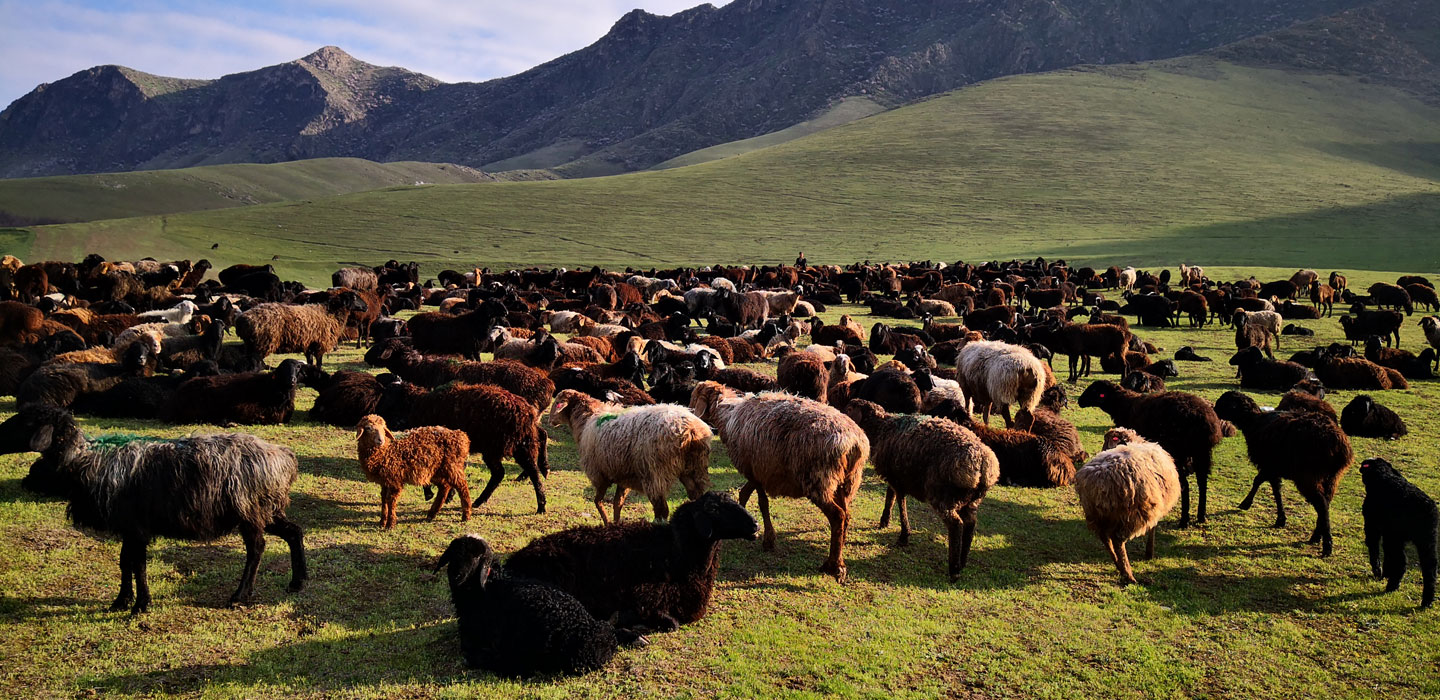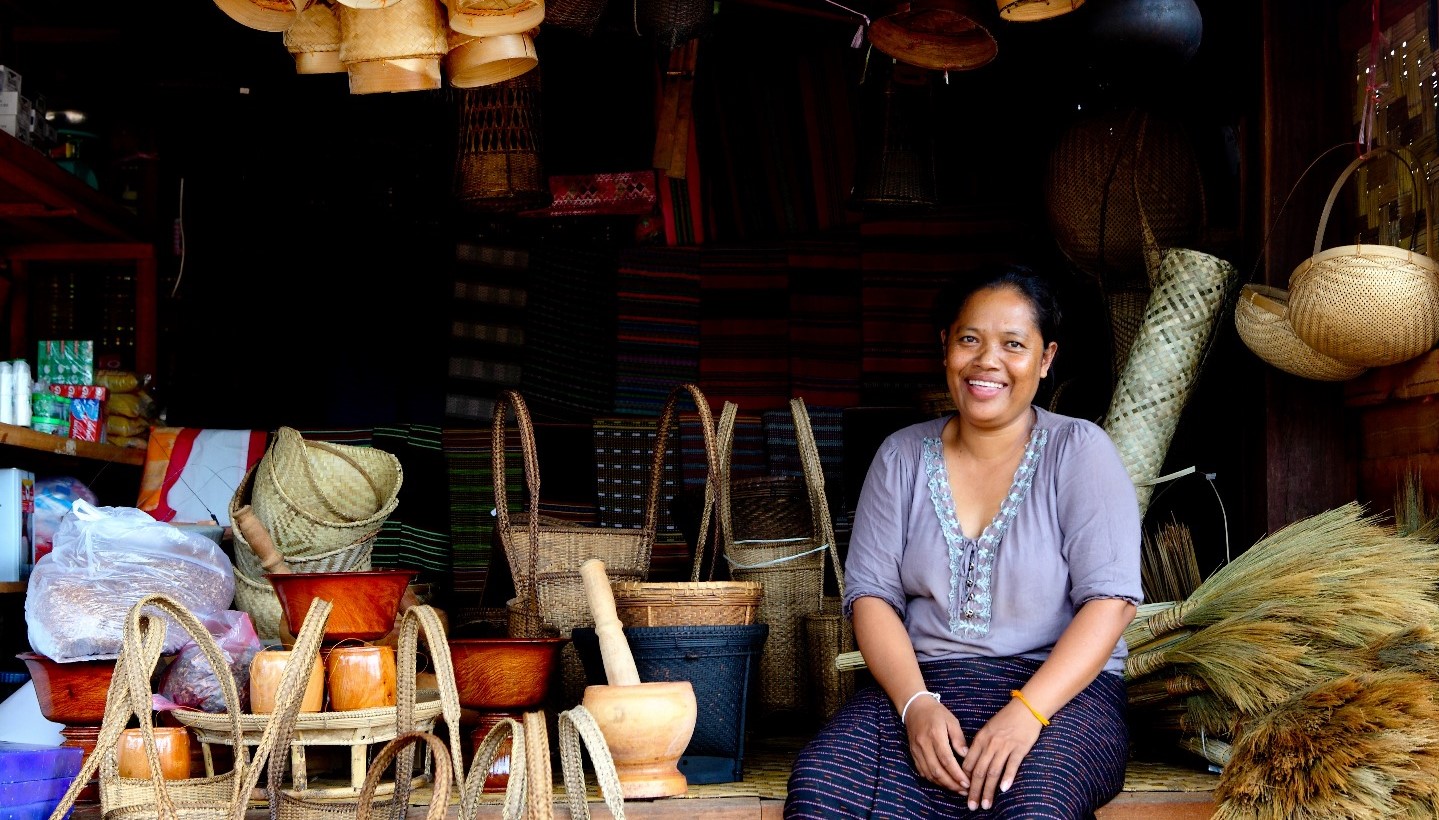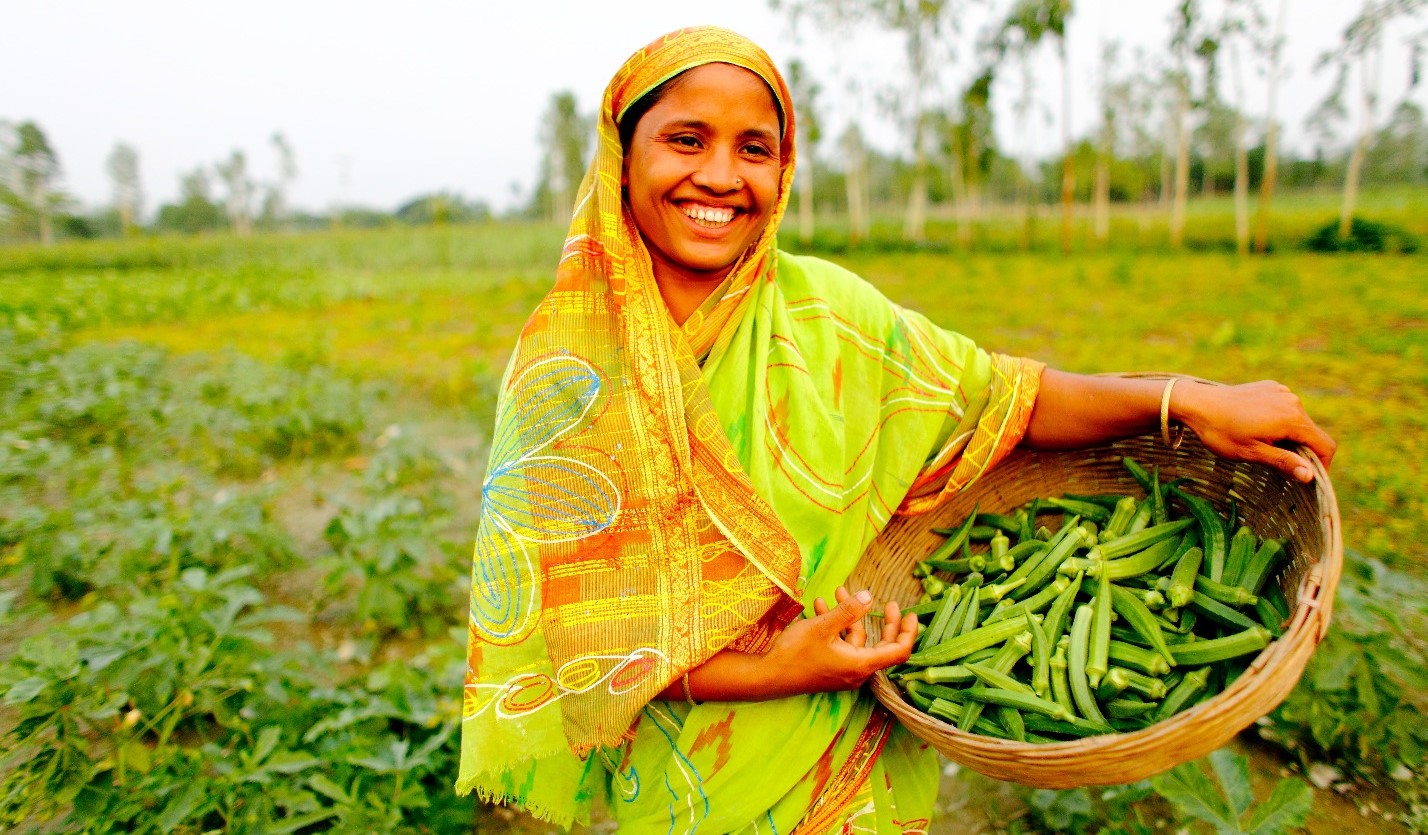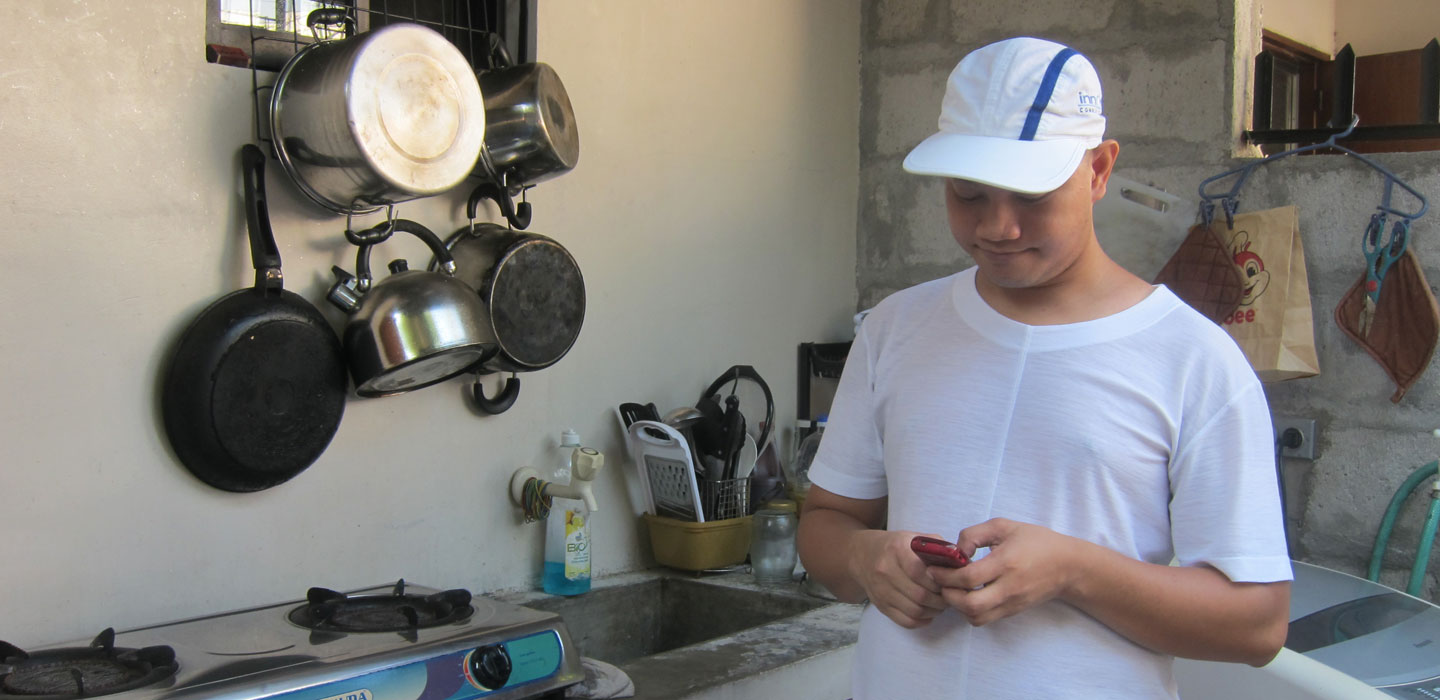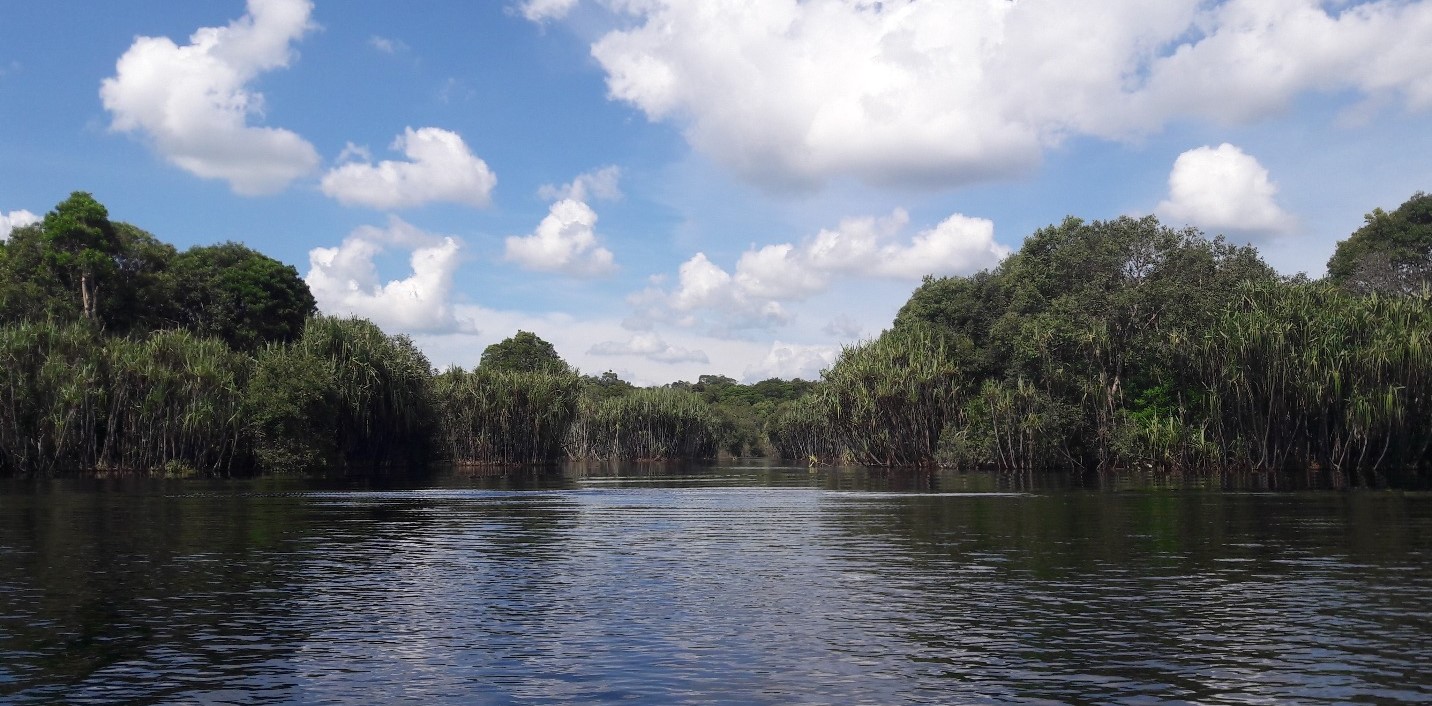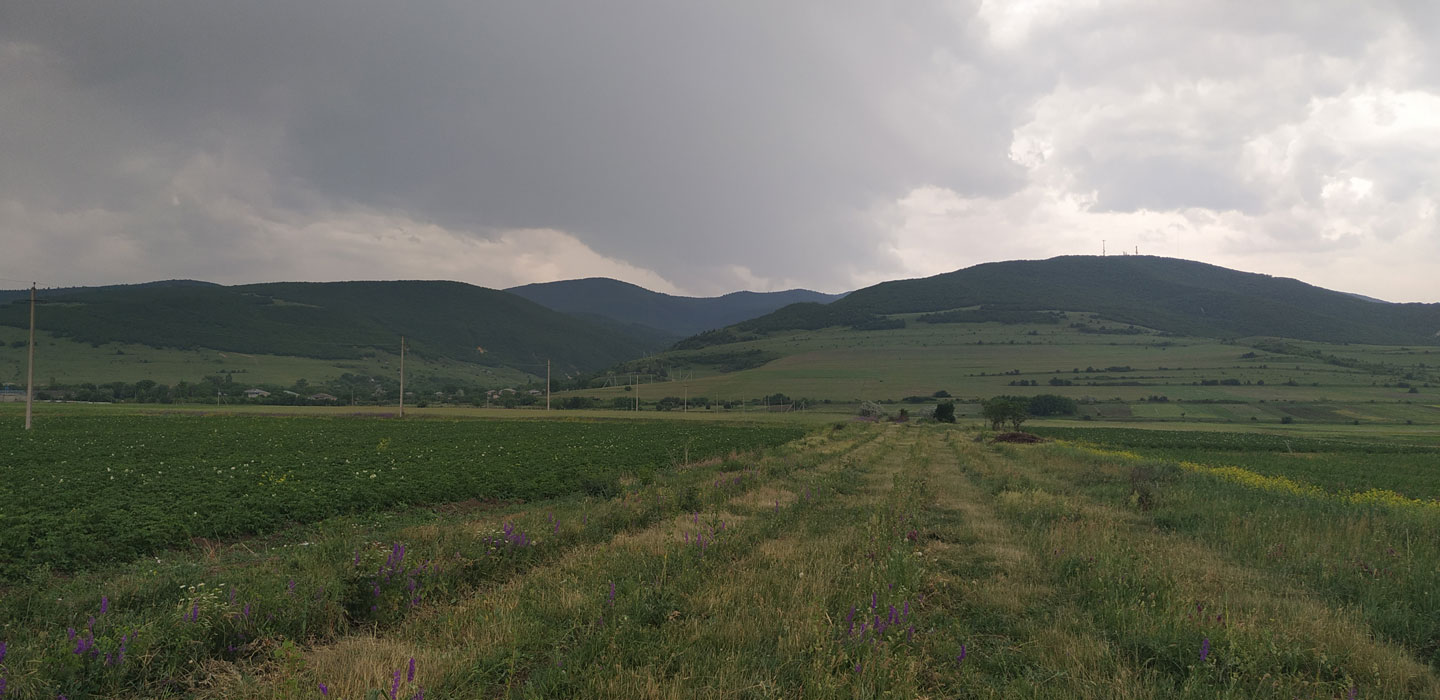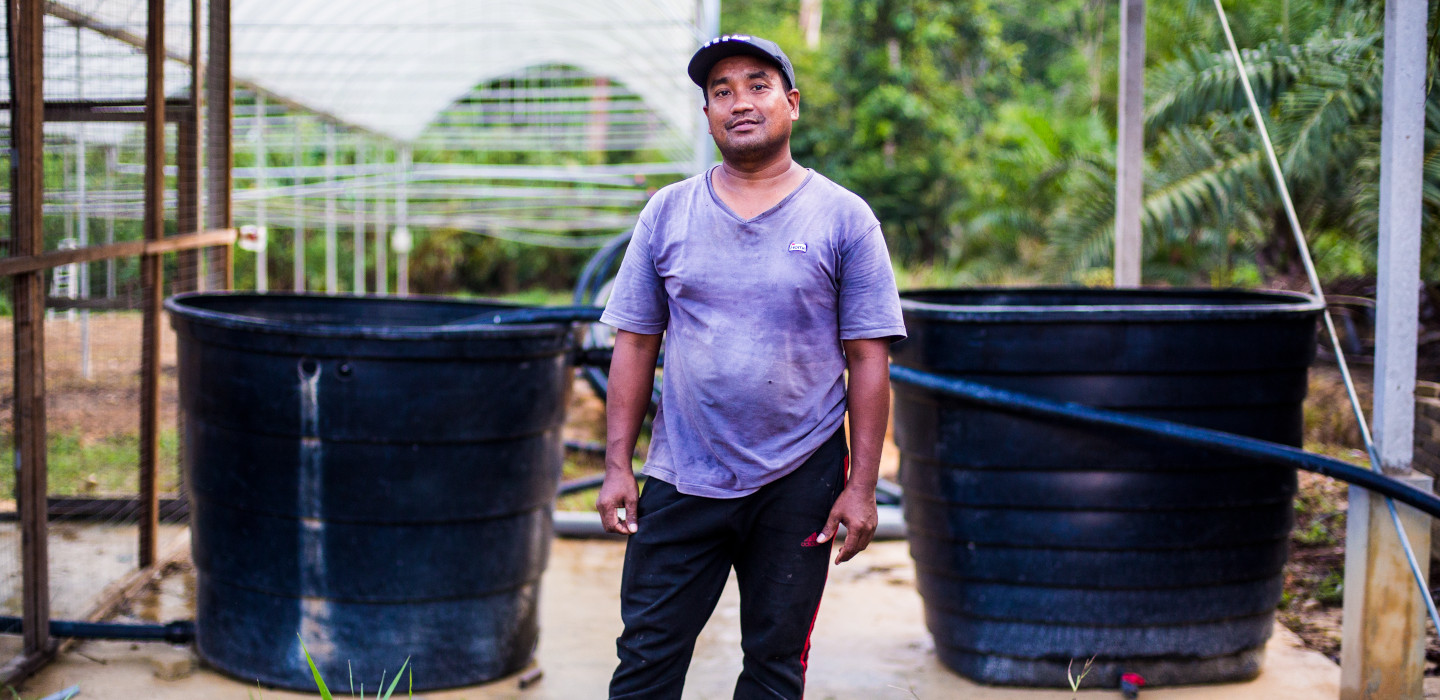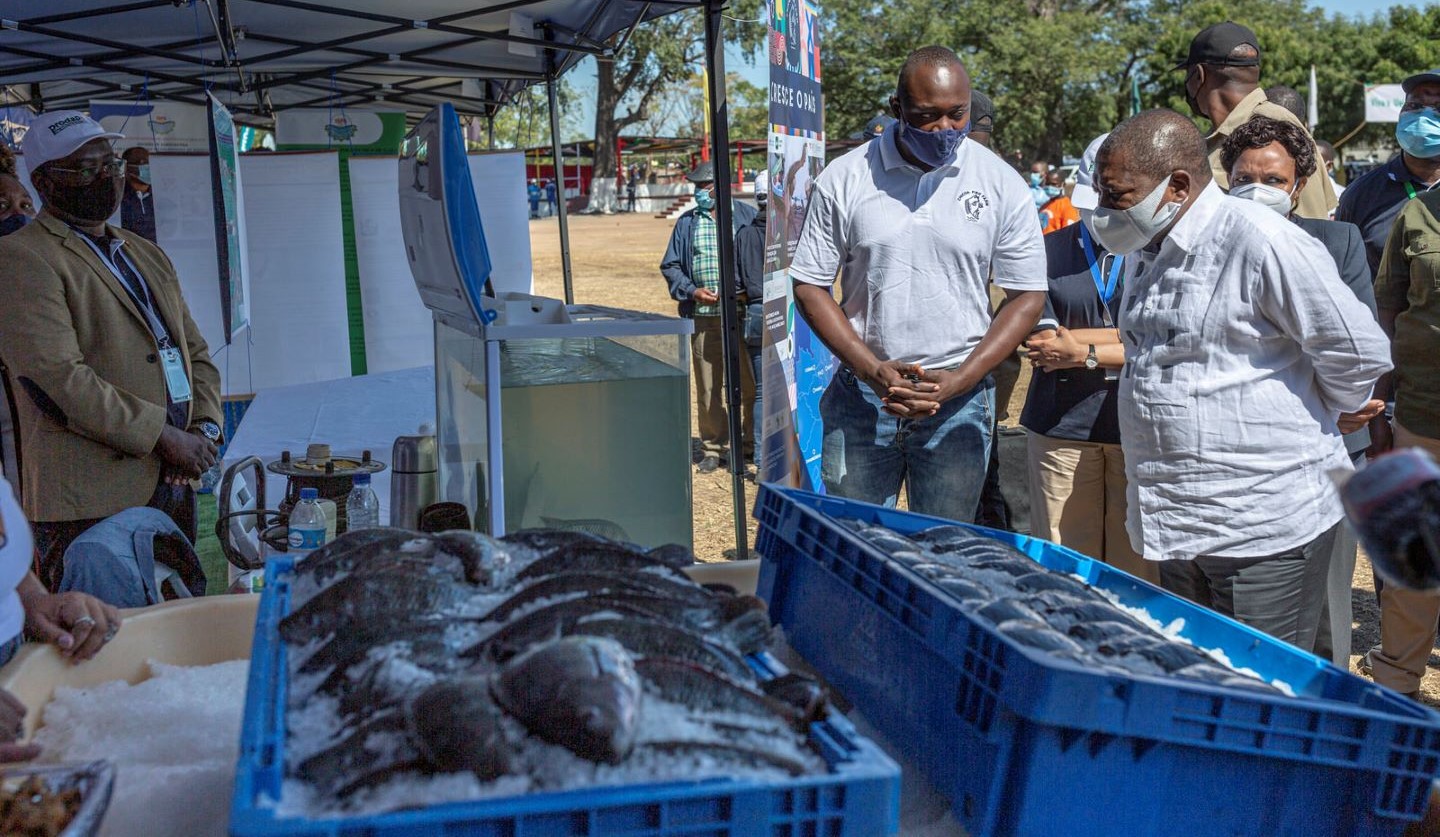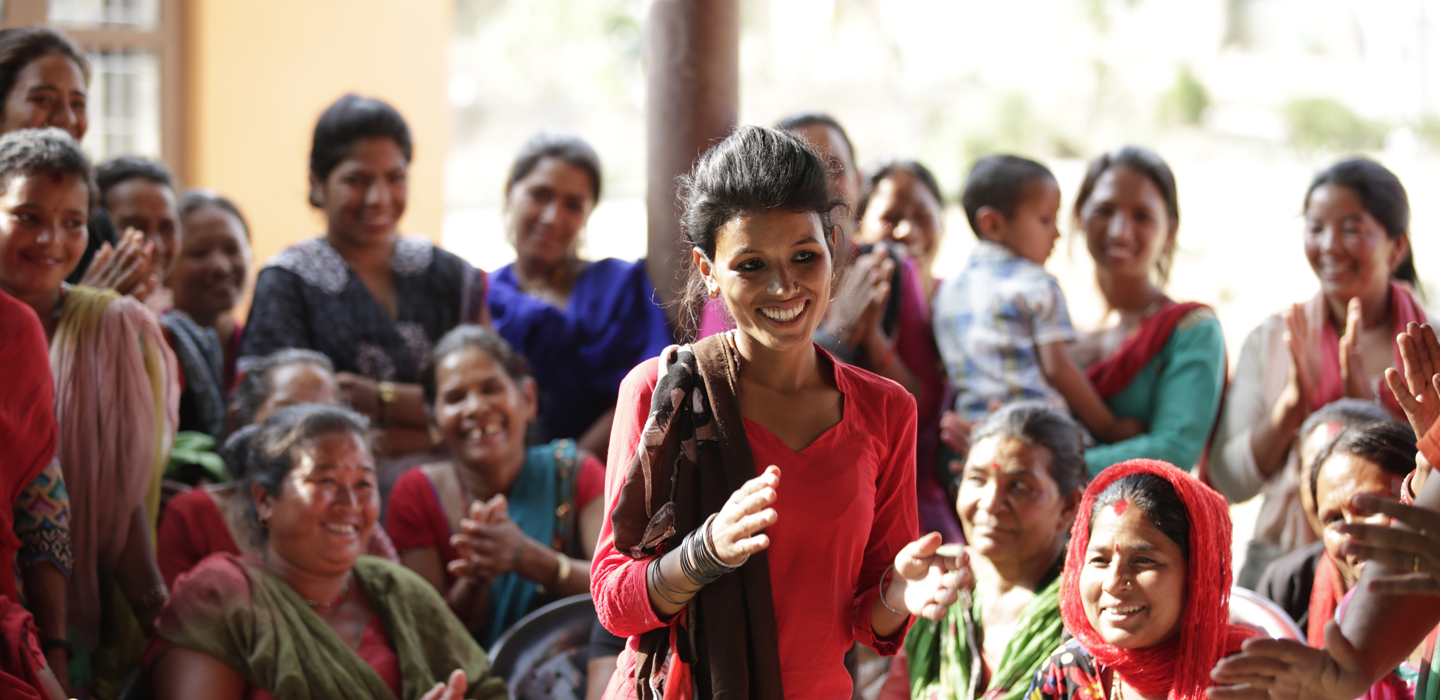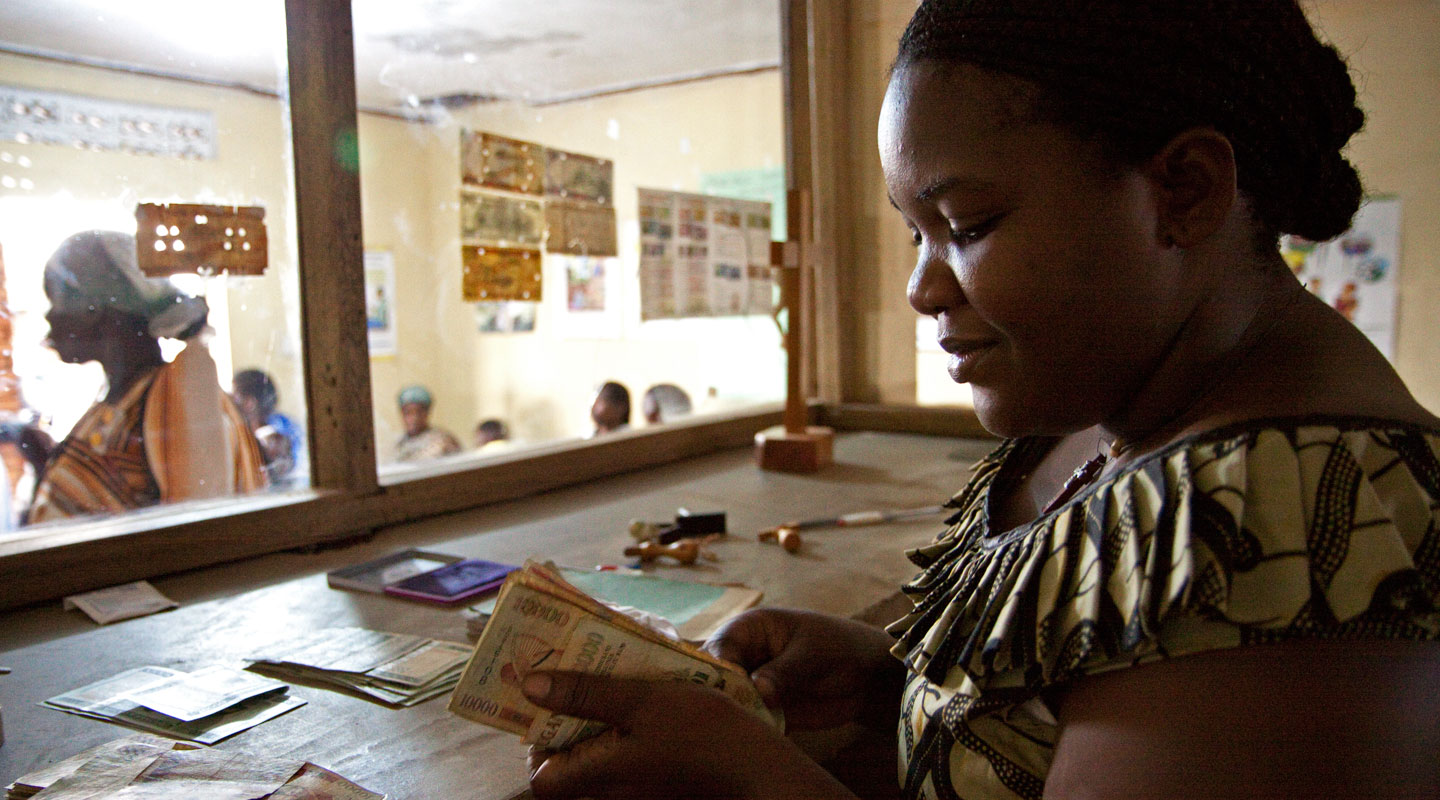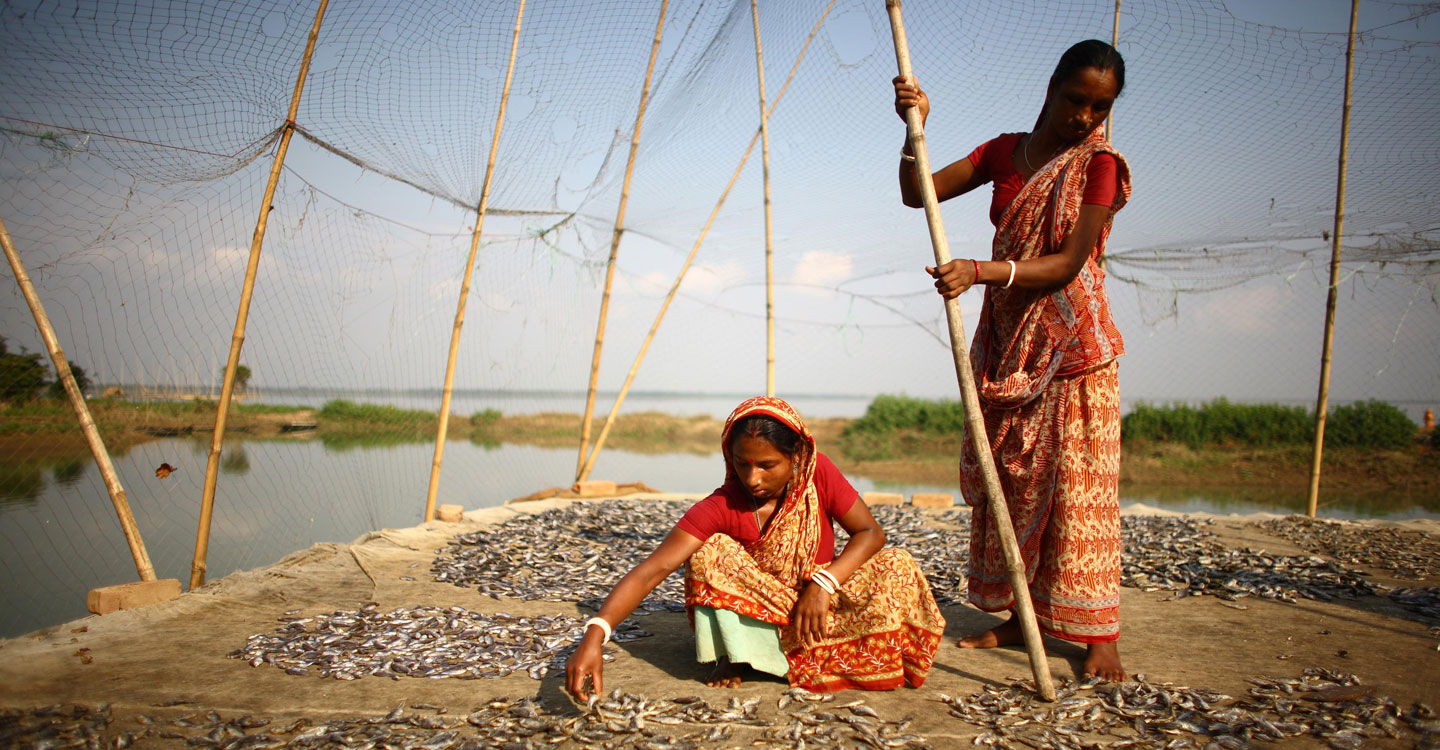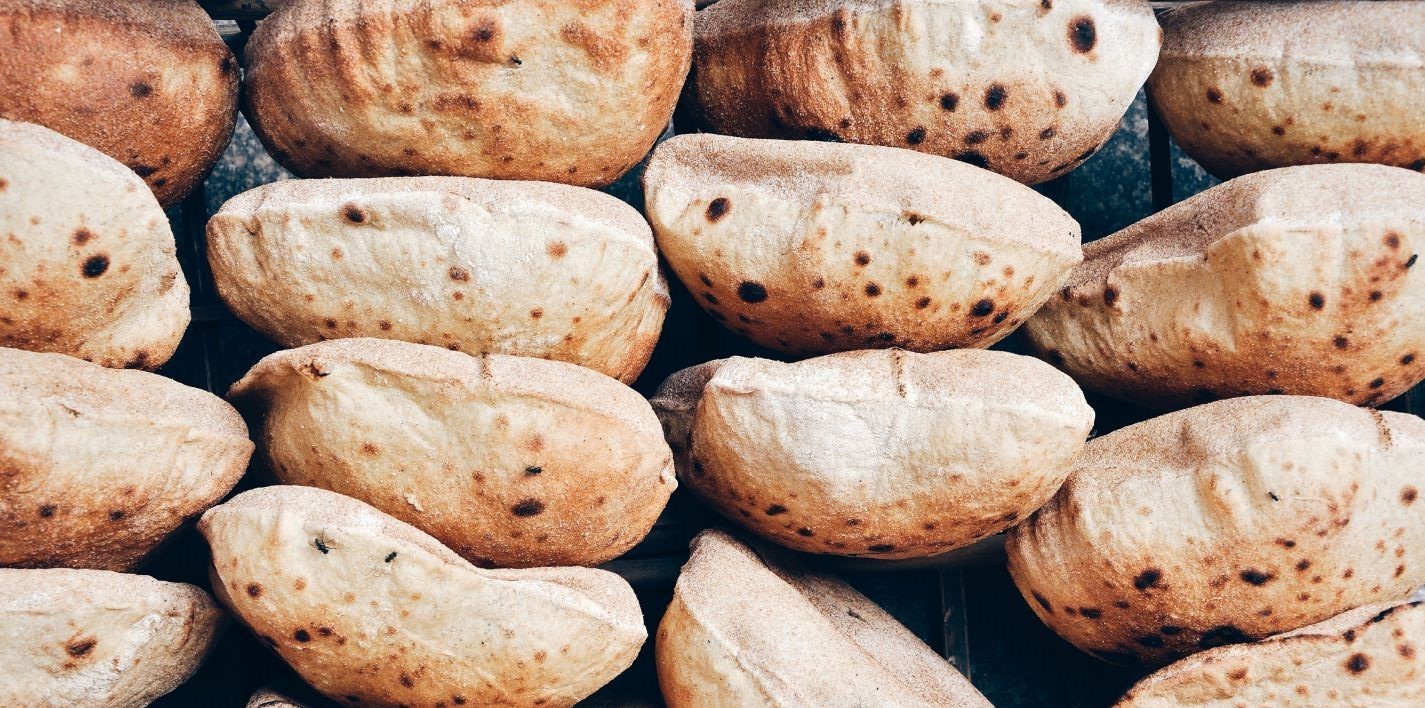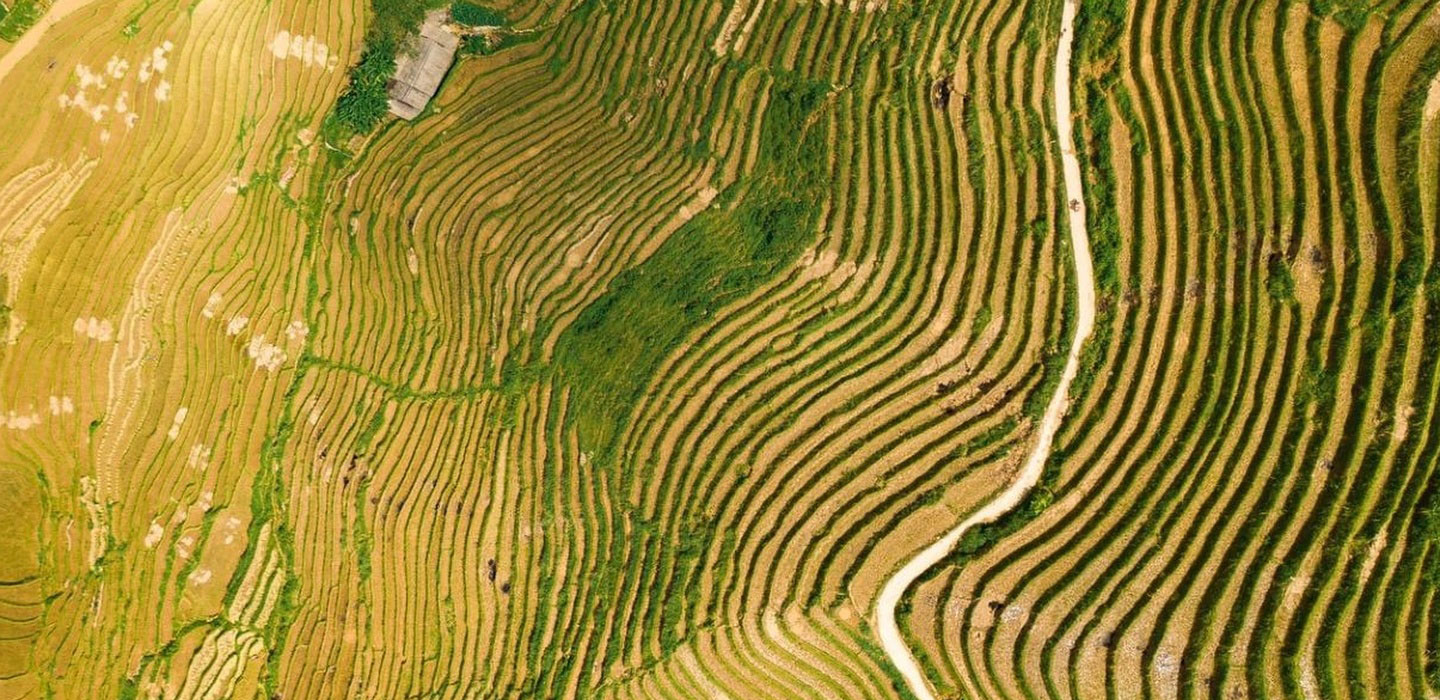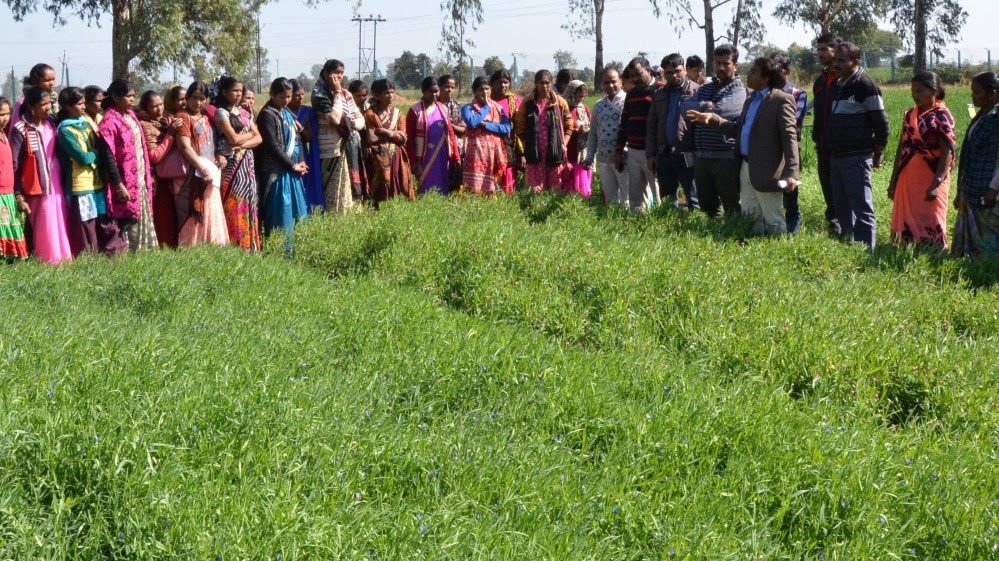Latest
Latest

Latest
Manual Submenu Topics
Search Results Filters
Search Results
Adapt Now: Climate change and small-scale farmers – Episode 25
This month’s episode is all about the connections between small-scale farming and climate change as we approach the UN Climate Summit, or COP26, to be held in Glasgow.
Why COP26 matters for the world’s rural dwellers: A conversation with Jo Puri
In early November, top experts from around the world will meet in Glasgow for COP26, the biggest climate change conference since the Paris Accords. We caught up with climate scientist and IFAD Associate Vice-President Dr Jo Puri to ask her what COP26 is all about and what she hopes will emerge from it.
High-level UN delegation to visit farmers and review progress of rural development projects in Egypt
A high-level delegation of Executive Board members and senior staff of the International Fund for Agricultural Development (IFAD) began an official one-week visit to Egypt today, to observe the impact of IFAD's investments in the country.
The challenges and opportunities of investing in small-scale irrigation
Many countries in the Arab world rely on irrigation for their agricultural production. However, large-scale irrigation schemes have historically been difficult to manage. Small-scale schemes, when planned well from the outset, can be the solution.
High-level UN delegation to visit Egypt next week
A high-level delegation of IFAD's Executive Board members and IFAD senior staff will begin a five-day working visit to Egypt from 23rd to 28th of October and will meet with high level Government Officials and travel to IFAD-supported projects in the country to see progress and meet with community members and rural farmers.
Women are protagonists of change in Nicaragua’s rural areas
One after another, women who received support from the NICAVIDA project, repeat like a mantra: “I’m a protagonist”.
Ahead of global climate talks, public development banks join forces to boost investments in sustainable food systems
Responding to an urgent call to increase financing for the world’s poorest farmers who are hardest hit by climate change, a group of Public Development Banks (PDBs) stepped up their commitment to accelerate green investments in agriculture during today’s Finance in Common Summit.
Finance as a driver of food systems transformation: A new role for Public Development Banks?
One major obstacle to realizing sustainable and inclusive food systems is a lack of sufficient and appropriate financing. Recent estimates suggest that transforming food systems to deliver healthy people, a healthy planet, and a healthy economy will require an extra US$300 – US$350 billion per year for the next decade.
Leading from the front - How rural women across South Asia are inspiring their communities
From the fields they sow to the harvest they reap and the cattle they raise – women are the backbone of farming in South Asia. Yet, their contributions often remain invisible, and they are denied access to resources and a voice in decisions.
Invest in gender equality to reduce climate change impacts on world’s poorest, says IFAD President on the International Day of Rural Women
We need a significant boost in investments to close the gender gap otherwise rural communities will never bounce back from the impacts of climate change, warned Gilbert F. Houngbo, the President of IFAD, on the International Day of Rural Women.
Changing lives by transforming gender norms
Women are major contributors to the rural communities where IFAD works but they continue to face barriers that inhibit their – and their families’ – livelihoods. Compared with men, women have less access to resources and services – including land, finance, training, inputs and equipment. In addition to their agricultural work, they are overburdened with domestic chores and caring tasks.
To achieve the SDGs we must first transform how we feed the world
This year we commemorate, for the second time, World Food Day held under pandemic conditions. The theme is Our Actions Are Our Future. It’s time to ask what actions we must take to build that better future, in which food is produced sustainably and efficiently, providing good nutrition to all, while protecting the environment.
The woman who walks with llamas
Thousands of Bolivian families, particularly in the Altiplano, the high-plateau region of the Andes where Chaquilla is located, depend on breeding camelids for their livelihoods.
Celebrating rural women's voices - Rural women speaking out for change through community radio in Nepal
On the International Day of Rural Women (IDRW), 15 October, we celebrate rural women and girls worldwide and recognize the crucial role they play in contributing to sustainable food systems and rural development.
Neglected and underutilized species are the key to nourishing the world
The natural world has a wealth of plants that can sustain human life, yet global food systems are dominated by just three: wheat, maize, and rice. These species provide 50 percent of the plant-based calories we eat and occupy 40 percent of the world’s arable land.
Farmers’ organizations responding quickly in times of crisis
Ever since COVID-19 first struck, first responders all over the world have stepped up to keep the essential sectors of our society functioning. While many busied themselves with securing global health and safety, others leapt into action to keep the world’s food production chains moving.
IFAD and Nepal mount post-COVID investment programme to build resilience of rural communities
IFAD and the Government of Nepal recently launched a six-year programme to improve the livelihoods, climate resilience and nutrition of 120,000 smallholder farmers across 28 districts in provinces 2, 3 and 5.
If we lose biodiversity, we will not address climate change or hunger, warns IFAD report ahead of UN biodiversity conference
If we continue to lose biodiversity, the world’s most vulnerable people will not be able to adapt to climate change nor sustainably produce food, according to a report released today by IFAD. The report also details the role that rural small-scale farmers play in protecting biodiversity.
Promoting youth employment in Grenada
Two of the most significant challenges Grenada faces are common ones for small island developing states: high levels of youth unemployment, currently over 40 per cent, and vulnerability of agricultural production to climate change and climate shocks.
The Gilani Umoja Youth Group reaps their rewards
The Gilani Umoja Youth Group was founded in 2017 as a way to create jobs for local youth and ensure a steady supply of cereals and other staple crops. Despite some struggles at first, their business is now a source of livelihoods for themselves and others in their community.
Meet the rural women helping Paraguay’s communities and food systems flourish
Ten years ago, in Paraguay’s Capiíbary district, a group of women came together to form an association of market-sellers. Today, with the support of an IFAD-financed project, they’re thriving – and their association is now integral to local food systems.
Tackling climate change: Saving Senegal's mangrove forests
Marianne Ndong and her colleagues make a living from raising and selling oysters in the village of Dassilamé Sérère, in Senegal’s Saloum Delta. Mangroves don’t just support marine life, like the oysters Marianne raises. They also form a protective barrier between land and sea.
Balancing Biodiversity with Agricultural Development – Episode 24
This month’s episode focuses on the upcoming UN Convention on Biological Diversity, set to take place in Kunming, China this October.
To transform our food systems we must reimagine how they are financed, says IFAD President
To transform our food systems to end global hunger and be sustainable in a changing world, we must first reimagine how they are financed, said the President of IFAD to world leaders attending the UN Food Systems Summit, which ends today.
Raising hope and opportunity in rural Tajikistan: Obidova’s story
Obidova is busy these days. Whether she’s setting up a new shelter for her birds or going to the markets to sell, her days are filled with taking care of her family and her poultry business. But just a year ago, things looked very different.
Preventing the next pandemic by integrating human, animal and environmental health
The COVID-19 pandemic has made it clearer than ever that human health is not just a matter of providing people with medical care. To avoid future pandemics, we need to recognize that the well-being of people, animals, plants and ecosystems must be addressed as a dynamic whole.
Re-imagining food systems through the climate–nutrition nexus
The food we eat plays a role in not just our health, but that of our descendants. How we grow, hunt, fish or gather it, how we process it and bring it to market, affects the world around us. These simple relationships are the foundation of the climate–nutrition nexus.
Small-scale farmers need decent wages - IFAD calls on world leaders to commit to action at Food Systems Summit
It is an outrage that rural small-scale farmers in developing countries, who grow a third of our global food, are paid a pittance for their work, said the President of IFAD who today asks world leaders attending the UN Food Systems Summit to take concrete actions to change this.
A glimpse into the Pacific food systems
Discover the specificities of food systems in the Pacific region, why they are particularly fragile, and the role of the island communities in protecting them.
Three ways IFAD can support digital agriculture in the Asia-Pacific region
Farmers and agribusinesses across the Asia-Pacific region are increasingly making use of new digital technologies. IFAD and Grow Asia have recently released a report exploring how these technologies are reshaping the region’s agriculture and how IFAD’s investments can accelerate the adoption of these technologies.
IFAD’s Rural Development Report 2021
Our food systems are failing us. From the climate, to the environment, to nutrition, to human health and well-being, they are not delivering the outcomes we all need. IFAD’s Rural Development Report 2021 describes the systemic issues that have led to the situation we are in, identifies priorities for transforming our food systems, and provides recommended actions to achieve meaningful change.
Global food systems must be disrupted and changed – new IFAD report recommends concrete actions for policymakers
Transforming global food systems to become more inclusive, fair and sustainable may seem an insurmountable challenge, yet there are concrete actions policymakers can take, according to a new report released by IFAD today.
Amplifying rural needs and voices: A conversation with Helene Papper
It’s clearer than ever before: to address global crises, the communities who implement solutions must be involved, their voices heard, their knowledge included. But how do we bring forward voices from the world’s most remote areas?
African small-scale farmers use radio and mobile phones to send a message of optimism and caution to world leaders attending Food Systems Summit
Small-scale farmers in sub-Saharan Africa are impacted disproportionately by climate change, poverty and undernutrition, yet a report released today shows many remain optimistic about the future of farming.
Investing in the foundations of Gambian agriculture
Roots are the essence of farming: they erect healthy plants and help grant a predictable and generous harvest. The IFAD-supported ROOTS project seeks to promote exactly that strength in The Gambia.
Small-scale producers are central to Africa’s forest restoration efforts
Small-scale farmers have an important role to play in restoring Africa’s forests. Two IFAD-supported projects in Eritrea and Kenya are helping these farmers engage in efforts that both restore local forests and have direct economic and social benefits for their communities.
Finding a way forward: Sector reforms in Lesotho’s wool and mohair industry
Lesotho’s efforts to nationalize its wool and mohair industry set off a cascade of unintended consequences. At the government’s request, IFAD and the WAMPP project commissioned a study to analyze the impacts of these regulations and inform future policy revisions.
The labour market dynamics of COVID-19
Over a year and a half into the COVID-19 pandemic, there’s still a lot to learn about how the labour market in developing countries is reshaping itself – especially in terms of gender dynamics. Our latest study tracks employment trends in Nigeria with both pre- and post-pandemic data.
Building a Great Green Wall: Four lessons learned from the World Bank assessment
Helping the people of the Sahel prosper requires a Great Green Wall stretching across Africa. IFAD is embarking on a series of projects to help build this “wall.” We recently sat down with the World Bank to learn from their successes and challenges across a decade of their own project implementations in this region.
Support for Syrian herders and farmers to safeguard livelihoods in the face of the COVID-19 crisis
IFAD has contributed a US$544,795 grant to alleviate the pressure of the COVID pandemic on the Syrian rural community.
Mainstreaming agroecology in the Asia-Pacific region
Agroecology is a holistic approach that integrates elements of ecology, economy, and society within a food system. It also supports the well-being of small-scale producers, especially in terms of their empowerment and social inclusion. IFAD has a long tradition of supporting agroecology practices throughout Asia-Pacific, especially the Himalayas region.
Global climate leader appointed Associate Vice President at UN rural development agency IFAD
More investments in innovations and knowledge are urgently needed to increase the ability of rural people to adapt to climate change and shocks, said Jyotsna Puri, a long-time advocate for climate change adaptation and evidence-based policy and big data, who today takes up the position of Associate Vice President of the Strategy and Knowledge Department at IFAD.
The Lare Milk Dealers find their niche
Milk processing is normally a profitable venture in Kenya’s Nakuru County, but the Lare Milk Dealers Youth Group struggled to enter the market at first. Thanks to trainings hosted by an IFAD-supported project and some innovative additions to their business model, they’re now thriving.
Agroecology can address food systems failures - new IFAD report
In its first comprehensive assessment of agroecology, the International Fund for Agricultural Development (IFAD) announced today that 60 percent of its projects use practices from this holistic approach to sustainable agricultural production.
Empowering rural women with Agroecological Logbooks
The video presents the main results of using the Agroecological Logbook methodology in projects supported by IFAD in Brazil.
Black jelly brings a more resilient future for rural Viet Nam
Light and refreshing, with a mild, earthy flavour, Vietnamese black jelly is the perfect end-of-summer treat. It’s already popular throughout Viet Nam and its neighbouring countries – and thanks to the work of local growers and an IFAD-supported project, it’s now destined for wider audiences.
Protecting biodiversity is crucial to fighting hunger - IFAD calls for increased investments ahead of World Conservation Congress
If we do not invest more in protecting biodiversity, development cannot be sustainable and we will not eradicate hunger or achieve the Sustainable Development Goals, said the President of IFAD ahead of his participation in the IUCN World Conservation Congress that begins in Marseille today.
Gender-focused solutions for the post-COVID return to rural areas
The COVID-19 pandemic has given rise to waves of internal migration as urban workers return to rural areas. IFAD must identify solutions to the challenges this phenomenon has created, and will continue to create, for rural agricultural development. This is especially critical from a gender equity perspective.
Restoration takes root: Nasreen’s story
Nasreen’s family was struggling to make ends meet. Now, thanks to an IFAD-supported project, she runs her own ecological farm that produces high-quality, chemical-free vegetables – all while it restores the local ecosystem.
The Government of Mali and Rome-based agencies launch a joint programme to build resilience among rural people
The Ministry of Rural Development of Mali, the three United Nations Rome-based agencies (FAO, IFAD and WFP) and G5 Sahel officially launched a joint programme to help rural people in Mali build their resilience to climate change, conflict and COVID-19 on 26 August in Bamako.
Building rural resilience through South-South and Triangular Cooperation: Results of the Third Call for Proposals under the China-IFAD SSTC Facility
Find out more about the four projects selected from the SSTC Third Call for Proposals.
Connecting Farmers to the Food Systems Summit – Episode 23
In this month’s episode, we continue our focus on the first-ever UN Food Systems Summit.
Returning to Brazil’s Gente de Valor project: Lessons on sustainable impact
The Gente de Valor project was designed to assist the sertanejos (those who live in Brazil’s semi-arid region). It featured a community-driven development approach that promoted active participation and local leadership. Five years after the project ended, IFAD returned to evaluate the project’s outcomes and the effects of this approach.
What we’re reading for World Water Week
Here’s a list of our favourite books and other resources about the state of water in our world and the way it intersects with our politics, economics and societies.
Community-driven change brings water security in Tonga
Eua Island is home to many of the Kingdom of Tonga’s natural resources. Recently, climate change and natural disasters have caused significant water supply challenges, but an IFAD-supported project – made possible by the islanders’ incredible community spirit – is working to change that.
The Greenthumb Youth Group casts their nets
The Greenthumb Youth Group hadn’t had much luck with traditional farming. But thanks to a grant to set up an aquaponics venture – combining crop farming and fish farming – their success is making waves all along the value chain.
Revitalizing the practice of shifting cultivation: A conversation with Dr Dhrupad Choudhury
Shifting cultivation is an indigenous food system practiced by millions of people across south and south-east Asia. A new resource book authored by Dr Dhrupad Choudhury, in collaboration with ICIMOD, is designed to guide policymakers and development professionals in sustainably transforming this practice.
Rural Youth Innovation Award honours youth leaders fighting COVID-19
IFAD believes in the tremendous innovative capacity of rural youth – and we take seriously our responsibility to support young people in their constant search for change and innovation. That’s why this year’s Rural Youth Innovation Award in Latin America and the Caribbean, a project financed by the China-IFAD SSTC Facility, focused on initiatives led by young people fighting the pandemic.
How small-scale producers can leverage the growing livestock market
With global production and consumption of meat projected to rise, livestock rearing is becoming an increasingly important income source for many small-scale producers. Recently, livestock farmers from around the world have been learning from each other via the SSTC framework.
How South-South and Triangular Cooperation is transforming coconut cultivation and processing in Viet Nam
All businesses, irrespective of their size, location, products, and services, depend on weather and climate. Finding and sharing solutions to climate-related challenges is at the centre of South-South and Triangular Cooperation.
Creating smoke-free kitchens in Nepal through Indigenous community empowerment
EcoHimal Nepal is a national non-government organization that works with rural mountain communities. They developed a project with NELHOS, another local organization funded by IFAD, in Rukuma and Chepuwa villages of Bhotkhola Rural municipality to develop ‘’smoke-free kitchens’’.
In Rwanda, public-private partnerships benefit small-scale cassava farmers
Cassava is one of Rwanda’s most important staple crops, but market access remains a challenge. The Ingabo Syndicate, an organization of cooperatives, has been helping its cassava producers find markets for over two decades – most recently, through public-private partnerships.
2021 Agrobiodiversity Innovation Challenge
Innovators who aim to mainstream agrobiodiversity solutions into the agri-food sector are welcome to submit applications to the Agrobiodiversity Innovation Challenge.
It’s time to think small
Small-scale farmers and the rural poor have a crucial role to play in the restoration of ecosystems and the conservation of natural resources.
Annual report 2020: 123 million rural people reached as IFAD steps up fight against hunger, poverty and exclusion
As the COVID-19 pandemic raged around the world pushing millions more people into hunger and poverty, IFAD increased its support for the most vulnerable and marginalized people, according to the IFAD Annual Report 2020 released today.
El proyecto Puentes fomentará los vínculos entre gastronomía y agricultura familiar para crear empleo y oportunidades económicas para los jóvenes de las zonas rurales y peri-urbanas de Bolivia, Colombia y Honduras
El proyecto Puentes/Rural For Young People, que creará empleo y oportunidades económicas para casi 5.000 jóvenes de entre 16 y 35 años de las zonas rurales y peri-urbanas de Bolivia, Colombia y Honduras, echó a andar ayer tras su lanzamiento virtual.
Responding to the challenges of a year like no other: IFAD’s 2020 Annual Report
IFAD’s Annual Report provides a concise, compelling and interactive discussion of how we addressed the challenges of the last year.
New horizons for the Ingobor Youth Group
Meet Ingobor, a group of 20 former bus drivers and conductors who pooled their resources and established a successful dairy business.
IFAD and partners to announce upcoming coalition to support public development banks’ financing of sustainable and equitable food systems
Creating sustainable and equitable food systems that benefit the world’s most vulnerable people will require substantial investments – by some estimates as much as US$350 billion per year over the next decade.
How can International Financial Institutions invest to ‘’build back better’’?
Given the already-high levels of poverty and vulnerability faced by small-scale rural producers, the pandemic has hit them and their families particularly hard. So, what should be the priorities for organisations, like IFAD, in the coming years?
Bold actions for gender equality and women’s empowerment in food systems
What does a gender just and equitable food system practically look like? A just and equitable food system is one in which women’s roles change from being invisible to being visible.
Putting rural small-scale producers at the centre of food systems’ transformation – join IFAD during the Food Systems pre-Summit (26-28 July 2021)
To achieve a future where every person has access to affordable and healthy food, where food production protects the environment and biodiversity, and where the people who produce our food are paid decently for their labour, food systems must radically change, and the needs of rural people must be at the centre.
Spanish filmmaker wins first IFAD COPEAM Award at Sicilymovie - Festival del Cinema di Agrigento
“Beyond the Glacier” – a short documentary which addresses the impact of climate change and human activity on fishing communities in Kazakhstan - has taken a top prize at the Sicilymovie, with Spanish director David Rodríguez Muñiz receiving the first 2021 IFAD COPEAM Film Award today.
Food systems that ignore the needs of poor rural people are doomed to fail, warns IFAD President ahead of Food Systems pre-Summit
If we ignore the challenges and needs of rural people in the world’s poorest countries, our attempts to create more equitable and sustainable food systems are doomed to fail, said the President of IFAD ahead of the UN Food Systems pre-Summit that begins in Rome on Monday.
Towards the Future of Food Systems – Episode 22
We begin this month’s episode with an update from IFAD’s Associate Vice-President Donal Brown on IFAD’s preparations for the UN Food Systems Summit. He also gives us the latest on the COVID-19 pandemic and its impact on farmers around the world.
IFAD and China launch project to revitalize the rural economy in Hunan
IFAD and the People’s Republic of China are launching the Hunan Rural Revitalization Demonstration Project (H2RDP) today to increase profitability of specialized agricultural production and increase economic vitality in targeted rural areas of Hunan province – and to support vulnerable rural households to boost their livelihoods and resilience.
A new strategic opportunities programme to strengthen the partnership between Côte d’Ivoire and IFAD
IFAD and the Government of Côte d’Ivoire held a workshop in Abidjan on 15 July 2021 to present the new strategic opportunities programme for Côte d’Ivoire for the period 2020–2025 to all stakeholders involved in agricultural and rural development.
Three ways to harvest water in Brazil’s sertão
For centuries, people living in Brazil’s semi-arid region have struggled with a lack of water. But over the last decades, thanks to support from IFAD and other development actors, these communities are squeezing a few more drops of water from Mother Nature.
Third round of National Call for Proposals (Morocco): Supporting remittances in times of crisis in Africa
The Financing Facility for Remittances (FFR) of IFAD is pleased to announce the third round of National Calls for Proposals (Morocco) 2021: supporting remittances in times of crisis in Africa.
Strengthening food systems in Pakistan
The State of Food Security and Nutrition in the World 2021 reported that more than half of the world’s undernourished are found in Asia (418 million). In Pakistan, Covid-19 has exposed vulnerabilities and inadequacies making nutrition a more complex challenge now.
The potential and unknowns of gender transformative approaches
With less than a decade left to meet the Sustainable Development Goals, the sobering current global trajectory is one in which it will take roughly 170 years to achieve gender equality. The current global pandemic has both made gender inequalities more visible and worsened them, including in food systems.
IFAD’s new investment programme to boost private funding of rural businesses and small-scale farmers
Rural businesses, which are so vital for transforming our food systems, will get a much needed boost from an ambitious new financing programme launched today by IFAD.
UN report: Pandemic year marked by spike in world hunger
There was a dramatic worsening of world hunger in 2020, the United Nations said today – much of it likely related to the fallout of COVID-19. While the pandemic’s impact has yet to be fully mapped, a multi-agency report estimates that around a tenth of the global population – up to 811 million people – were undernourished last year.
Call for proposals: Digital advisory services to support accelerated rural transformation
This call for proposals is to select a recipient or consortium of recipients to receive a three-year IFAD grant financing to implement the project: Digital Advisory Services to Support Accelerated Rural Transformation for a total amount of up to US$2 million.
Finalists announced for first ever IFAD COPEAM Film Award
Climate change and ecosystem health will dominate Sicily’s big screen this summer, with today’s announcement of three finalists in the first-ever IFAD COPEAM Film Award at the Sicily Movie Festival del cinema di Agrigento.
IFAD’s Rural Youth Innovation Award recognizes the key role that young people play in overcoming the impact of COVID-19 on rural communities
IFAD highlighted the value of innovative youth-led intiatives in helping the region’s rural communities overcome the effects of COVID-19 with the second edition of its Rural Youth Innovation Award.
Putting food and agriculture at the heart of the global biodiversity framework
Despite standing to suffer immensely from the decline of biodiversity, agriculture is the lead driver of biodiversity loss, primarily through conversion and fragmentation of habitat and unsustainable intensification.
Tanzanian small-scale farmers receive support to improve food security in the face of the COVID-19 pandemic
IFAD will provide funding to assist 6,240 vulnerable small-scale farmers in rural Tanzania impacted by the COVID-19 pandemic.
Seeing the invisible, doing the impossible: A young Nigerian entrepreneur’s journey to success
Dorothy Chia Vandefan is nothing if not insightful. She describes herself as a serious-minded agricultural entrepreneur who can create opportunities where there seem to be none – and she’s right.
Developing Uganda's small and medium-sized agricultural businesses
Gladys Ndagile has been a poultry farmer for many years, but it was only when she connected with a local egg processing business that she finally made a profit from her eggs.
IFAD and KSrelief agree to jointly tackle hunger and malnutrition in world’s most vulnerable countries
IFAD and the King Salman Humanitarian Aid and Relief Centre (KSrelief) today agreed to join forces to help ensure sustainable access to nutritious food.
Second Edition of the IFAD Latin American and Caribbean Rural Youth Innovation Award
IFAD is to hold the Second Edition of the Rural Youth Innovation Award for Latin America and the Caribbean on Thursday, 8 July at the Bogota’s EAN University.
A decade of IFAD’s inclusive rural finance programmes points to an innovative and catalytic future
The number and variety of financial services accessible to the rural poor continues to grow. A recently completed stocktake of IFAD’s rural finance programmes has identified a number of successes, plus some opportunities for further innovation.
Transforming rural agriculture through technology and innovation
Despite the African continent holding the world’s most arable land and the agricultural sector employing over half of the population, Africa is still struggling with food production and food insecurity.
IFAD and Guinea to help rural populations recover from the effects of the COVID-19 pandemic
IFAD will provide the Republic of Guinea with a grant to improve the resilience of more than 2,123 poor farming households trying to cope with the COVID-19 pandemic, by ensuring rapid access to inputs, information, markets and cash.
G20 recognizes importance of Public Development Bank financing to tackle rural poverty and hunger, and leadership of IFAD
In the first-ever joint declaration by foreign affairs and development ministers, G20 countries today recognised the vital role Public Development Banks (PDBs) can play in filling the financing gap to sustainably tackle rural hunger and poverty, and the leadership of the International Fund for Agricultural Development (IFAD) in bringing them together to strengthen their long-term investments in food and agriculture.
Promoting renewable energy technologies for small-scale farmers in Cambodia
Renewable energy technologies are an increasingly important part of small-scale agriculture. IFAD’s S-RET project is bringing these technologies to farmers throughout Cambodia – and it’s recently been selected as a GEF Global Good Practice Project.
IFAD and Govt. of Maharashtra join hands to empower 1 million rural women
IFAD and the Government of Maharashtra in India launched the Nav Tejaswini programme this week.
Food Systems From Farm to Plate – Episode 21
This month’s episode is all about food systems.
Diving in on aquatic foods: IFAD investments create rural opportunities
The blue economy opens the space for IFAD to reach more rural people in the most challenging situations, and to get them out of poverty.
A win-win partnership is boosting small farmer milk production in remote Montenegro
It’s six o’clock in Mojkova, in Montenegro and a long working day starts for Sladan Minic. It is an early wintry morning, and Sladan starts to collect milk from the local dairy farmers driving around mountainous roads.
In Moldova, new frontiers for the honeybee business
Thanks to an IFAD-supported grant, Ecaterina’s honey business is taking off – and now she and her fellow entrepreneurs have a bigger market reach than ever before.
South Sudan and IFAD to boost productivity, food security and resilience of small-scale farmers faced with climate change
The South Sudan Livelihoods Resilience Project (SSLRP) will empower rural people to boost productivity, food security and nutrition, and resilience.
Taking stock of IFAD’s digital agriculture efforts in the Asia-Pacific region
Digital agriculture is an indispensable part of strengthening food systems. IFAD’s recent stocktake of our ICT interventions in the Asia-Pacific region has revealed over 50 active solutions and some critical gaps to address.
A platform to take household methodologies to scale
The Empower@Scale platform helps organizations to address the root causes of gender inequality by incorporating household methodologies (HHMs) into their projects, which address the embedded gender biases and discrimination against women at the household level.
Lack of digital infrastructure risks leaving millions of rural families in poverty – IFAD makes urgent call on International Day of Family Remittances
Despite a massive increase in migrants sending money home via digital transfers due to the COVID-19 pandemic, millions of their rural family members struggle to access the mobile banking services which could help lift them out of poverty. The President IFAD today called for urgent investments in digital infrastructure and mobile services in developing countries to ensure rural families are not left behind.
Recipes for Change: A conversation with Chef Shane Chartrand
For over a decade, Chef Shane Chartrand has been on a personal and culinary journey: figuring out what it means to be of Cree descent and of Métis upbringing, and how to integrate that into being a professional chef living and working in Edmonton, Alberta, Canada, on Treaty 6 territory.
Sri Lanka and IFAD partner to reduce poverty and increase food and nutrition security in the face of climate change
El Fondo Internacional de Desarrollo Agrícola (FIDA) y el Gobierno de Sri Lanka firmaron la semana pasada un convenio de financiación para poner en marcha el Proyecto de Fomento de la Resiliencia y el Desarrollo de Agronegocios de los Pequeños Agricultores.
Grass funds: Tradition meets ingenuity in Brazil’s sertão
Too many people assume Brazil’s fundo de pasto communities are relics of the past. Today, they’re at work uniting centuries-old traditions with contemporary food systems.
Livestock key to combatting climate change in Kyrgyzstan
Livestock-based food systems can be climate-friendly if managed well. A new assessment tool is helping governments calculate and predict their livestock emissions for use in their NDCs.
11 reasons why remittances are important
Every year, on 16 June, the International Day of Family Remittances (IDFR) is observed to raise further awareness on the abnegation and sacrifice of migrant workers, who support their families and communities of origin through the money they send back home, particularly in these times of crisis.
The International Partnership for Cooperation on Child Labour in Agriculture statement on child labour in agriculture for the World Day Against Child Labour 2021
The UN has declared 2021 as the International Year for the Elimination of Child Labour. More than ever, child labour is a pressing concern in need of urgent attention of the international community.
Thriving food systems and nutritious food for all go hand in hand
Malnutrition, and the toll it takes on human health and societies, is directly linked with the health of our food systems. Creating sustainable, resilient and inclusive food systems will make lasting improvements in global health, nutrition and productivity.
Join the Global Forum on Remittances, Investment and Development Summit - 16-17 June 2021
World experts will discuss the resilience of migrant workers’ remittances and the opportunities of digitalization and the challenges ahead at the the Global Forum on Remittances, Investment and Development (GFRID) – Summit 2021.
Efforts to restore tropical peatlands need fire-free plantations
Peatlands across south-east Asia have been cleared for agricultural purposes, leading to a sharp increase in fires. To reverse course, we need to transition to sustainable, fire-free peatland management practices.
Climate-smart agriculture supports food systems in rural Georgia
Through the use of climate-smart agriculture techniques, an IFAD-supported project is helping rural Georgian farmers holistically restore their local and regional ecosystems.
Call for Proposals: Rural youth employment opportunities
This call for proposals seeks to select a recipient, or consortium of recipients, to receive a four-year IFAD grant, for a total amount of up to US$4.8 million, to implement the project Rural youth employment opportunities: Support to integrated agribusiness hubs initiative.
President Filipe Jacinto Nyusi of Mozambique launches IFAD-supported project to boost aquaculture
On 28 May 2021, Filipe Jacinto Nyusi, President of the Republic of Mozambique, launched a new project to reduce poverty and increase production and incomes through aquaculture for more than 88,000 rural small-scale fish farmers.
Economic empowerment of rural women positively impacts social norms and strengthens food security
The programme, 'Accelerating Progress towards Rural Women's Economic Empowerment’, implemented by IFAD, FAO, UN Women and WFP, together with national governments and supported by the governments of Sweden and Norway was evaluated at the end of its first phase of implementation and findings shared.
Ugandan remittances decline but still are a lifeline for rural people
The impact of the COVID-19 pandemic on the global economy and job security for Ugandan migrant workers around the world has reduced the amount of money they are sending back home to their families. But remittances still provide crucial support for some of the world’s poorest people.
Reflections on improving rural people’s nutrition: A conversation with 2021 World Food Prize winner Dr Shakuntala Thilsted
Nigel Brett, Director of IFAD’s Asia and the Pacific Division, interviews Dr Shakuntala Thilsted, Lead for Nutrition and Public Health at WorldFish.
Putting the Environment at the Heart of Farming – Episode 20
In this month’s episode, we celebrate World Environment Day. Marie Haga, AVP for IFAD, and Jo Puri, Director of IFAD’s ECG Division, talk about how IFAD balances supporting development with protecting the environment.
The community bakery empowering Egypt’s rural women
In a country where artisanal bread is the rule rather than the exception, the Qena community bakery stands out among the rest – and it’s run entirely by rural women.
Why land tenure is crucial for sustainable food systems
With nearly half of the world’s population living in the rural areas of low- and middle-income countries, tenure security is fundamental for sustainable development.
Food from fallows: capitalizing on idle land for better food security in South Asia
Every year after the rice harvest in South Asia, a vast area of over 15 million hectares lies idle (fallow) until the next rice planting season several months later. Scientists in countries like Bangladesh, India and Nepal think the fallow land could, and should, be used for additional crops that increase farmer incomes and food security.
